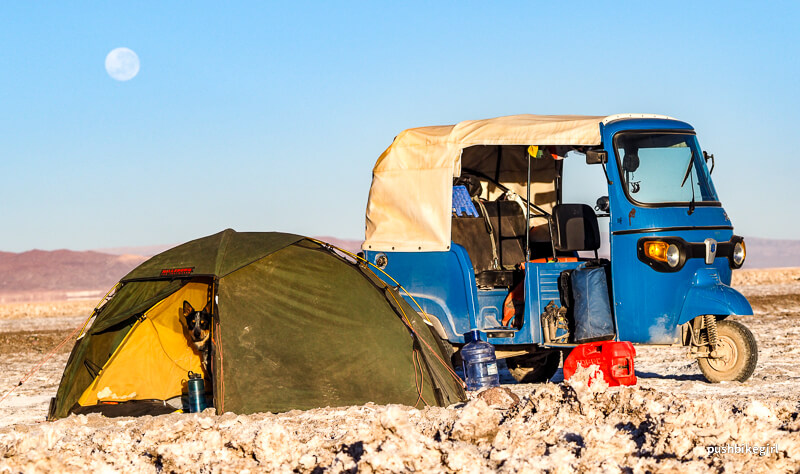
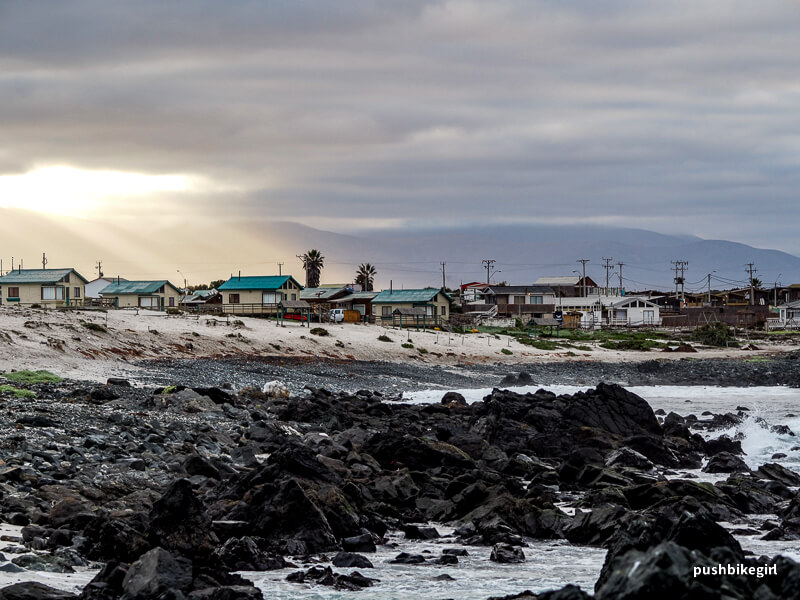
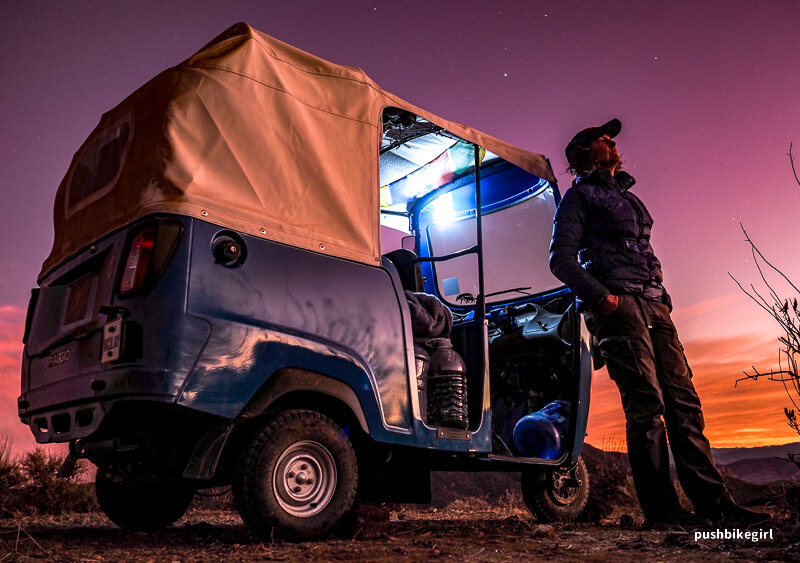
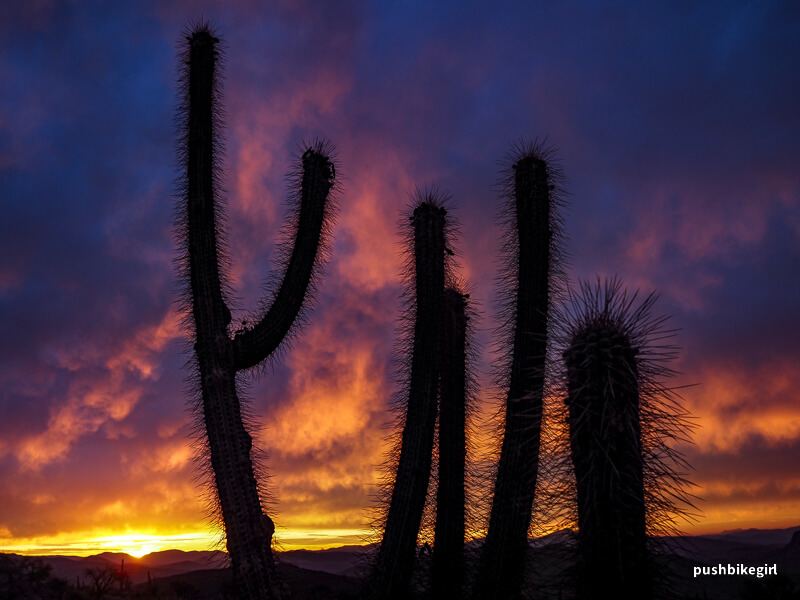
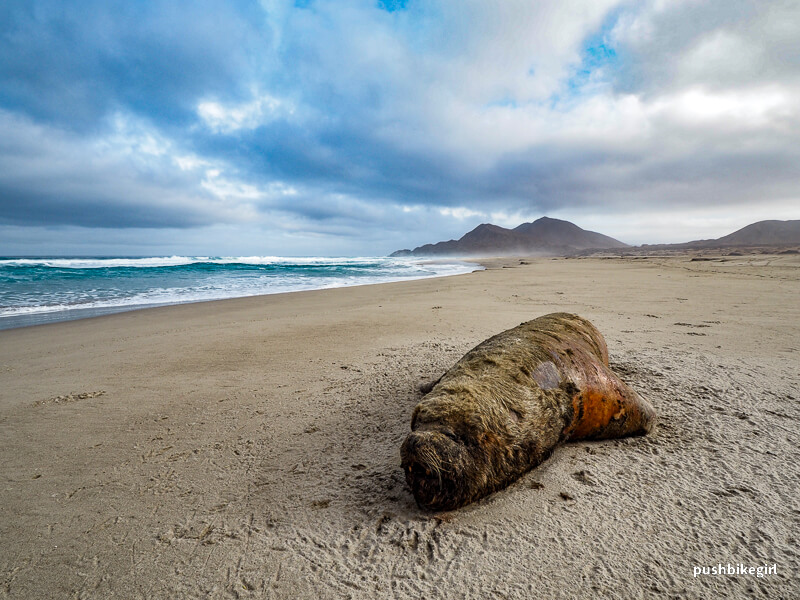
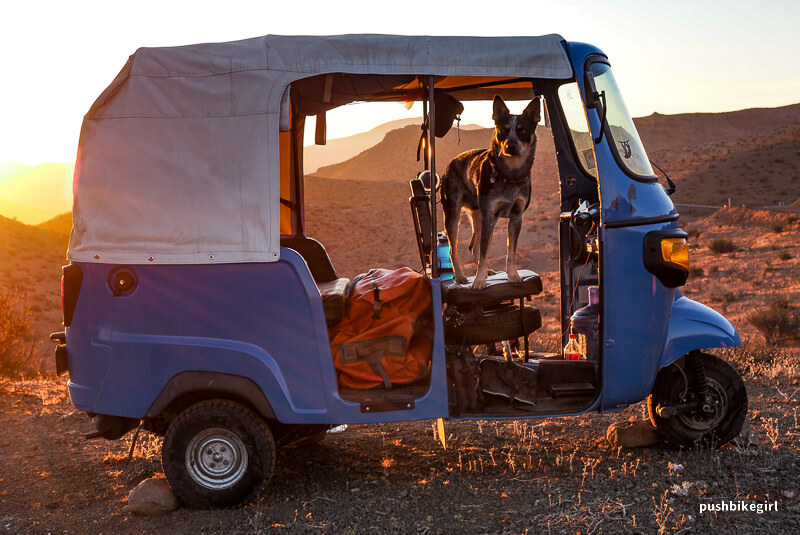
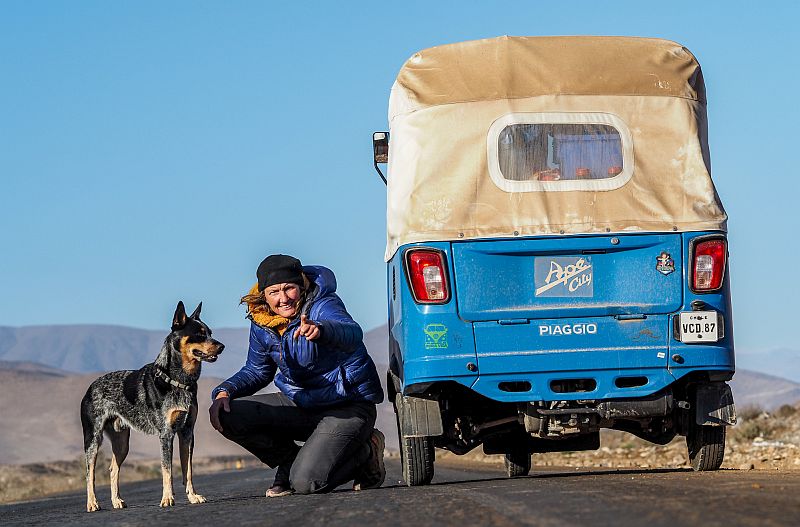
It is dark, and Butch and I are already in the tent. Outside, the wind is raging, and it is freezing cold. We are at 3800 meters. It is winter in the southern hemisphere.
Northern Chile is within the borders of the driest desert in the world, the Atacama: the landscape is rocky with little vegetation and, for the most part, relatively barren. Hardly any wildlife, if any guanacos or foxes, they often come close to the road. Every time I see them, I wonder where they find drinking water.
Also, there are very few birds and no insects.
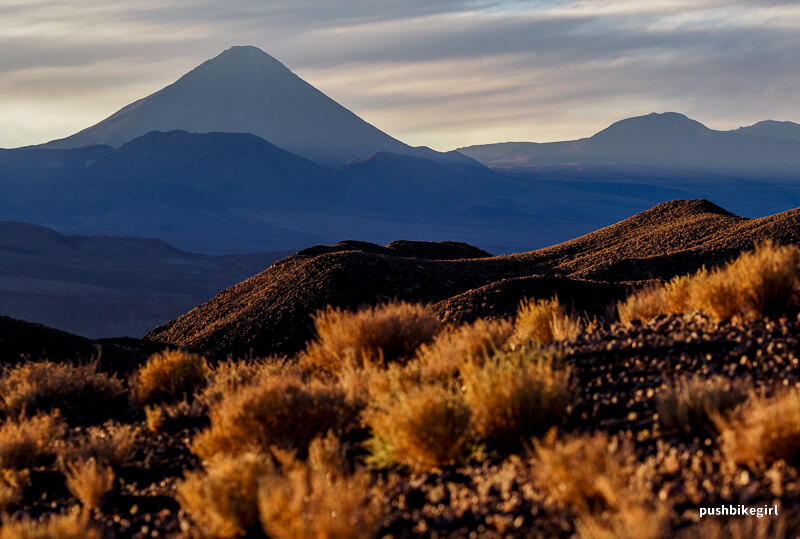
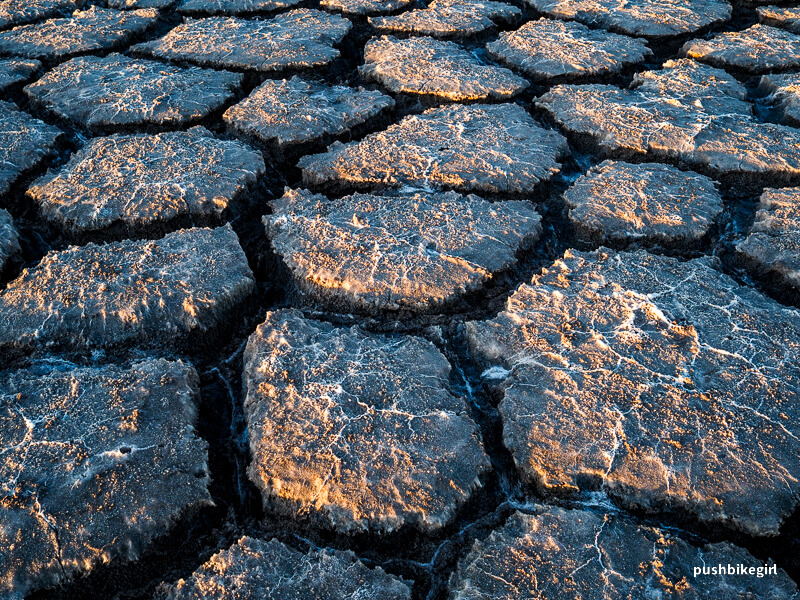
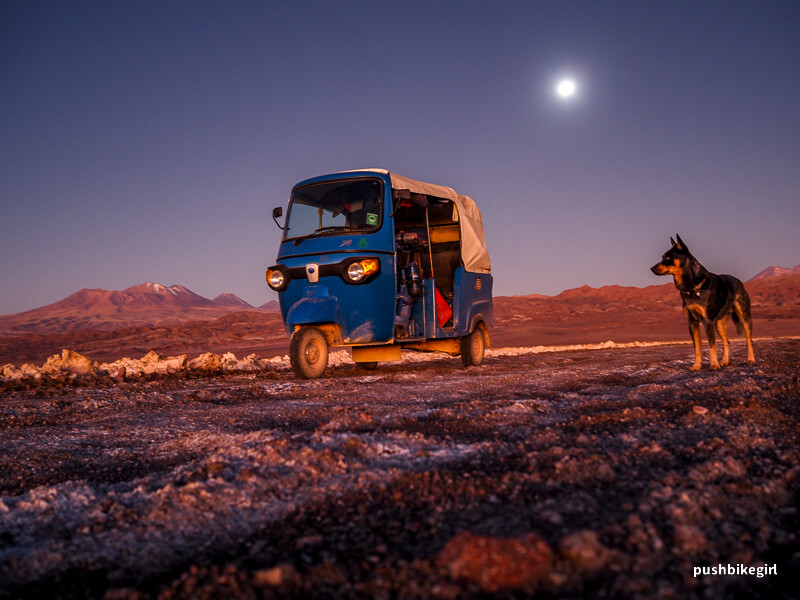

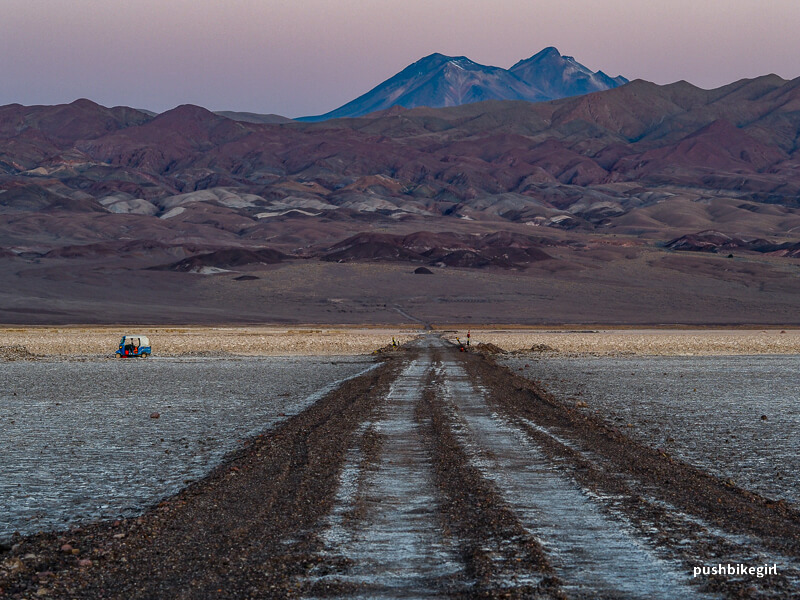
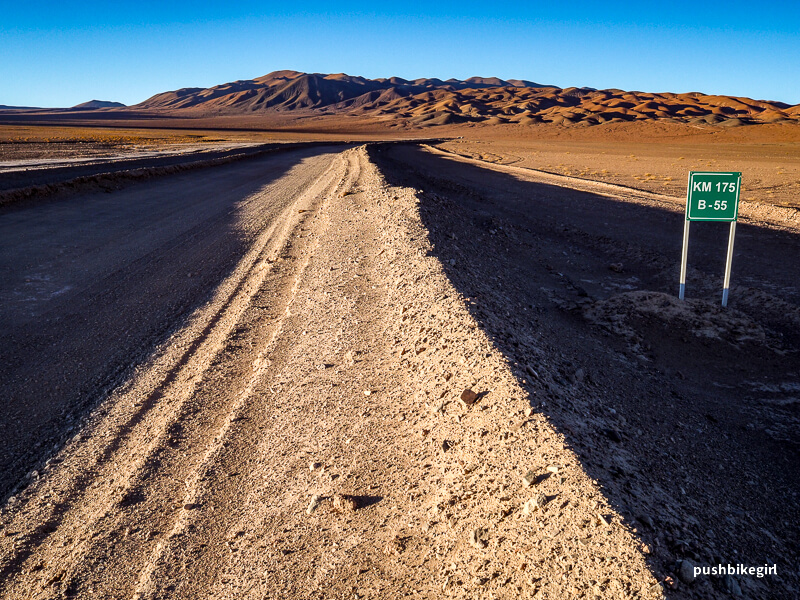
You might think this sounds boring, but it isn’t because the volcanoes, salt lakes, and beautiful rock formations we see everywhere are awe-inspiring, especially in the mornings and evenings when the warm colors are so enchanting.
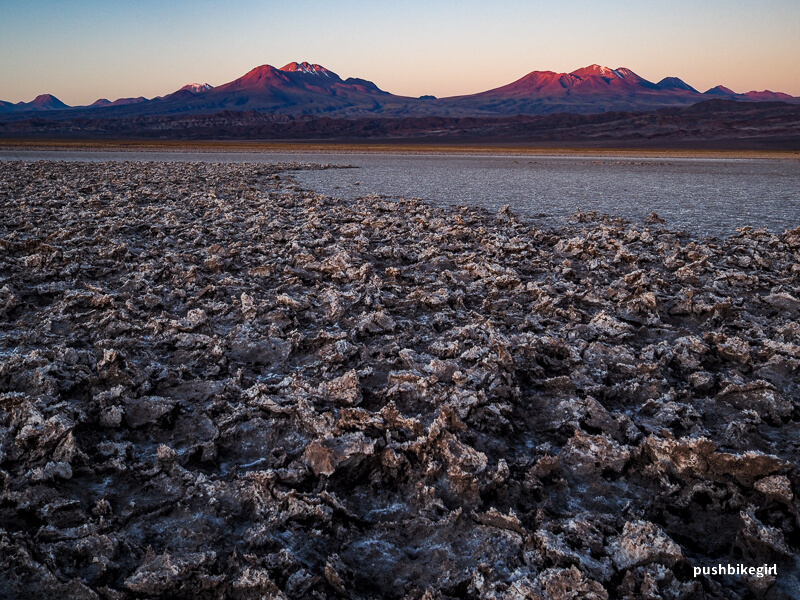
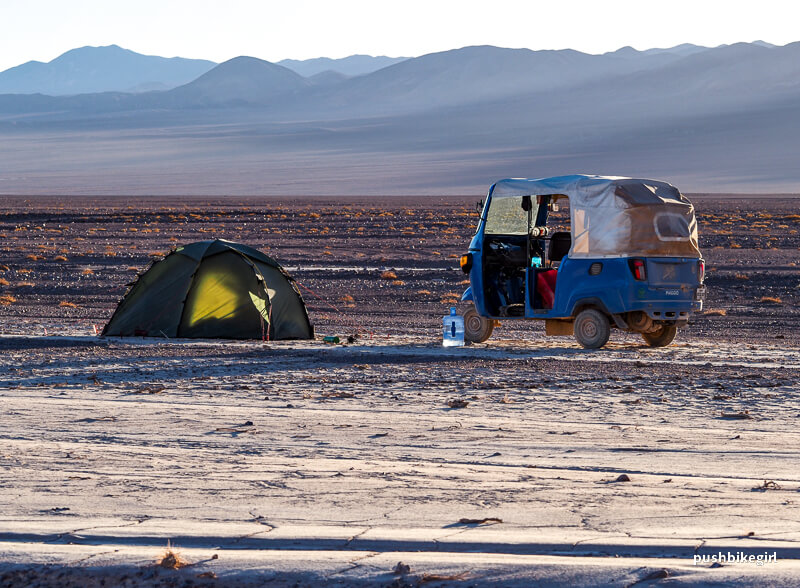
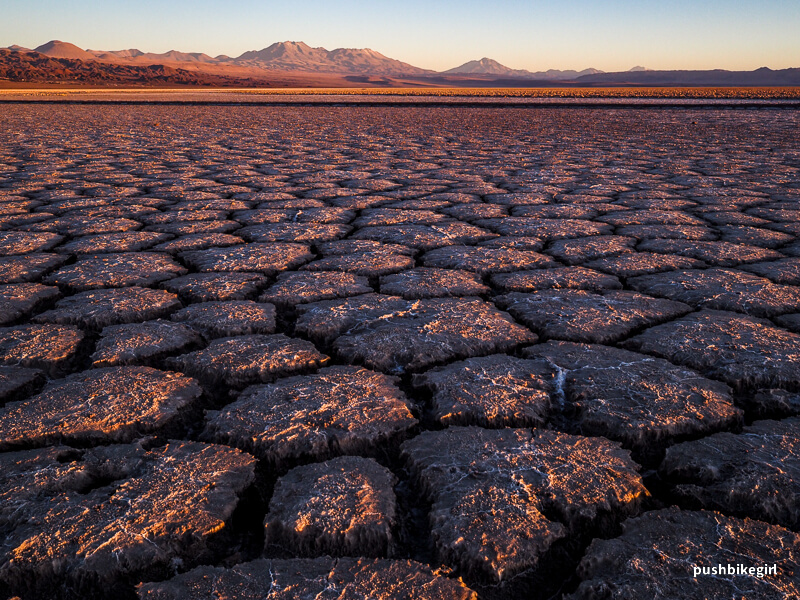
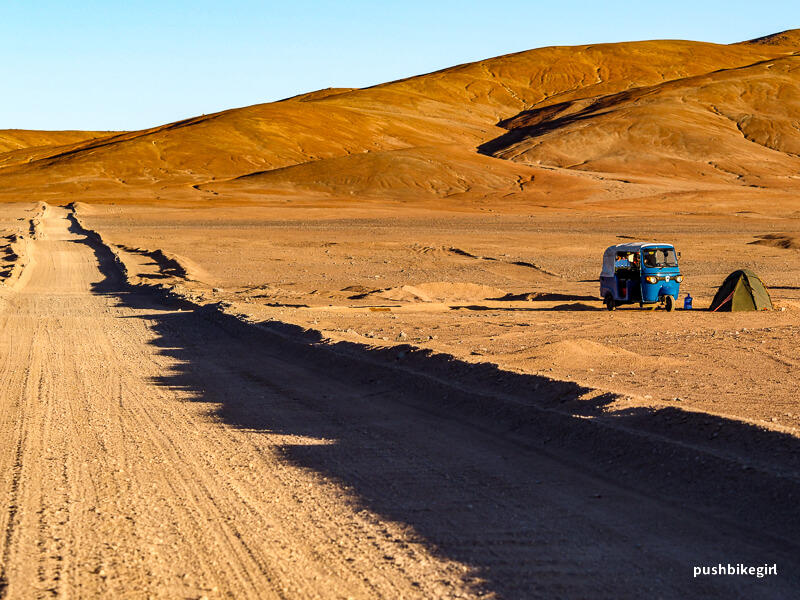
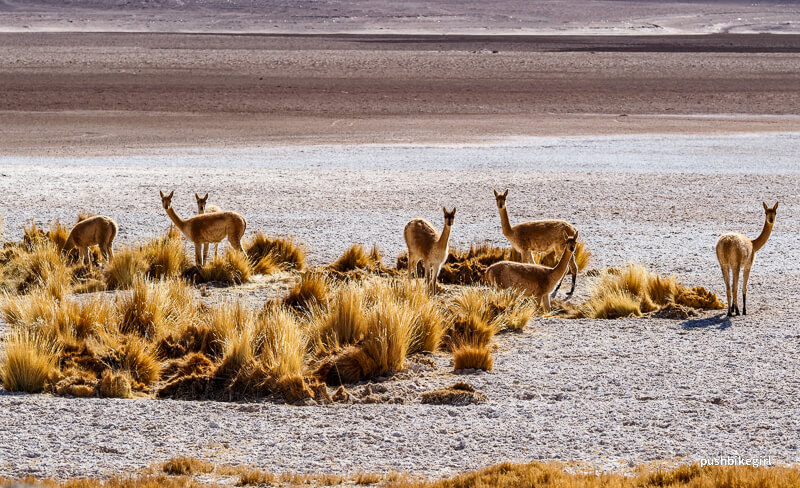
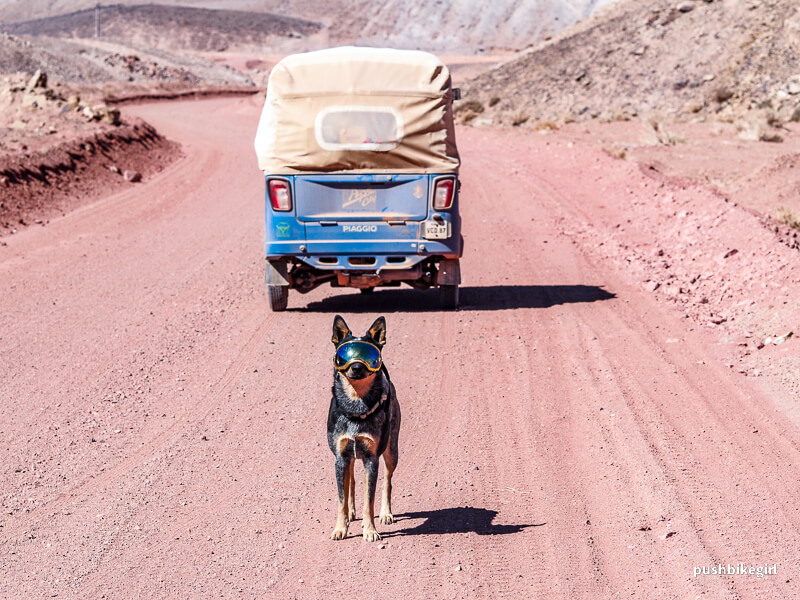
During the day, however, everything is very bright and glaring, a harsh light unsuitable for photography. However, the Milky Way shines brighter and purer at night than almost anywhere. No light pollution, and a crystal clear sky. Superb.
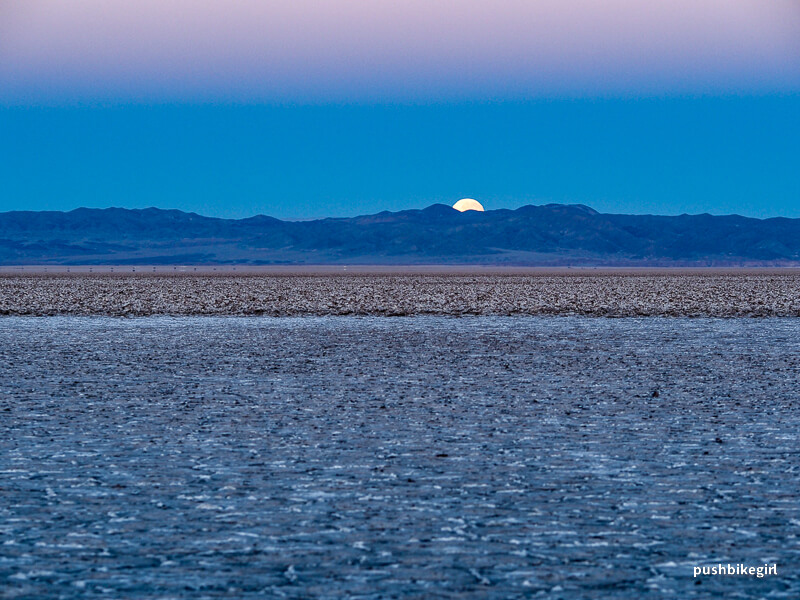
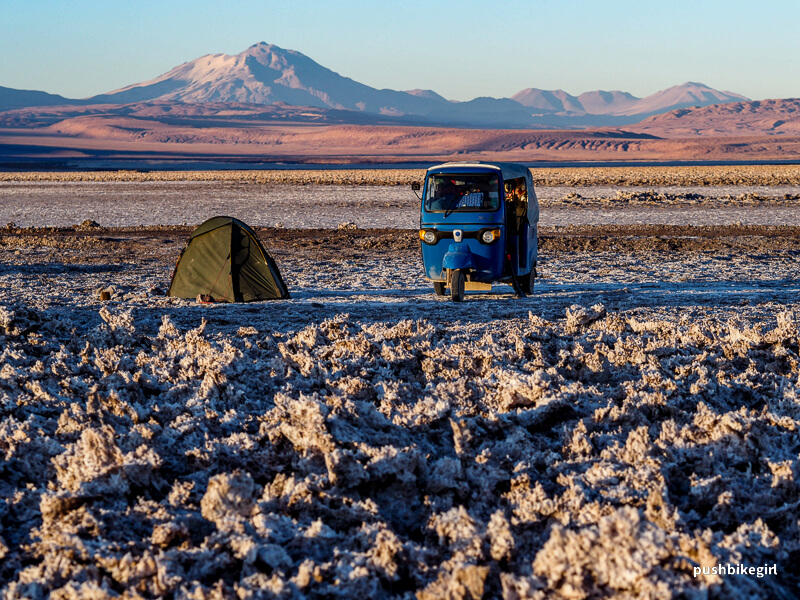
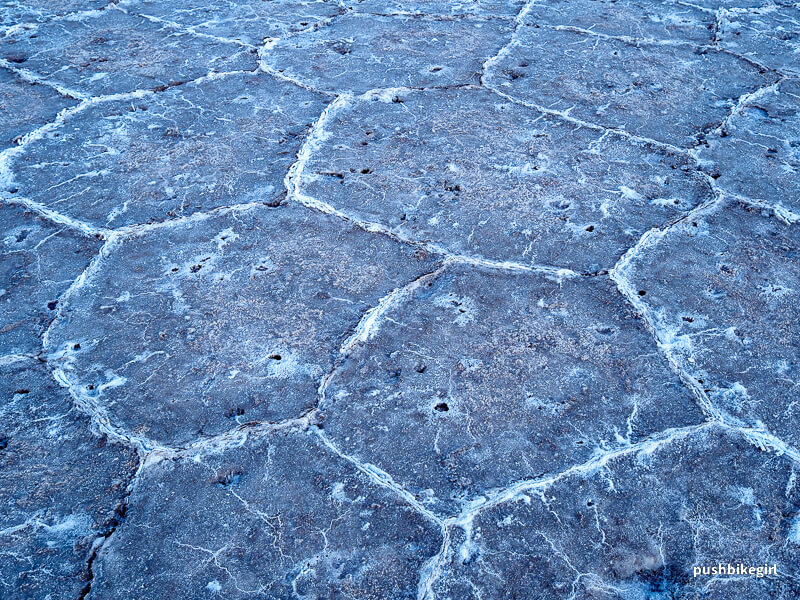
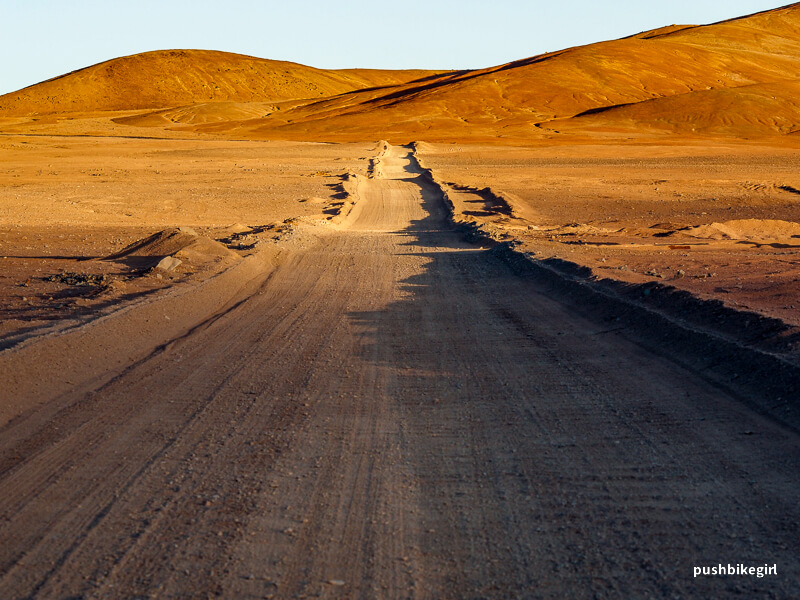
When the wind is not blowing, it is quiet as a mouse—my favorite music. Hearing silence makes me happy.
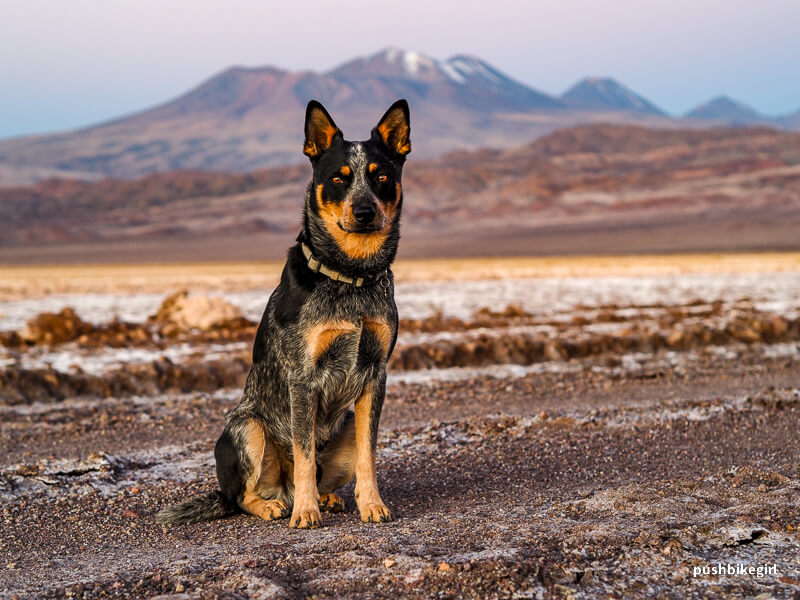
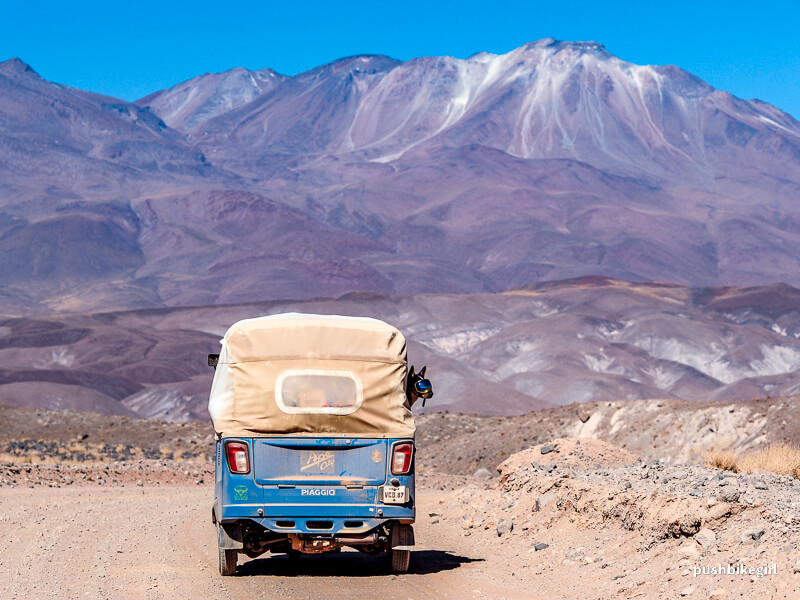
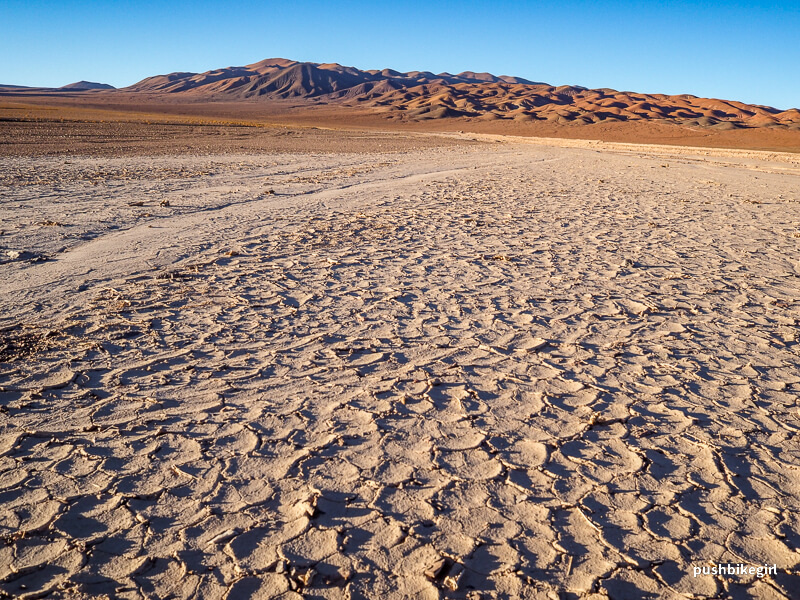
We have two more days to get to Argentina because the exit papers for Butch and my extended visa will expire on 08/11/2023.
In between is a 4800-meter-high pass, the height of Mont Blanc, the highest mountain in the Alps, which we must overcome with our Tuk Tuk.
I am curious how the small machine will handle such a high pass.
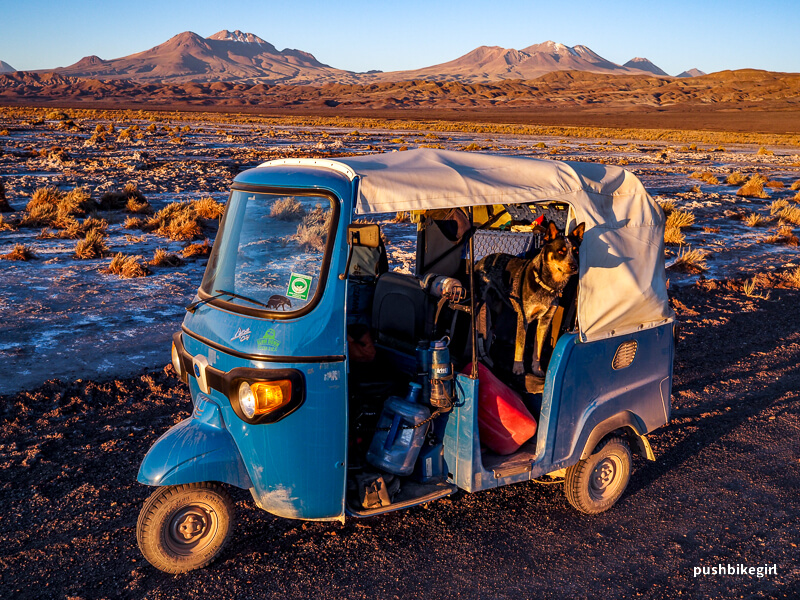
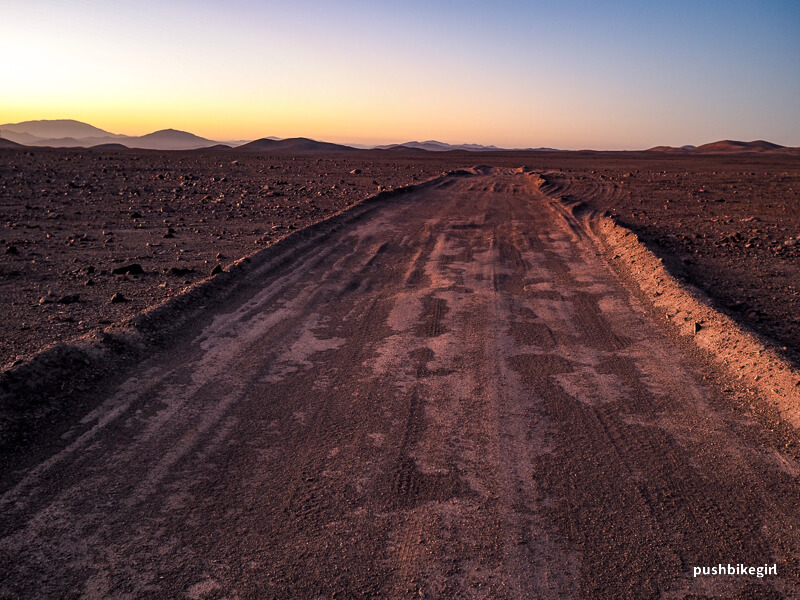
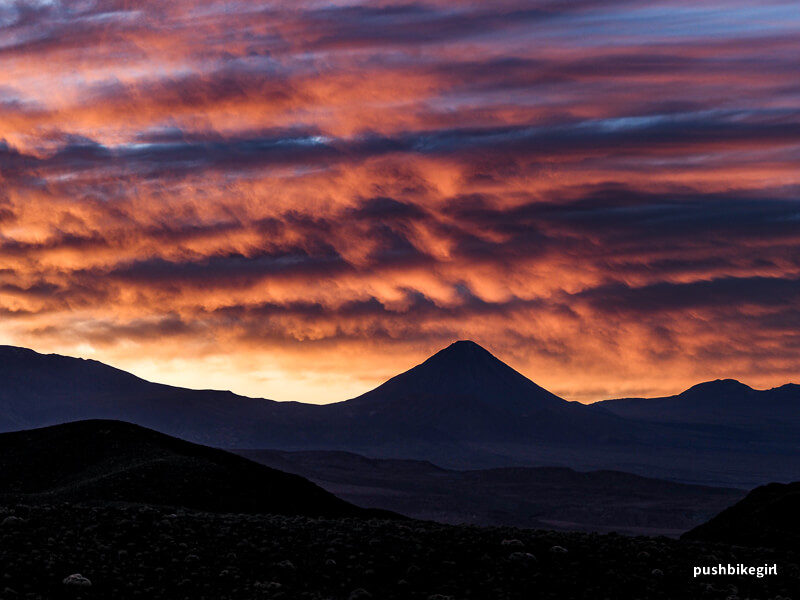
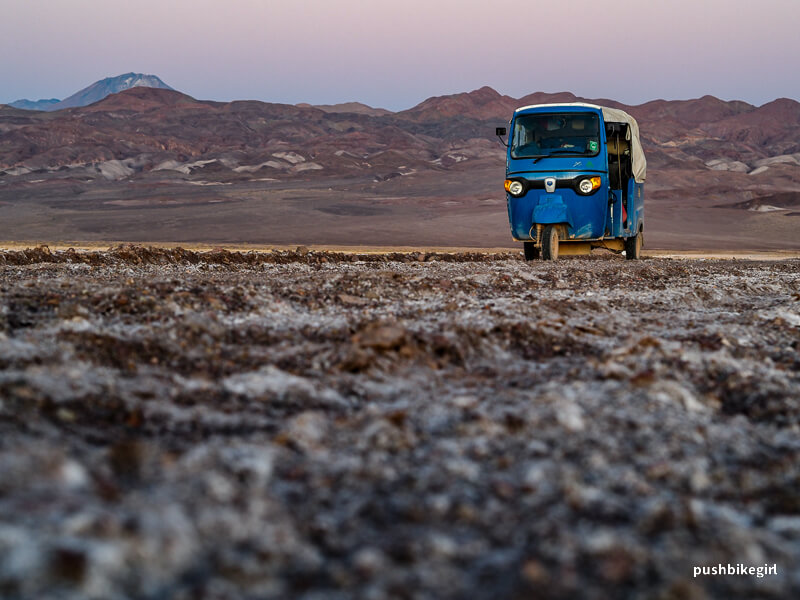
The zippers on my tent are all broken. Too much sand and dust has ruined them. I’m using an extra blanket to cover the tent entrance to keep the wind out.
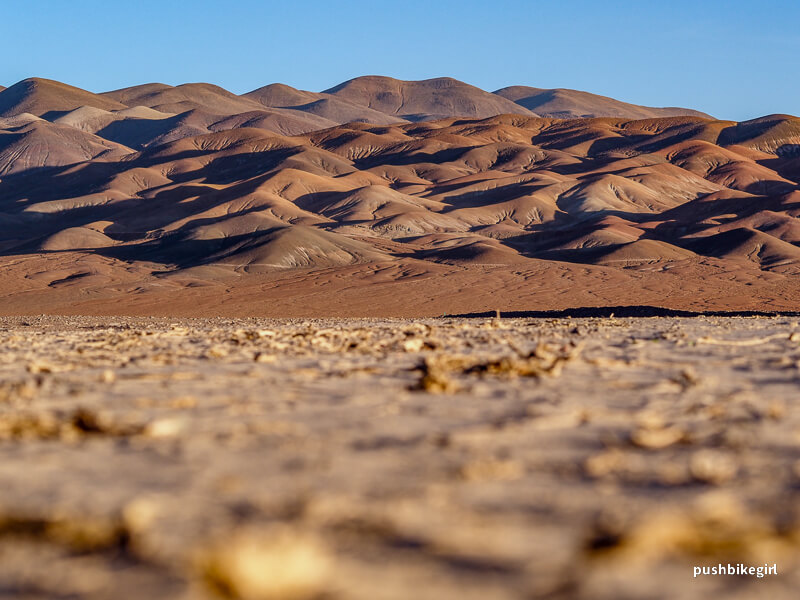
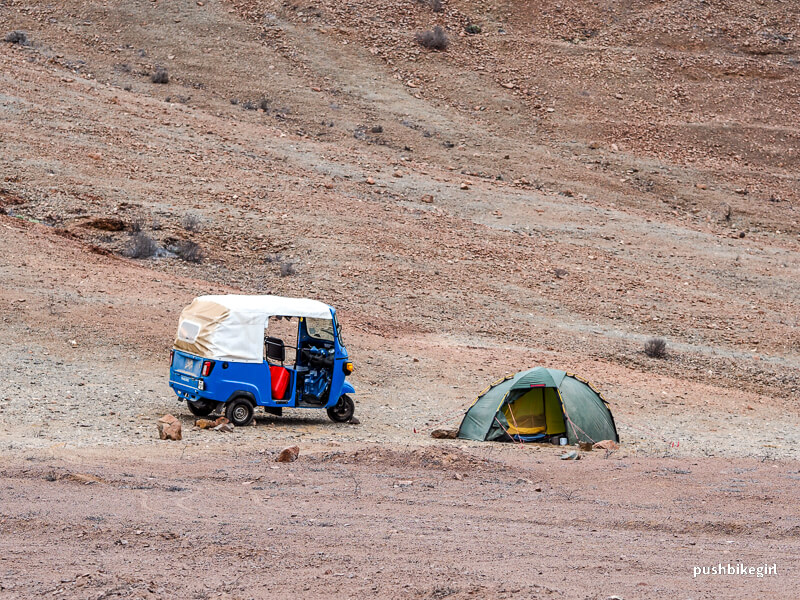
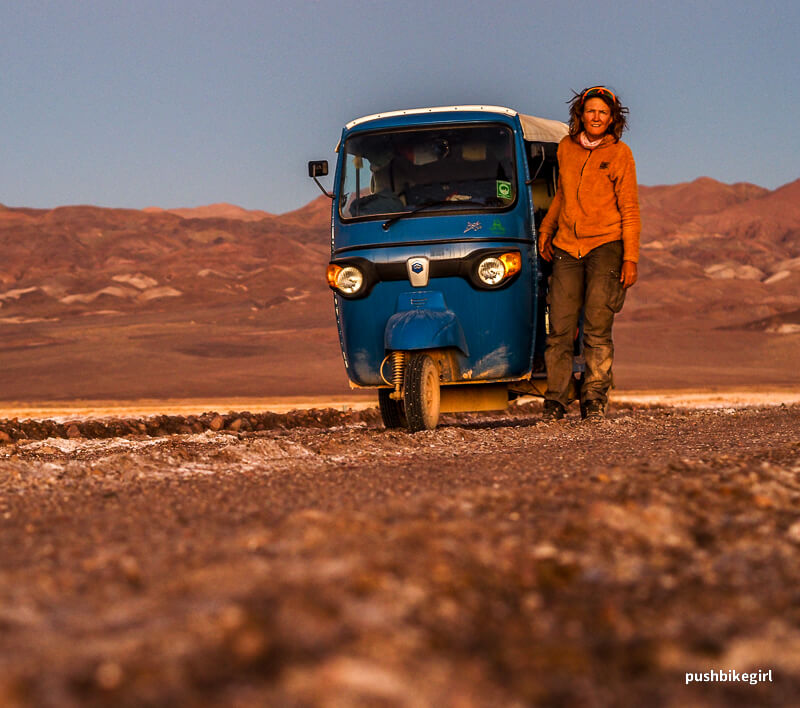
We are fine. Finally again. My strength and zest for life are back. I want to enjoy, learn and experience again. I have my freedom once more!
Healing from my foot injury dragged on forever. Coupled with that was my perplexity about how to travel with Butch here in South America safely. These issues left me in a state of despair and frustration for many months. But, finally, those days are over, and I love life out here again.
During these first months in Chile, I had lost my ability to laugh. I was in a deep hole and couldn’t get out. I didn’t know what to do. Adding to my misery was the fact that so many interactions I had with people were negative. My ability to make good decisions was off; I felt like a bull in a china closet blundering from one mistake or bad situation to another.
What am I doing wrong? Why isn’t anything working anymore? What do I radiate? Am I so negative toward others? I couldn’t find the answers.
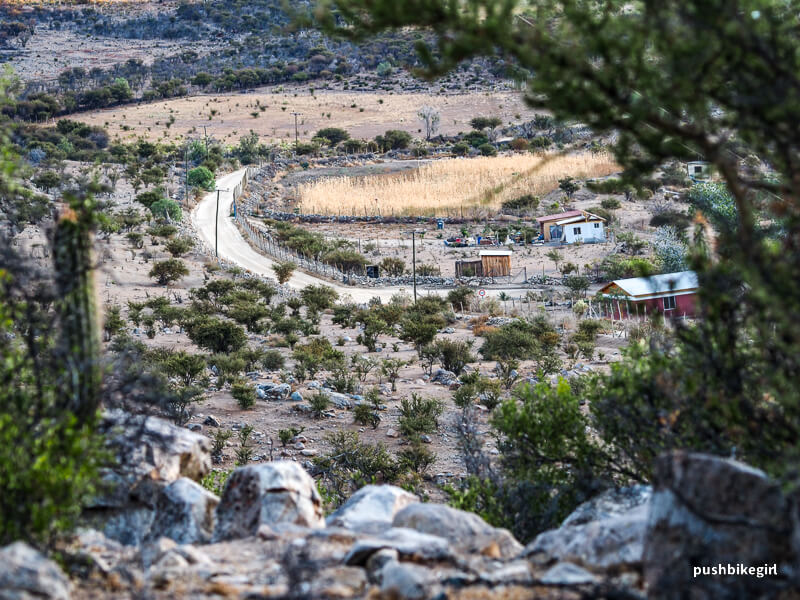
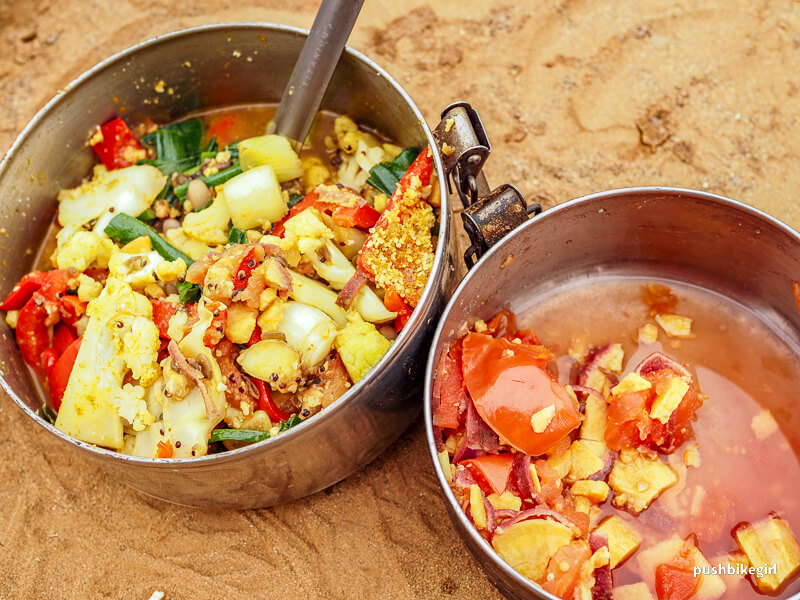
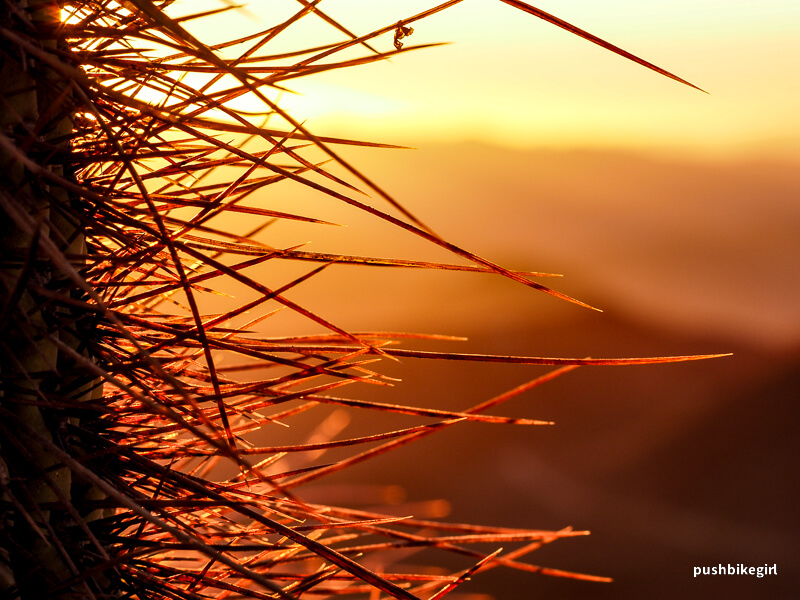
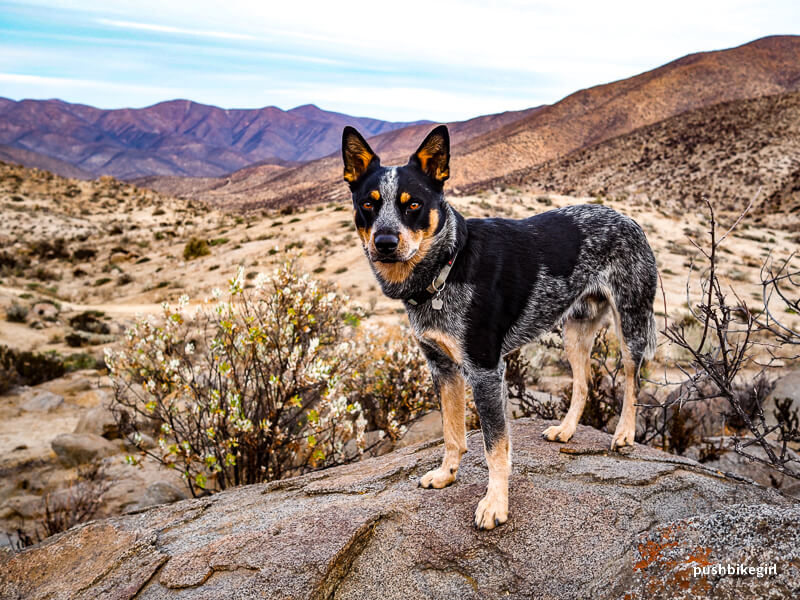
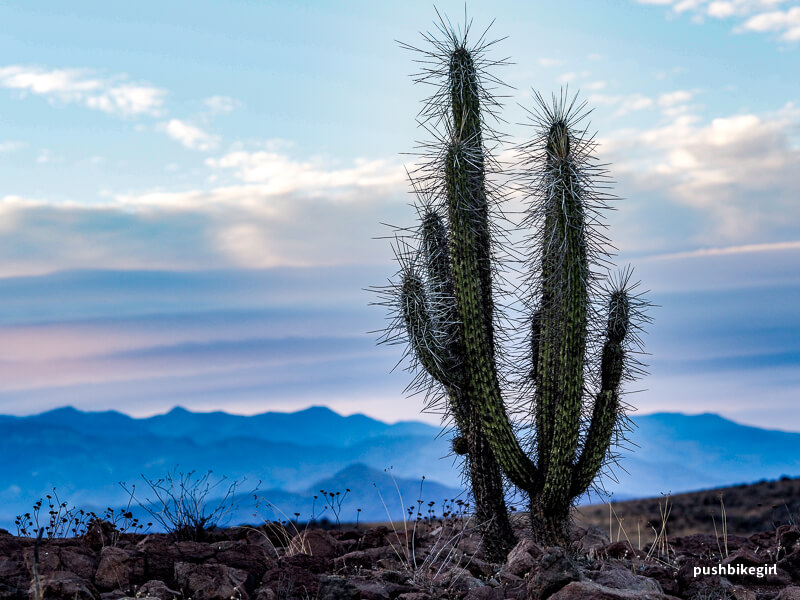
Also, we were always dependent on other people, which was extremely demoralizing in the long run. Maybe it was just a lot of things coming at me at once, and that ended up in the chaos I was experiencing.
Butch was attacked and wounded by dogs frequently. Even after many months of training, I still didn’t know how to handle the situation when a whole pack of dogs the size of German Shepherds came running at us, up to no good.
I had many ideas, but none worked out. I was spending a lot of money because Chile is crazy expensive, nearly the same as the US in terms of the cost of food, sometimes even more. Far more expensive than Germany. And still, solutions weren’t surfacing.
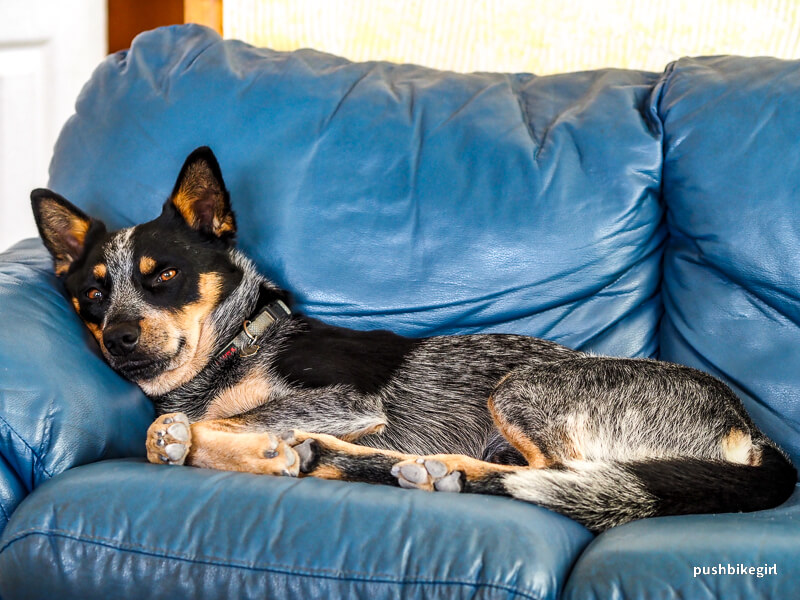
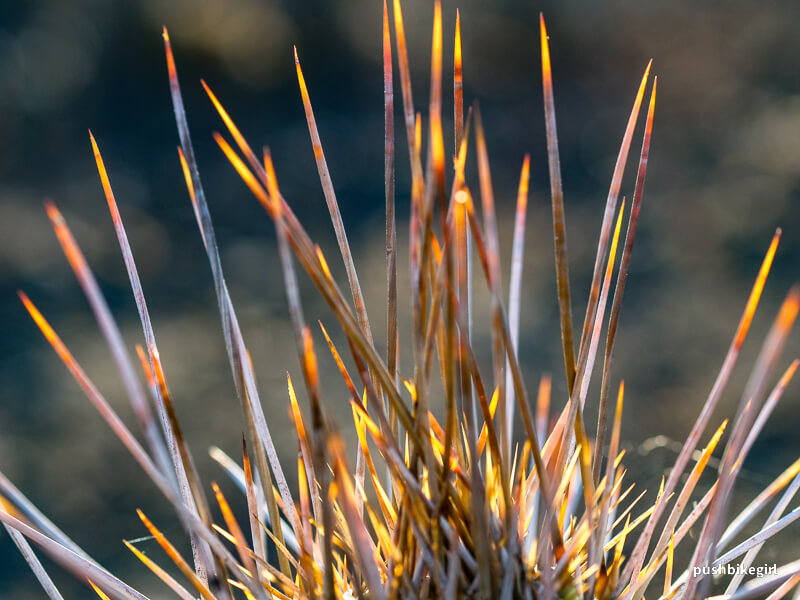
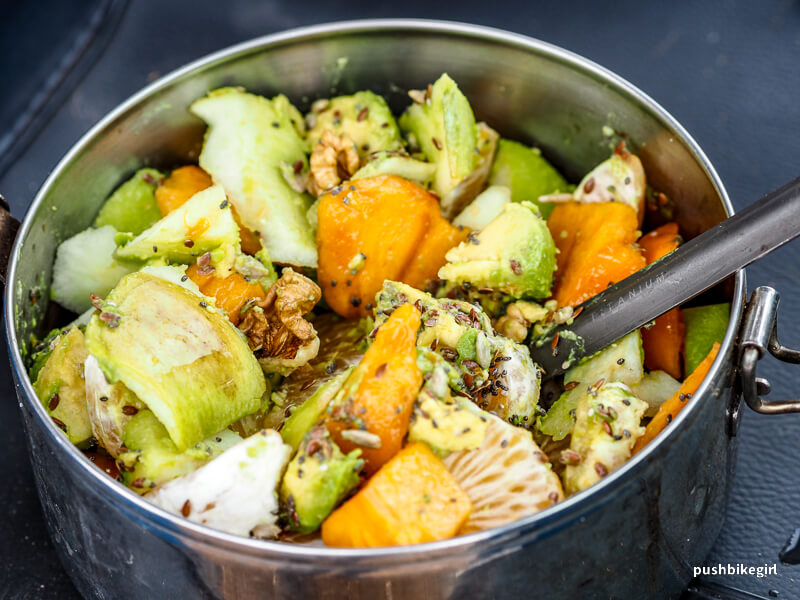
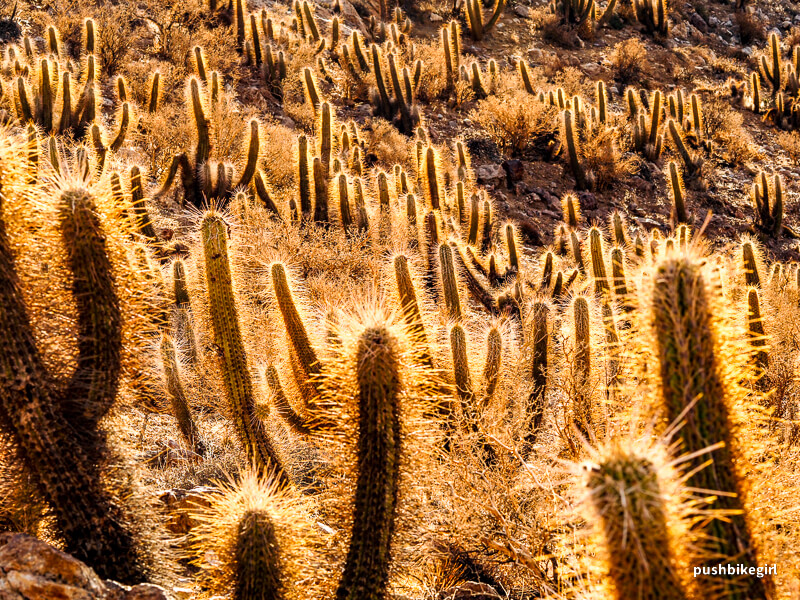
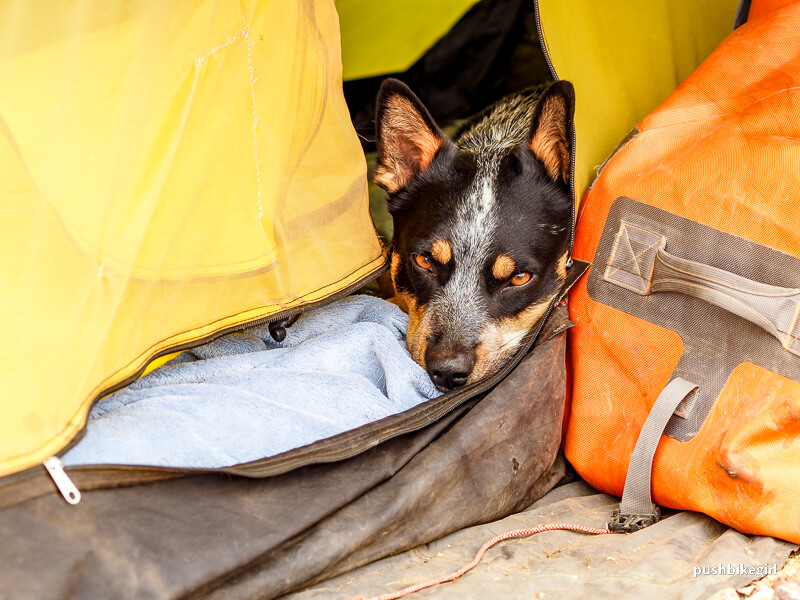
We were invited by Alexander, a Swiss, to his compound, where he had built everything himself. I am always totally fascinated when people are so skilled in craftsmanship.
His place was in a beautiful area, and we enjoyed our time there. I was allowed to test drive his Russian-built Ural motorcycle with a sidecar but quickly realized it wouldn’t be for me: too much noise and the restrictive motorcycle gear.
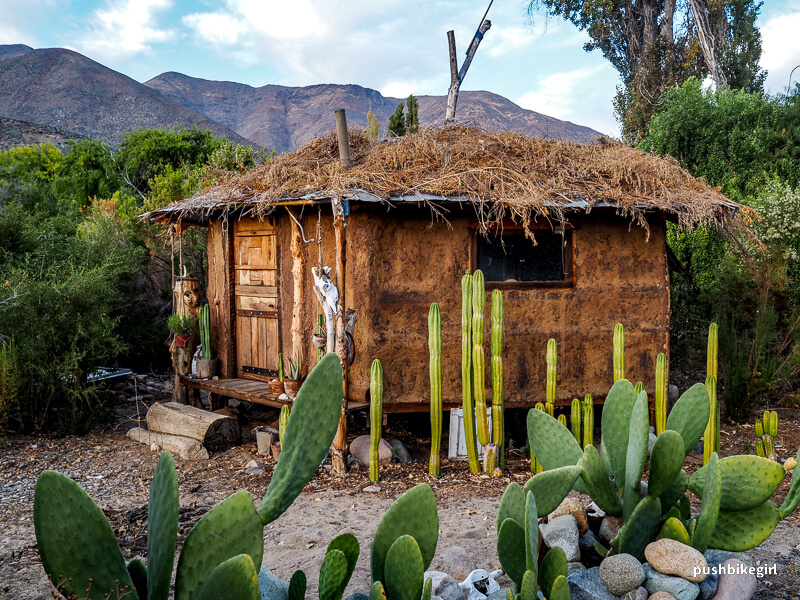
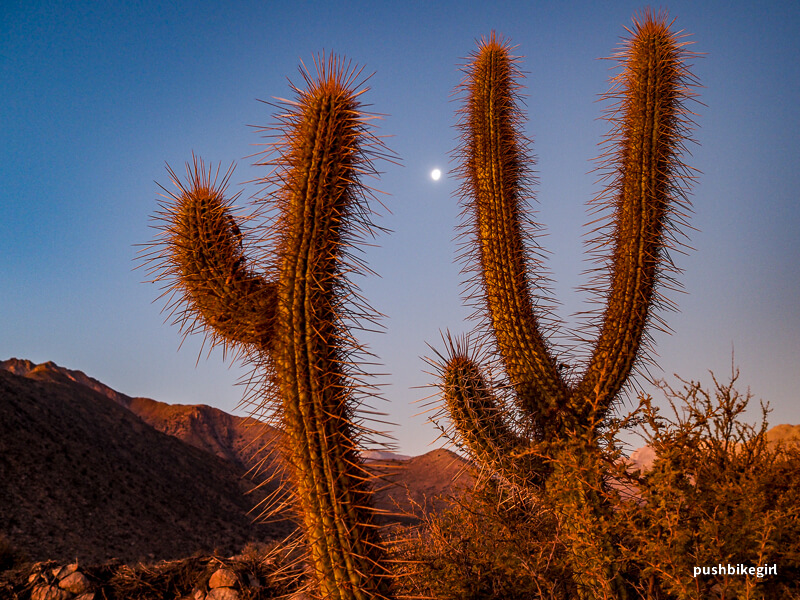
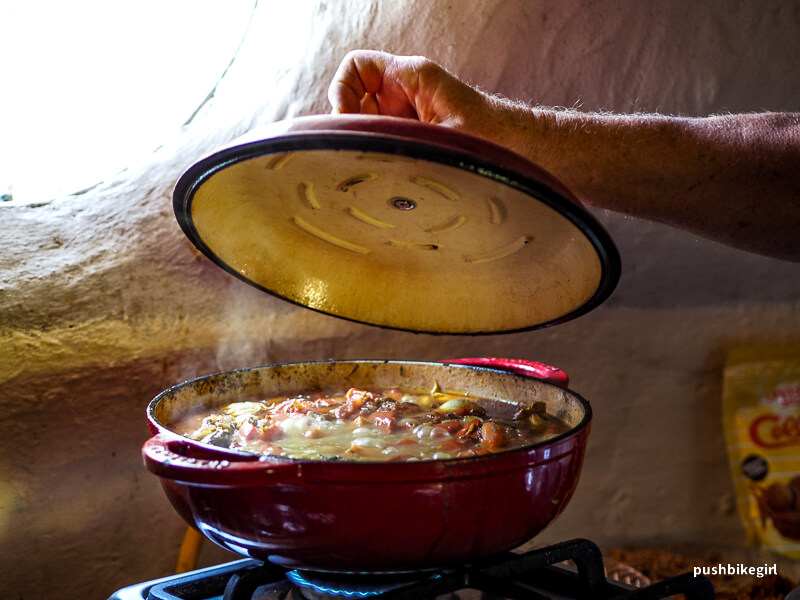
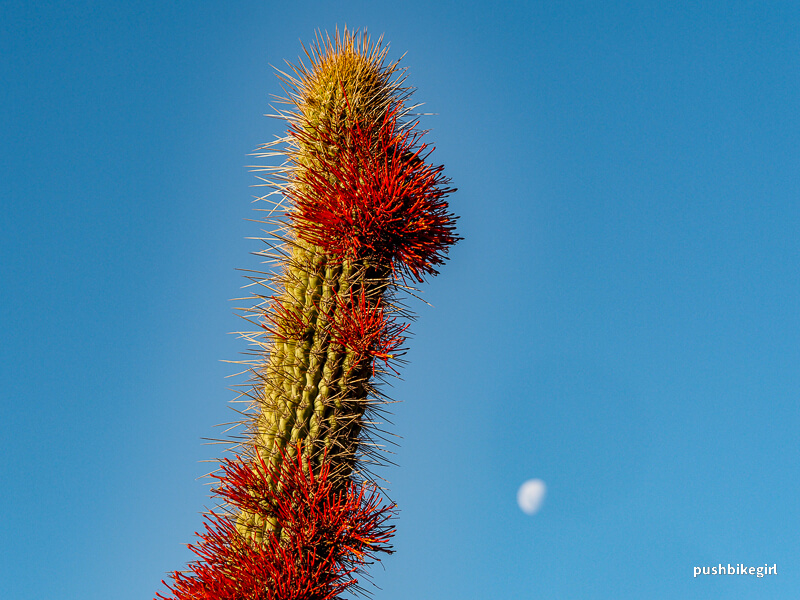
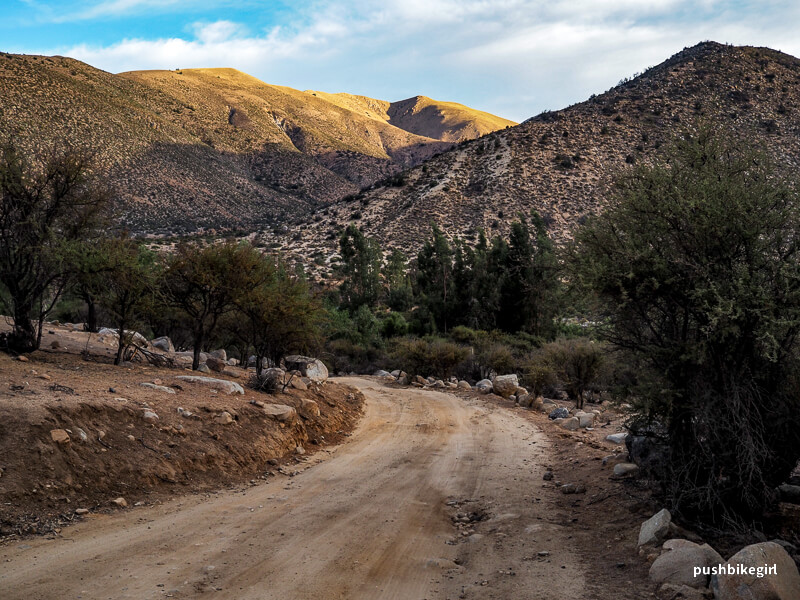
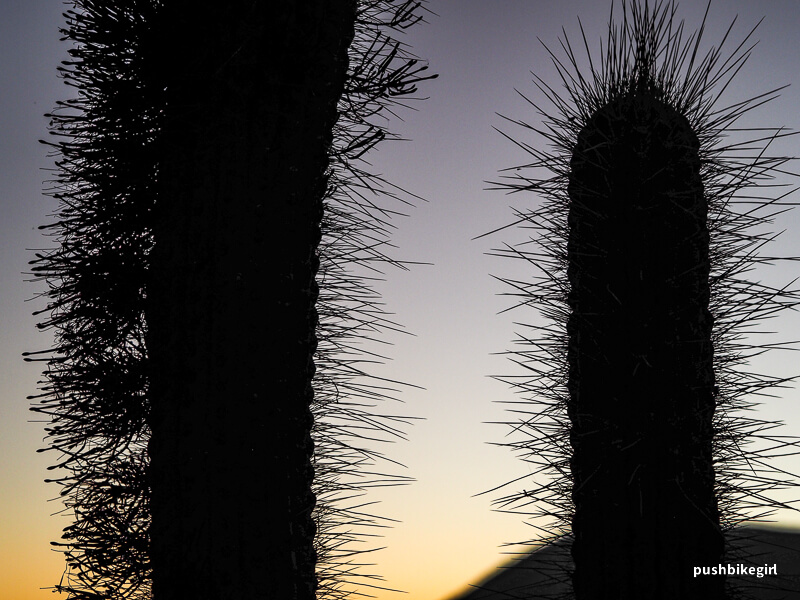
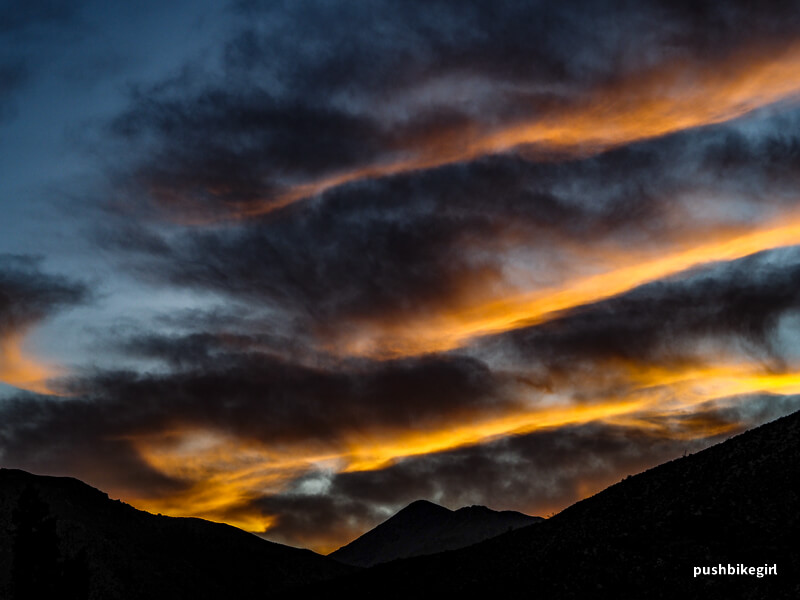
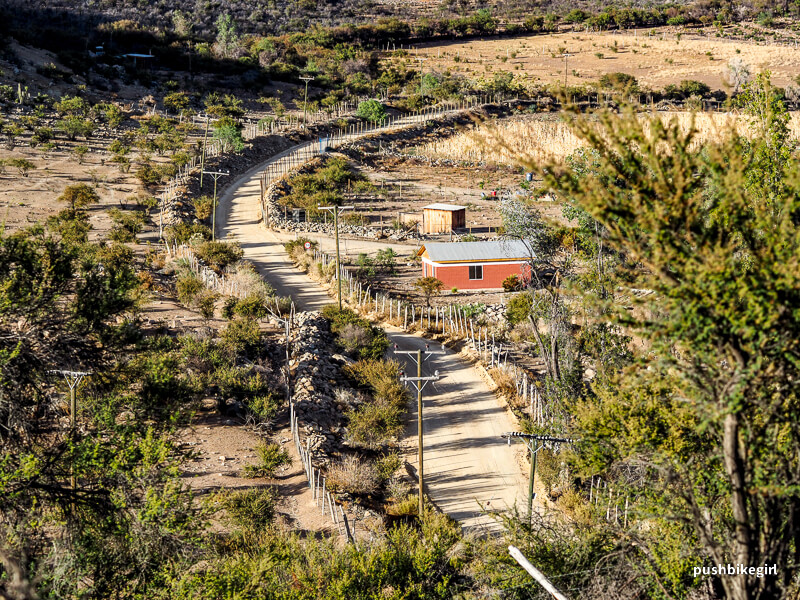
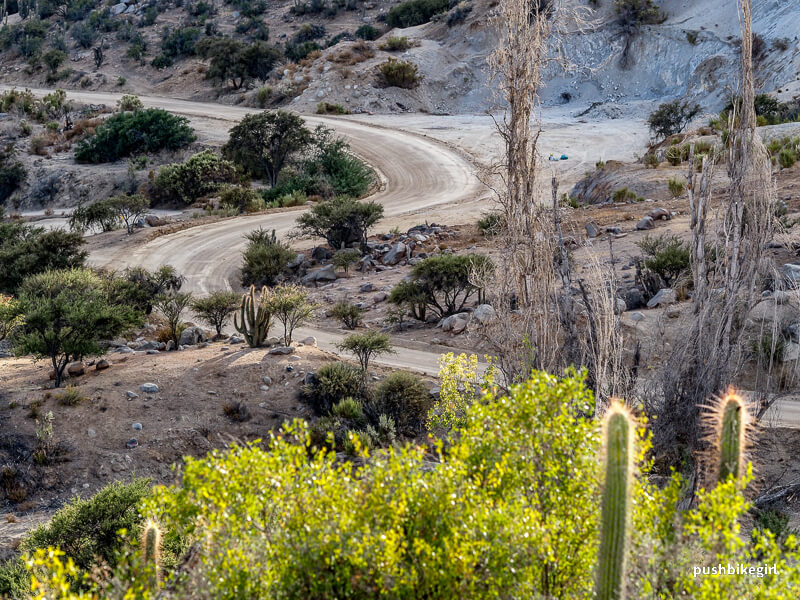
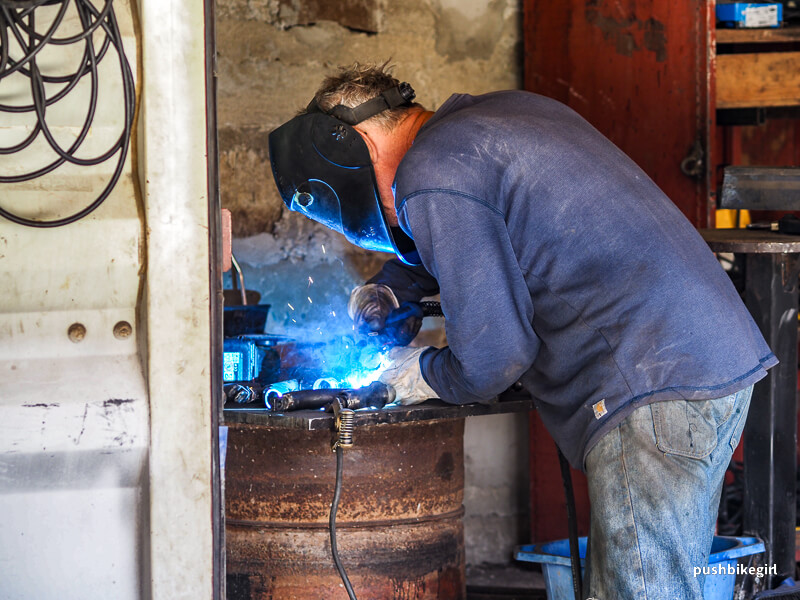
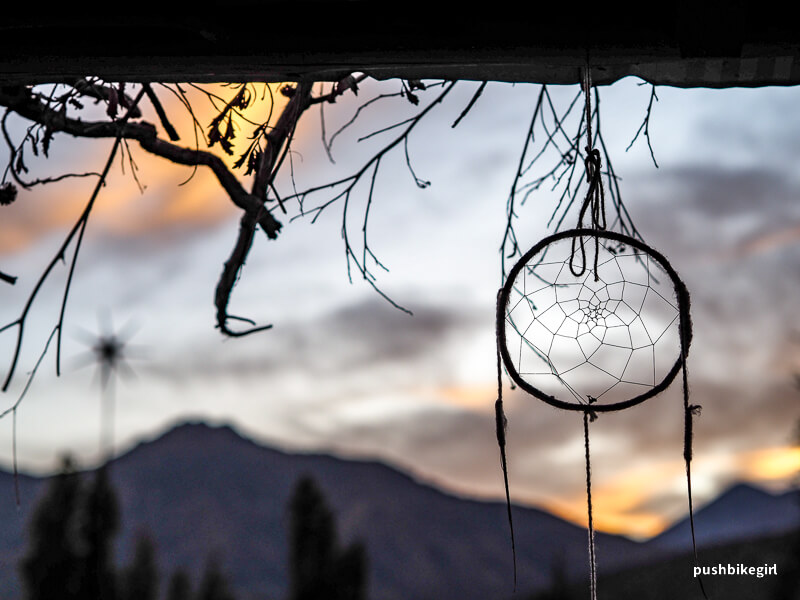
Sherpa, a Chilean in Illapel, a hostel owner, helped me find donkeys for sale. But this idea also failed. Among other things, there were comments like: “I won’t sell a donkey to a woman.”
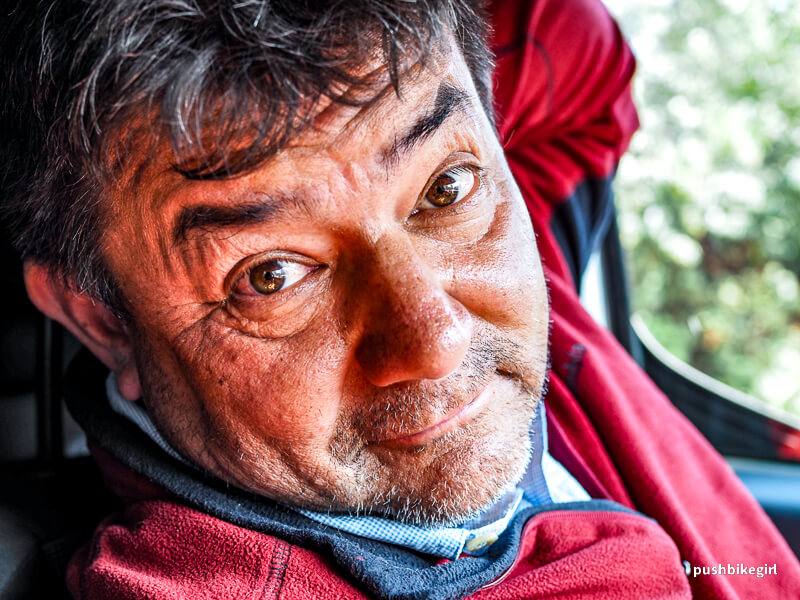
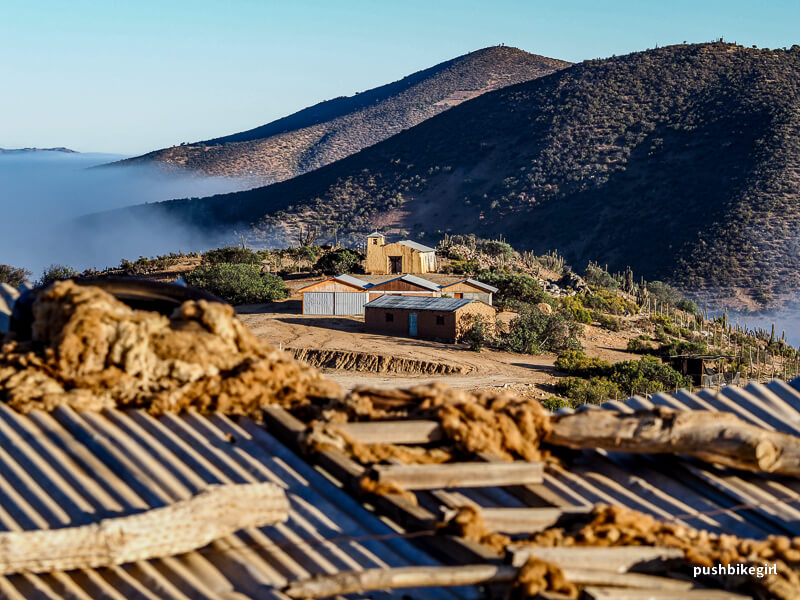
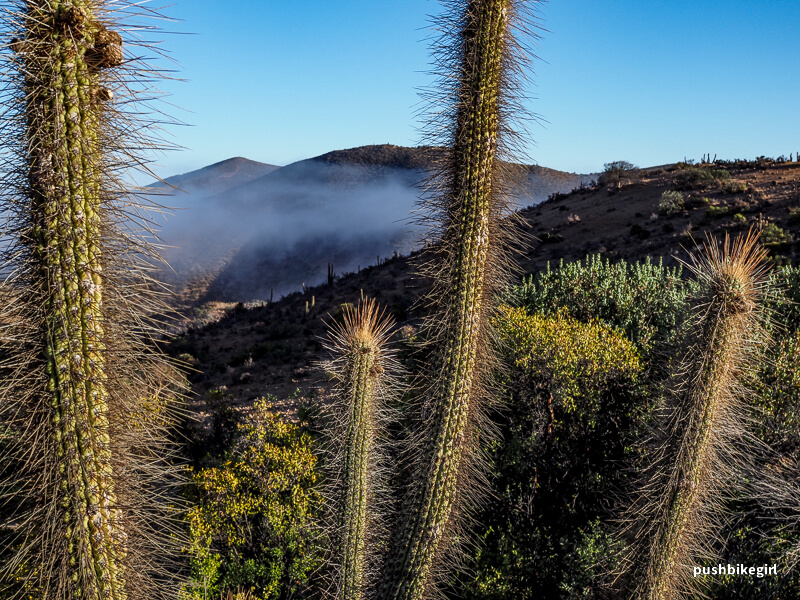

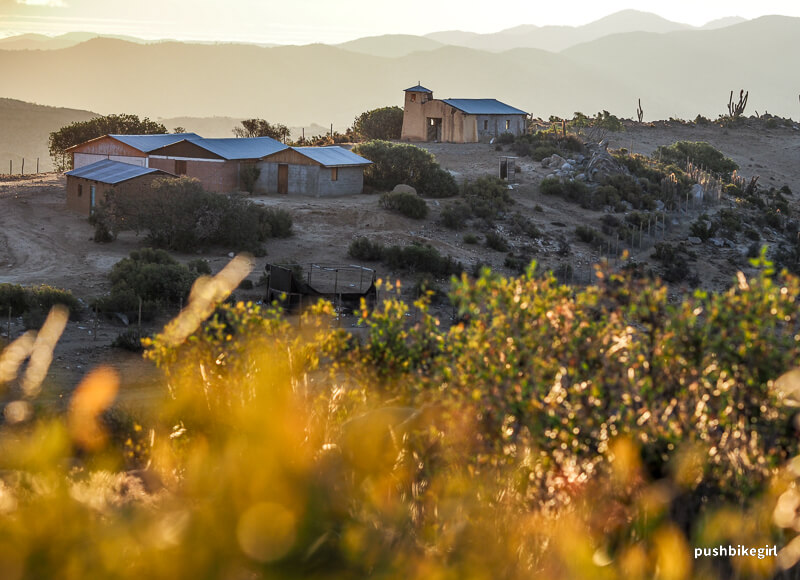
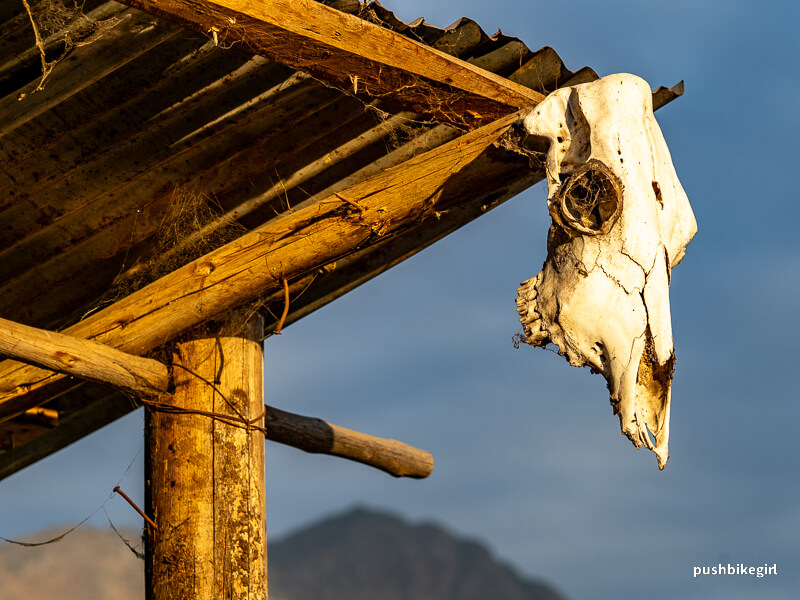
A Spaniard who has been living in Chile for years and whom I met in a shared apartment where I stayed for four weeks summed it up as follows.
“If we in Spain treated our women the way Chileans treat their women, not a single man in Spain would be married. The machismo culture here in Chile is brutal.”
The guys in the shared apartment were okay. Especially Pancho, a gay man, brought a lot of fun into my life. He was always in a good mood, and we laughed a lot together. Parties were frequent and lasted until 1 a.m. Patiers devoured alcohol and weed in excess, and started to get on my nerves.
We also spent two weeks living crammed into a shed used to store horse tack, where we were surrounded by proud Chileans who wanted nothing to do with us. A refrigerator atmosphere would be too warm and friendly of a description. Arctic flair would be more precise.
I had hoped to buy a mule at this horse farm and explore the world with it. Weeks wasted, and another idea, by the way-side—pure stress with no result.
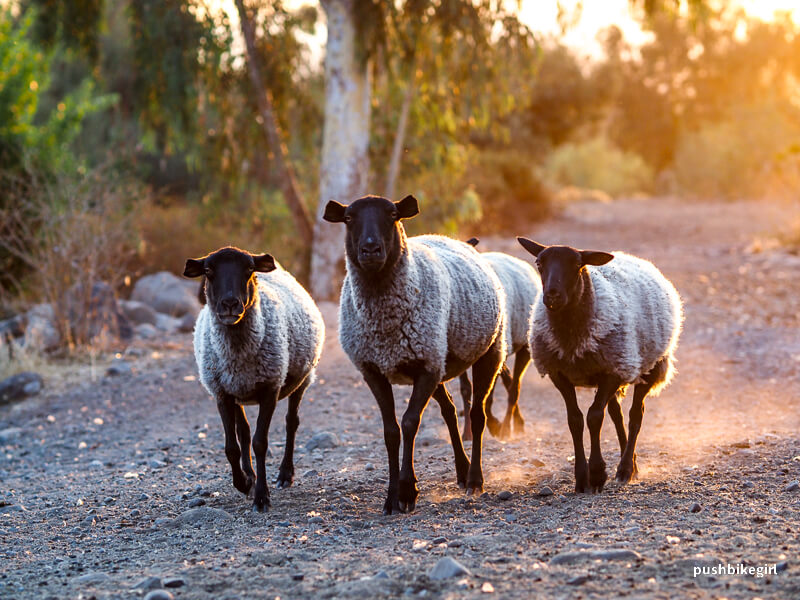
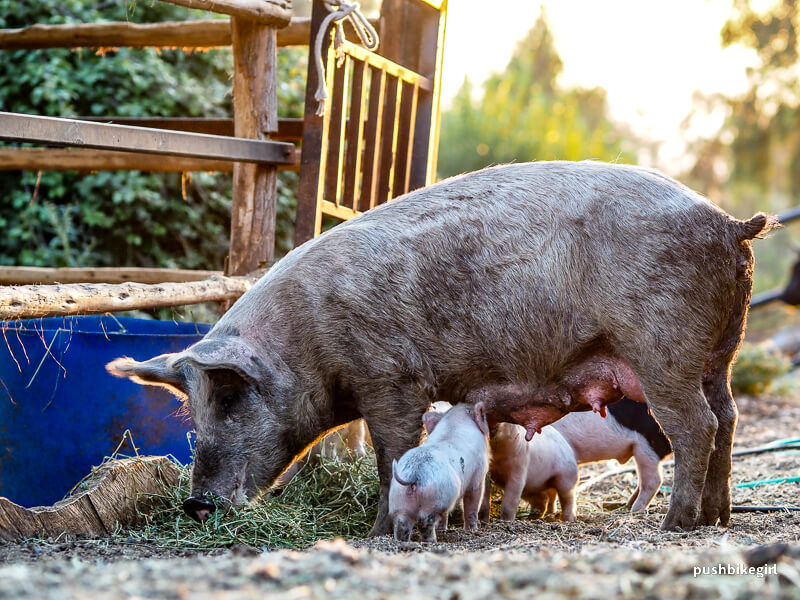
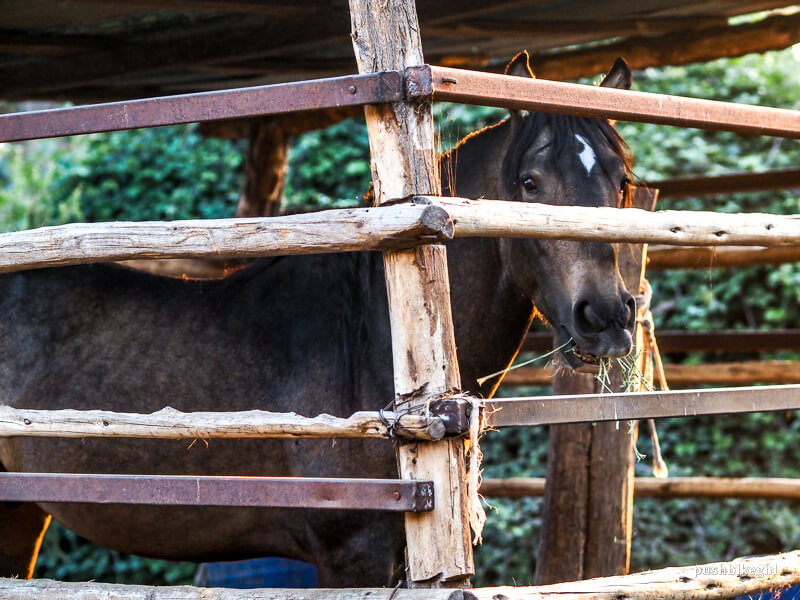
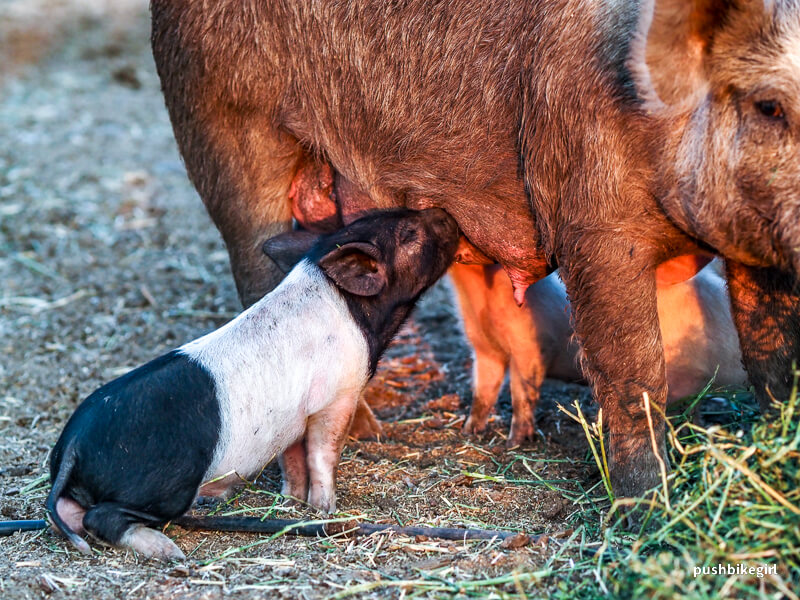
I looked at all kinds of cars and vans only to find vehicles that were way too expensive or junk, and even junk costs a lot of money in Chile. The reassuring thing was that all the tourists I communicated with who were in the same situation as me experienced the same thing.
Chileans don’t make life easy. You’ll notice that I didn’t photograph any people in Chile. I couldn’t get close to most of them. Many are closed, taciturn, and incredibly proud. Moreover, they did not trust me.
“With you Americans, it’s like you’re welcomed right away, and you can only gamble your trust away, but it’s given to you every time you meet a stranger. With us, it’s different. With us, you have to work hard to earn trust. Surely this is because we have so many immigrants from Germany,” said a Chilean who thought I was American. He lived in the USA for many years.
Others blamed the Venezuelan or Caribbean immigrants for their tendency toward trusting no one. However, I always found the immigrants easier to deal with than the Chileans.
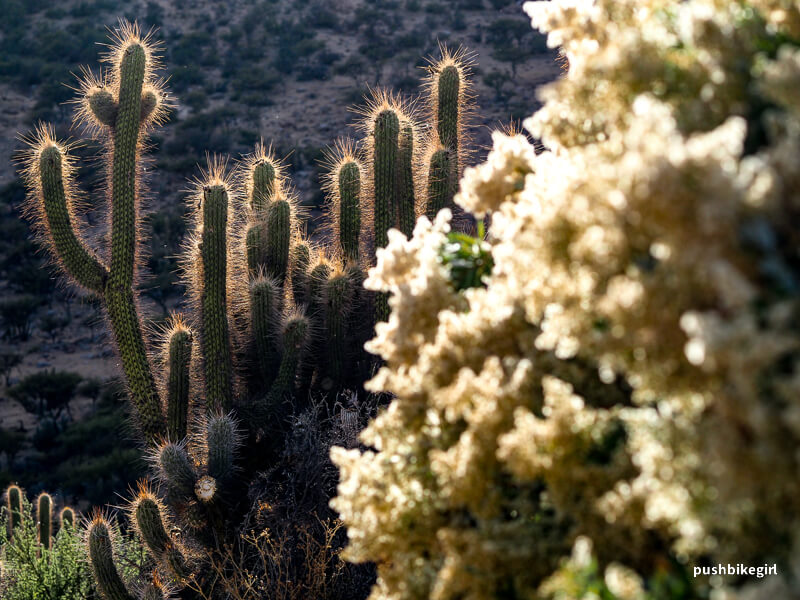
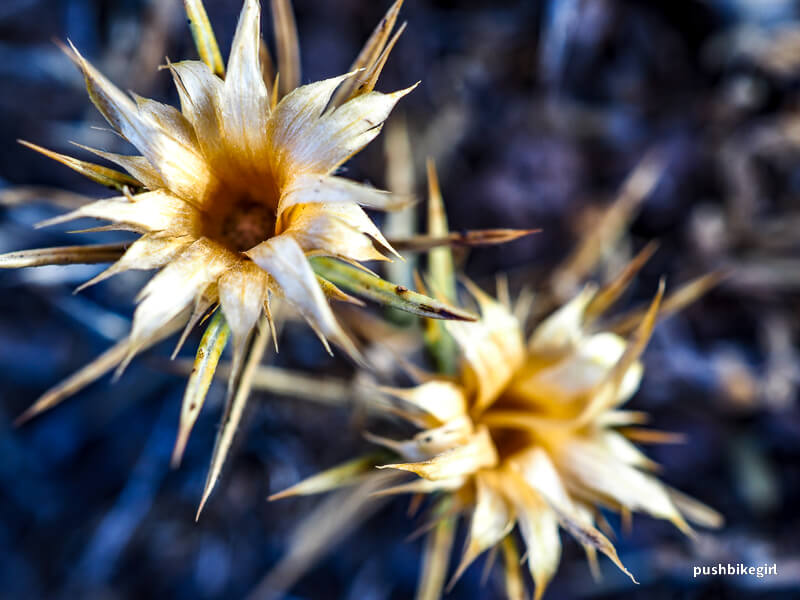
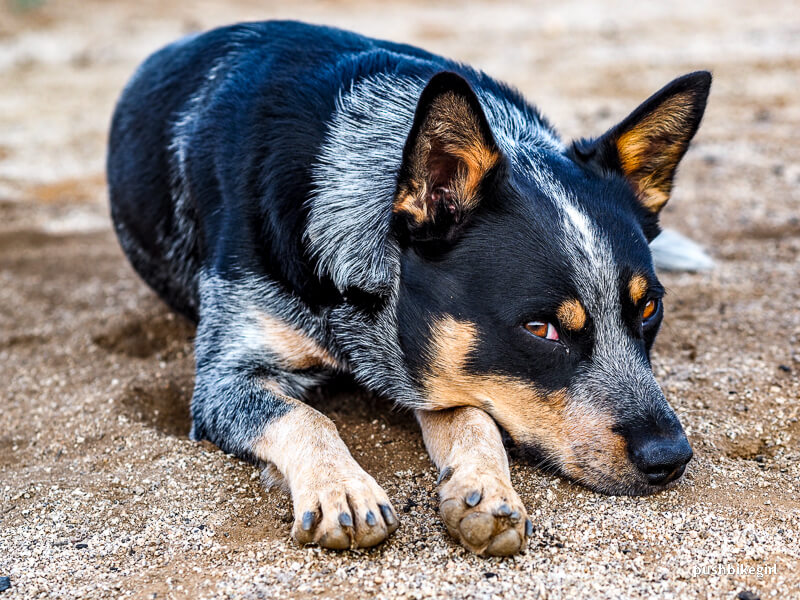
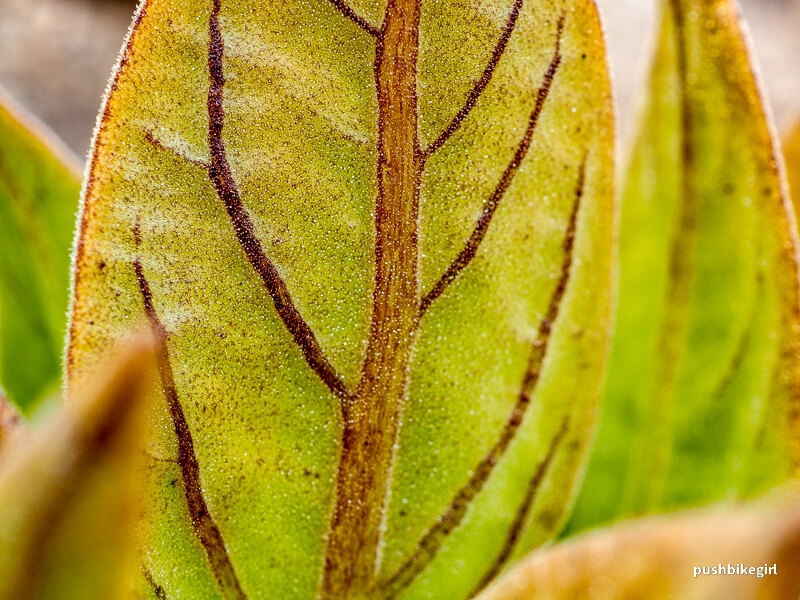
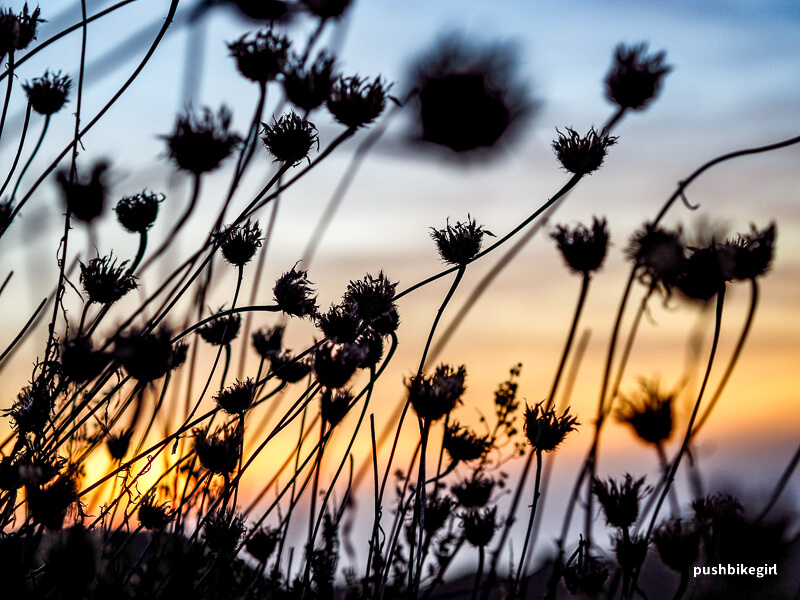
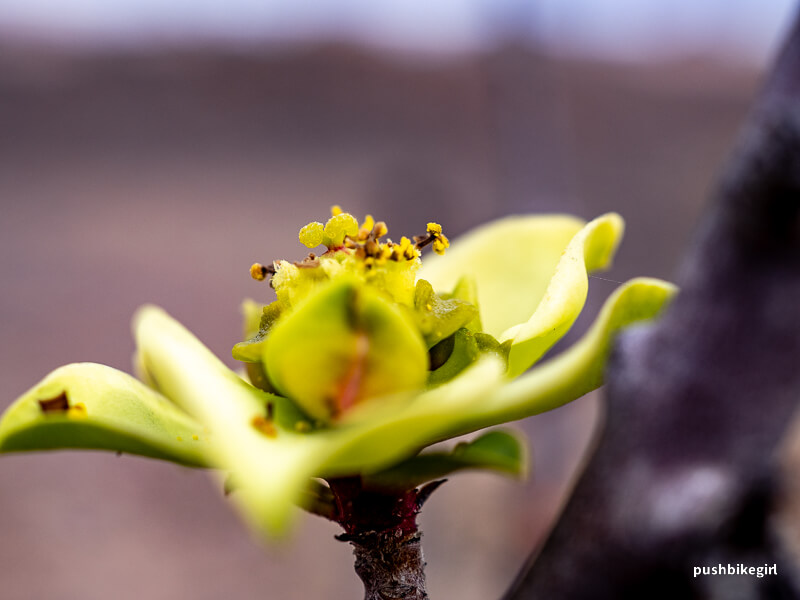
I lived in a few AirBnBs because we had to sleep somewhere. “I don’t trust you,” the one owner said to me. “You have to call me if you want to get into the house; you won’t get a key from me.” Once, I had to sit in front of the door for 40 minutes before she returned, thinking, what kind of sad society is this?
I also tried Workaway, a volunteer organization; I worked at two different places where I was really just being taken advantage of. I was interested in meeting people and saving money. The standard for these arrangements is 4 hours of daily work for room and board.
I did meet some charming people, but also one crazy woman who accused me of breaking into one of the rooms and stealing things.
Luckily I met the neighbor of the Workaway family, who referred me to Maria-Theresa—a stewardess who took me in with open arms. Luckily there were also a bunch of nice people in Chile.
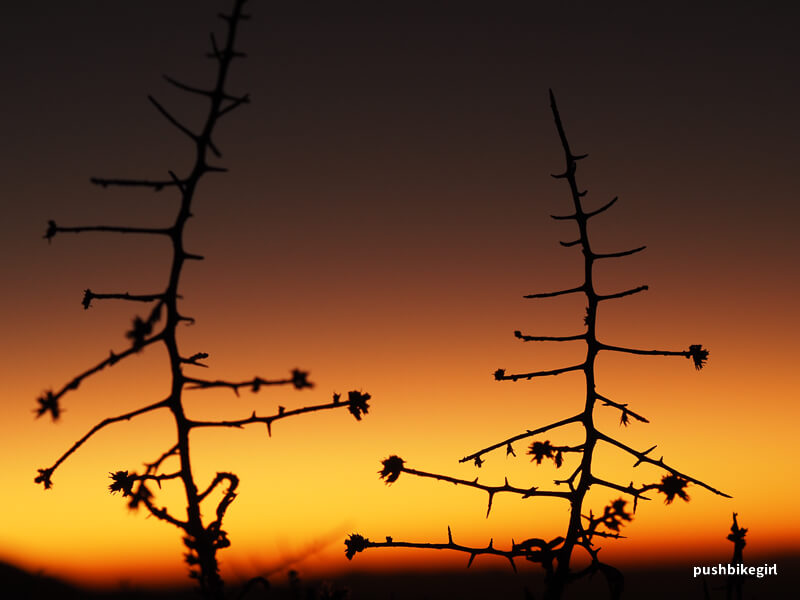
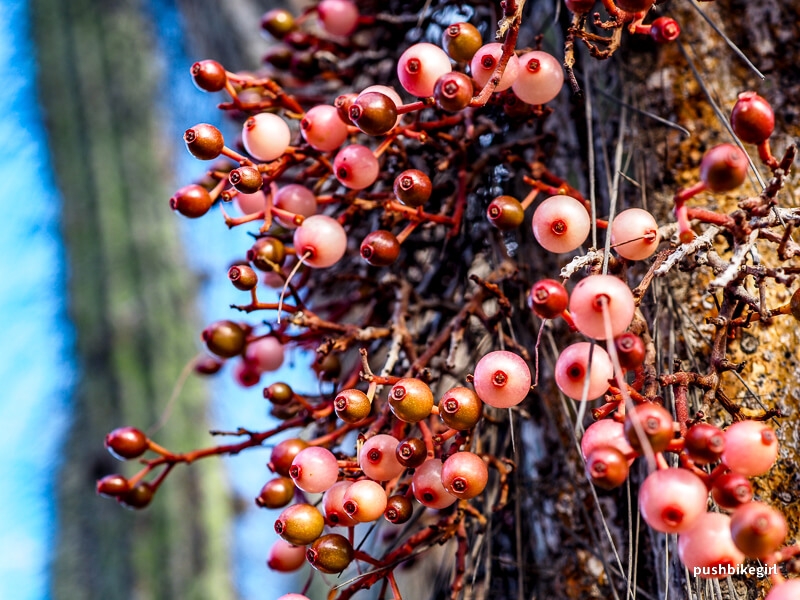
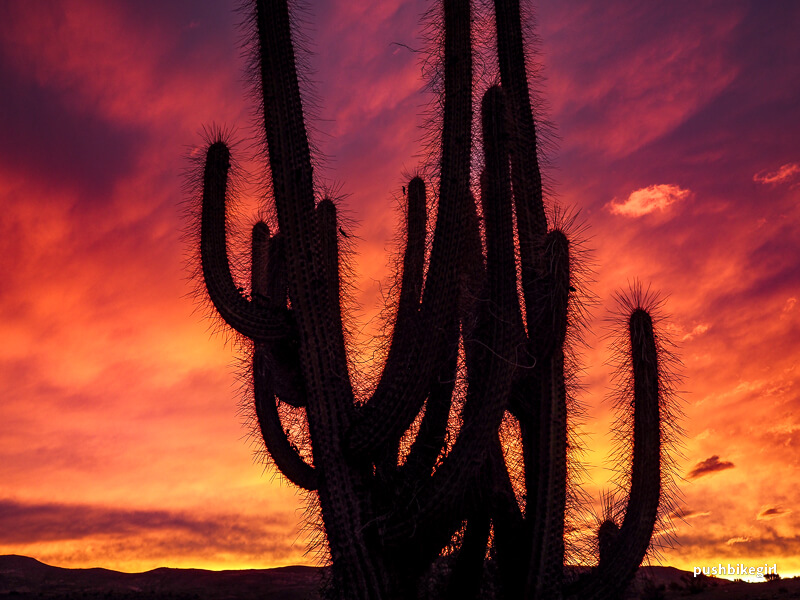
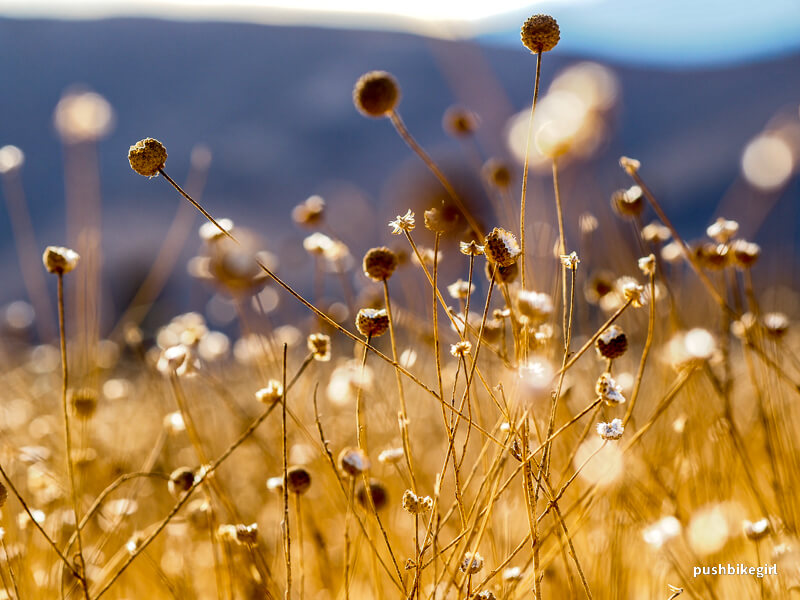
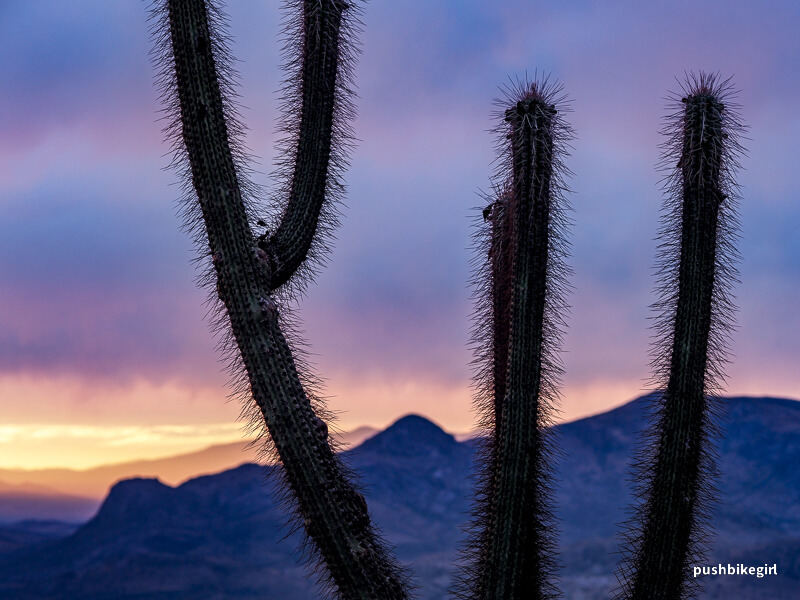
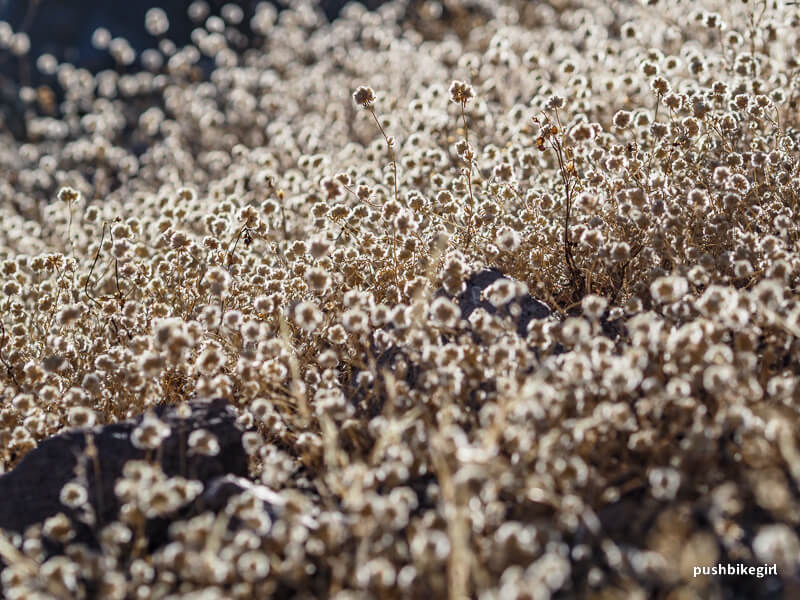
I started to get nervous because my bank account kept shrinking, and I was afraid that I might not be able to afford anything except a ticket home.
The easy choice would be a car, truck, or van, but I didn’t want those types of vehicles—Easy. I wanted something that we could be comfortable with. Where Butch is protected but doesn’t have four wheels. I had to be able to identify with it. It still had to be an adventure, plus it had to fit within what I could pay for.
After four long, exhausting months in Chile, I found the solution – a Tuk-Tuk.
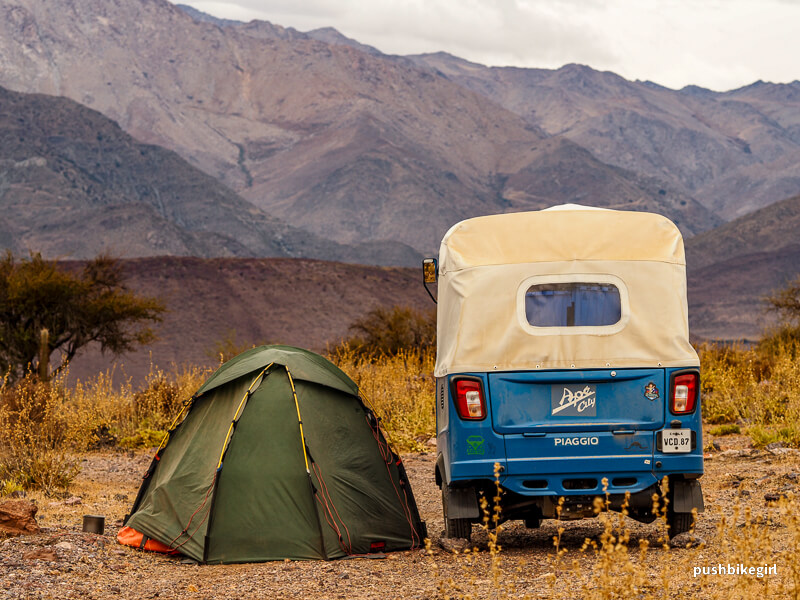
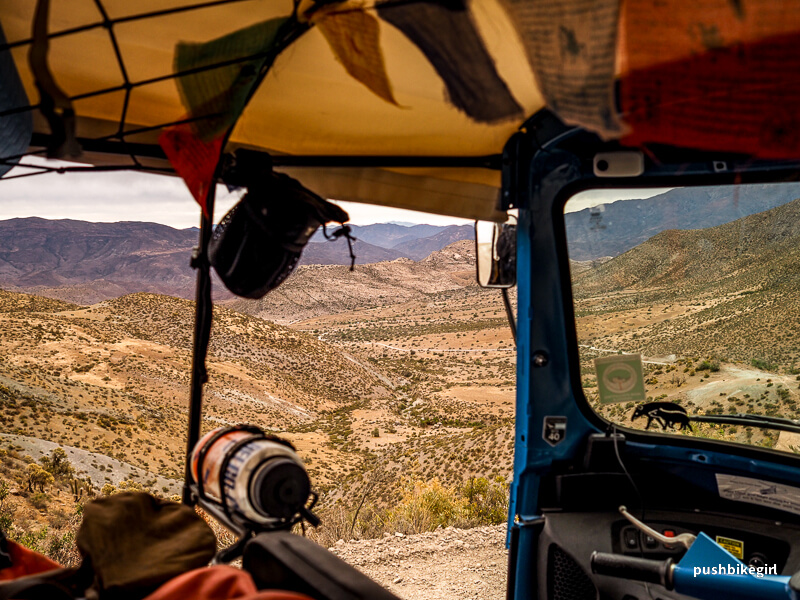
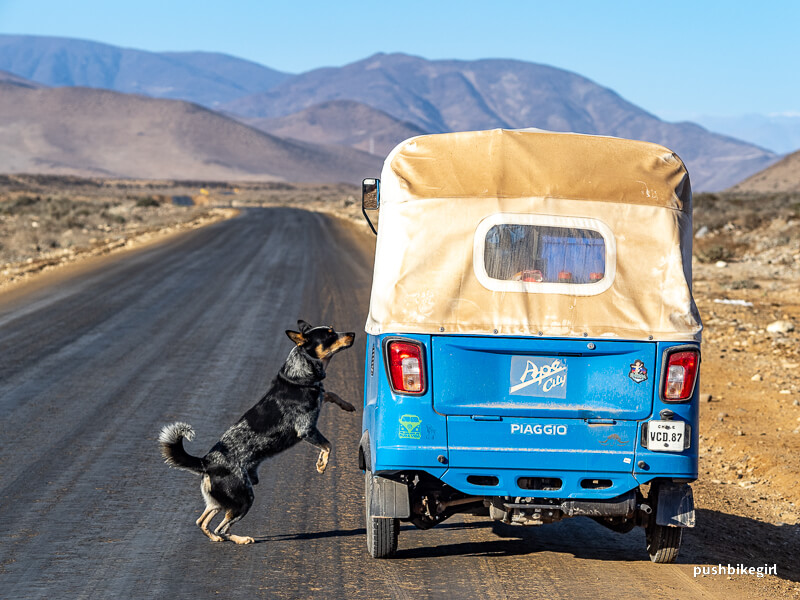
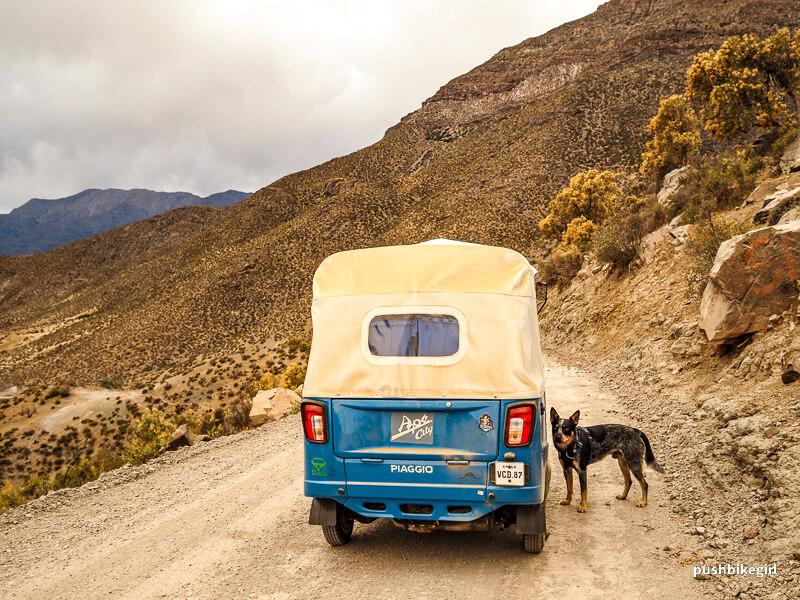
After all, Chileans are more German than the Germans and love their many rules, endless paperwork, and hoops to jump through seems to be their favorite way to pass the time. The purchase of the Tuk-Tuk was a long process.
Finally, I was before a notary, and after I allowed five fingerprints to be taken, and after paying a hundred and fifty Euros for this bit of bureaucracy, I was the proud new owner of a Tuk-Tuk. Two-plus months later, I’m still waiting on the official papers. You have to be patient here.
Without a notary, nothing works in Chile. If you come to a village, you know that you will find a notary wherever the longest line of people is.
If someone wonders now why I didn’t just go to another country, it’s not so easy with a dog; and as a foreigner, I am not allowed to buy a vehicle in almost any other South American country if I want to cross a border with it at some point.
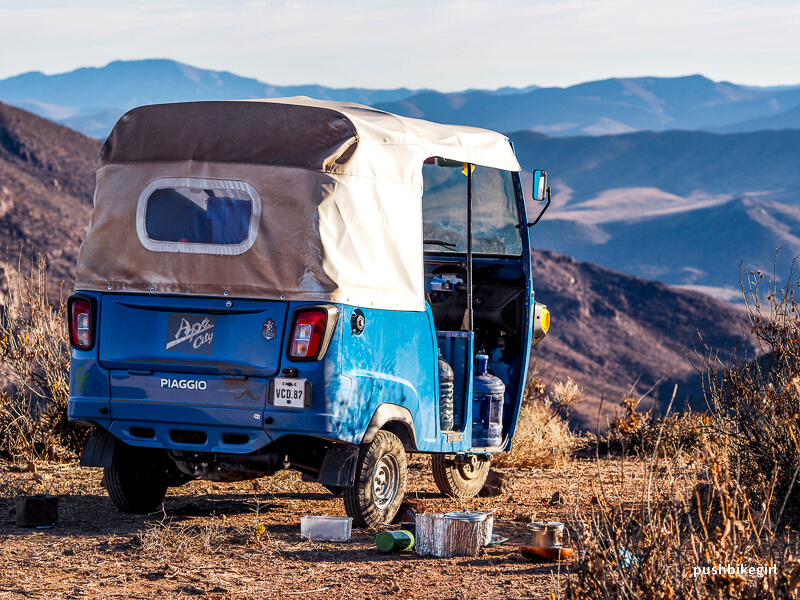
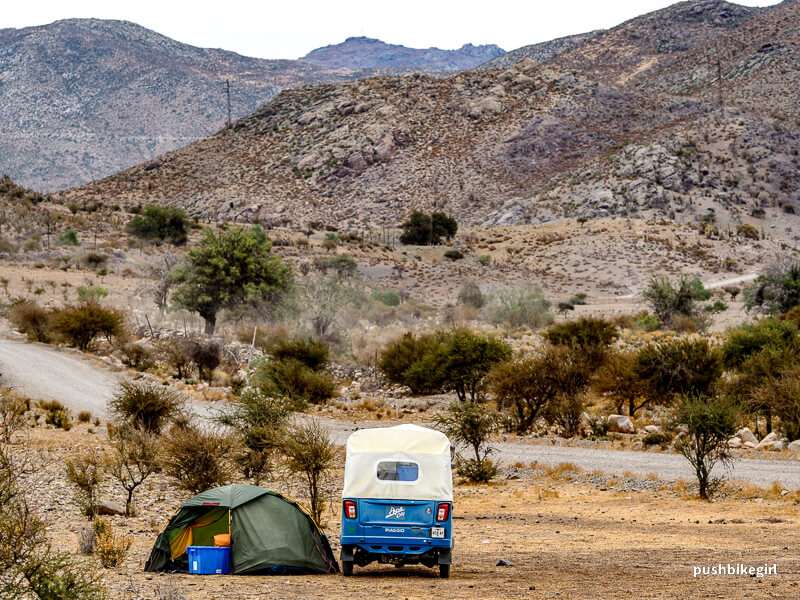
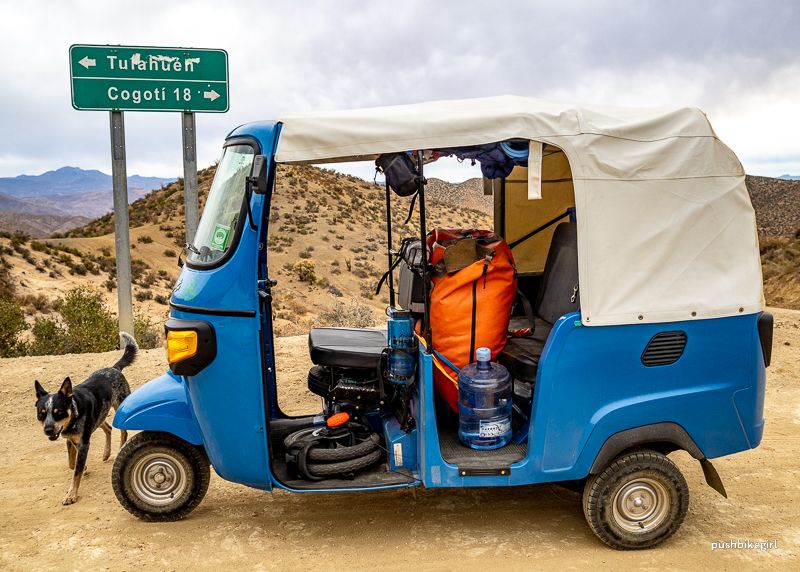
Hurrah!!!! We were at last on the road again.
Finally, I had my freedom and could continue my life as I was used to. But it took some time to throw off the old burdens and fully immerse myself in what distinguishes my life.
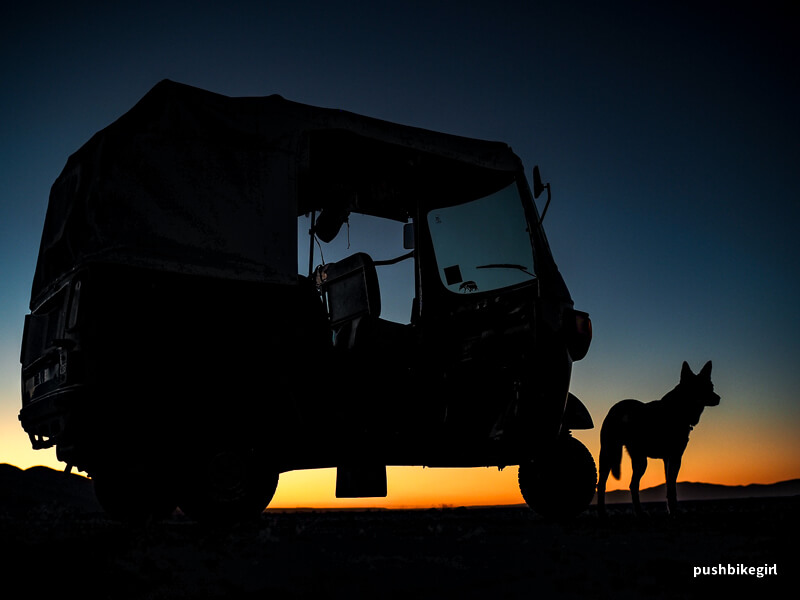
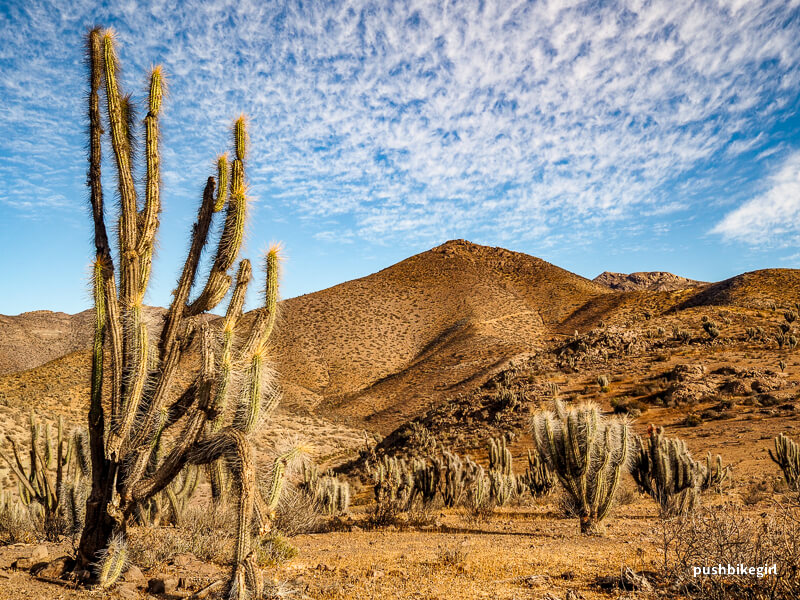
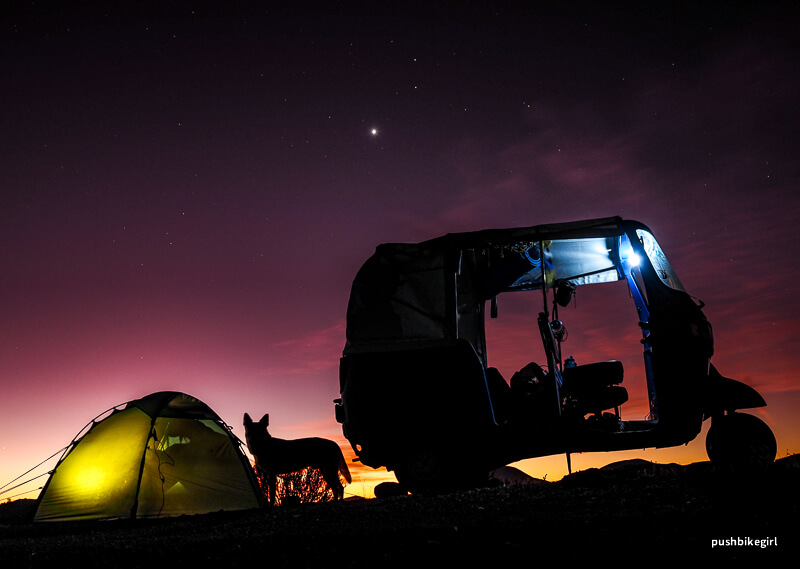
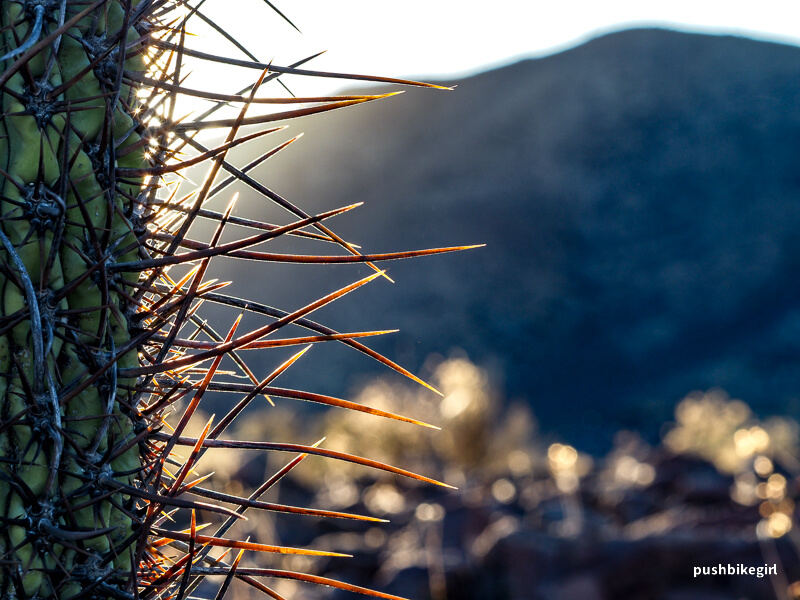
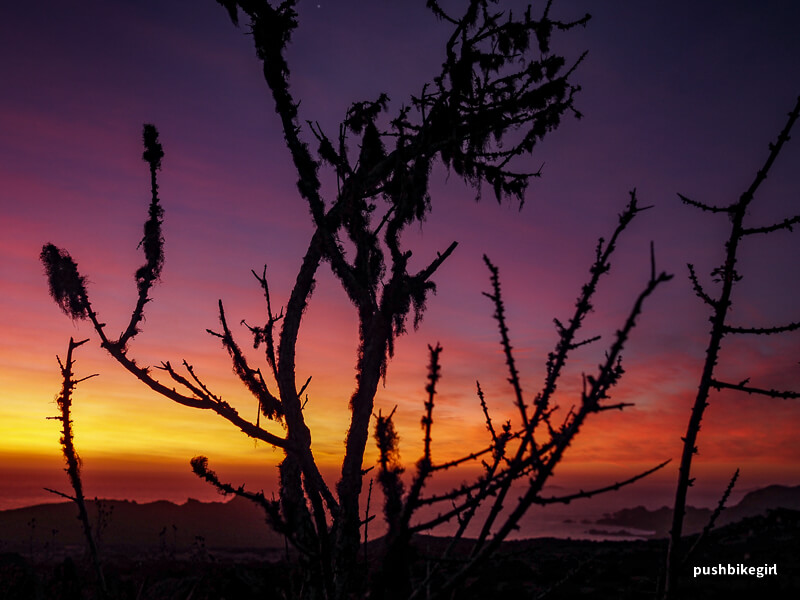
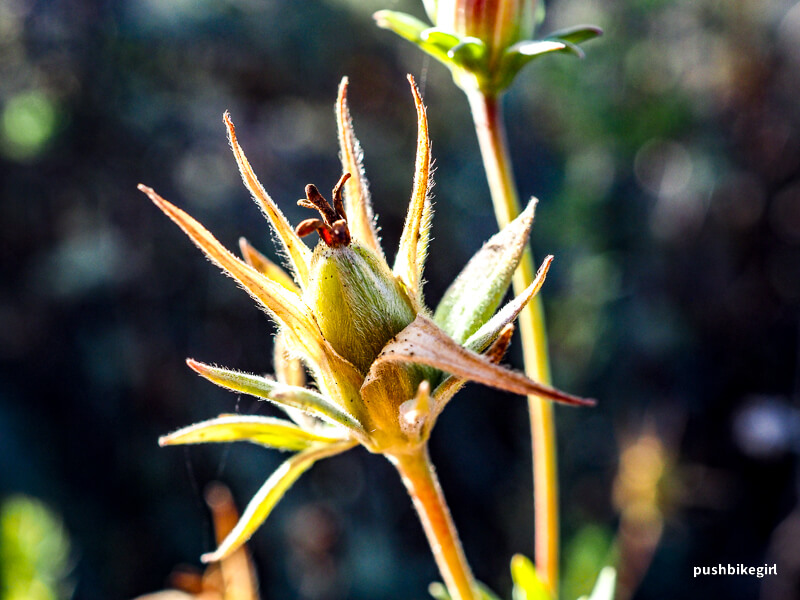
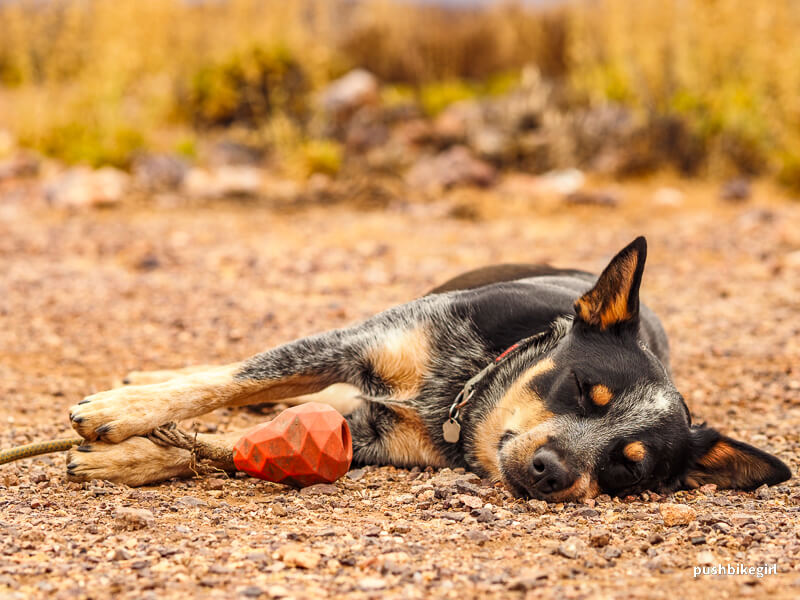
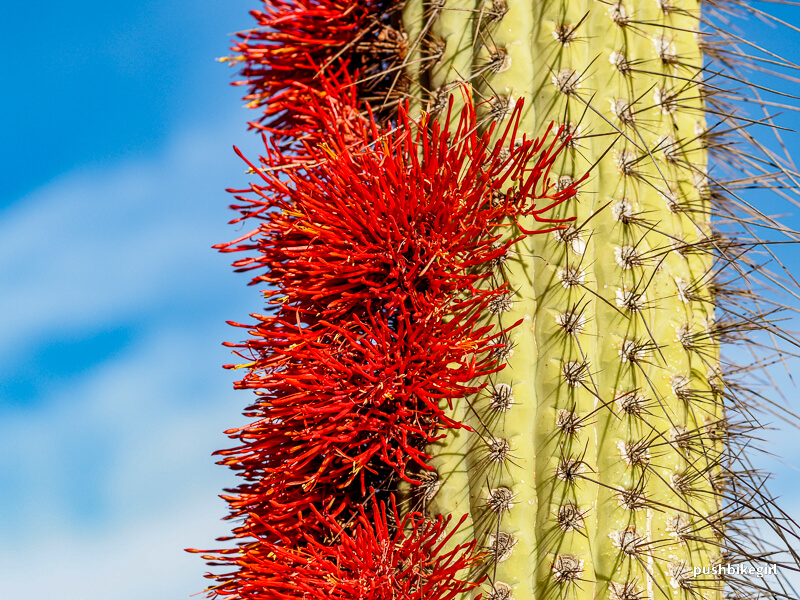
Chile is a rich country—SUVs and 4x4s are everywhere, so getting out of Santiago with a Tuk-Tuk speed of 50 kilometers per hour was not easy, but we managed to get out alive and spent the first evening with Carmen in her Airbnb in the country.
She was open-minded, served me dinner, and her Spanish was easy to understand. I wondered why she was so different. Soon enough, all was clear; she was from Argentina. We had an excellent time blaspheming the Chileans that evening.
The landscape was fantastic. No matter where we went, it was top-class.
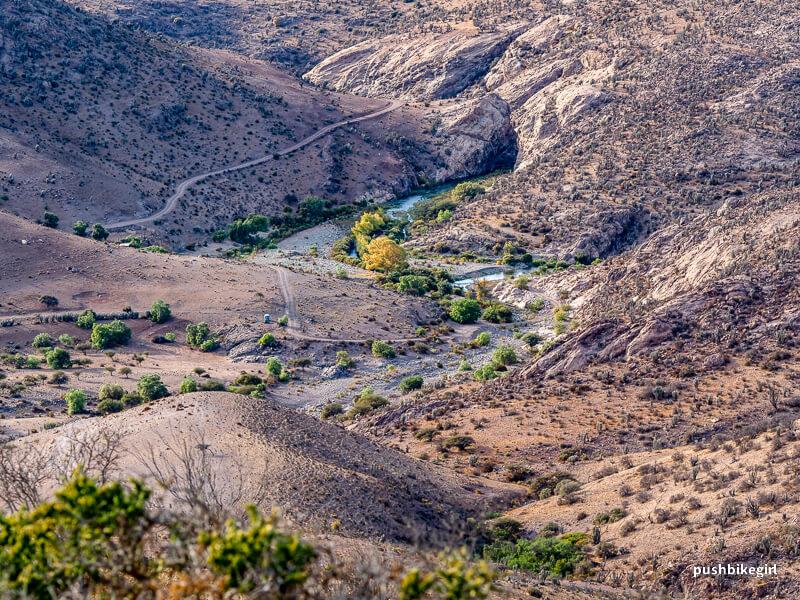
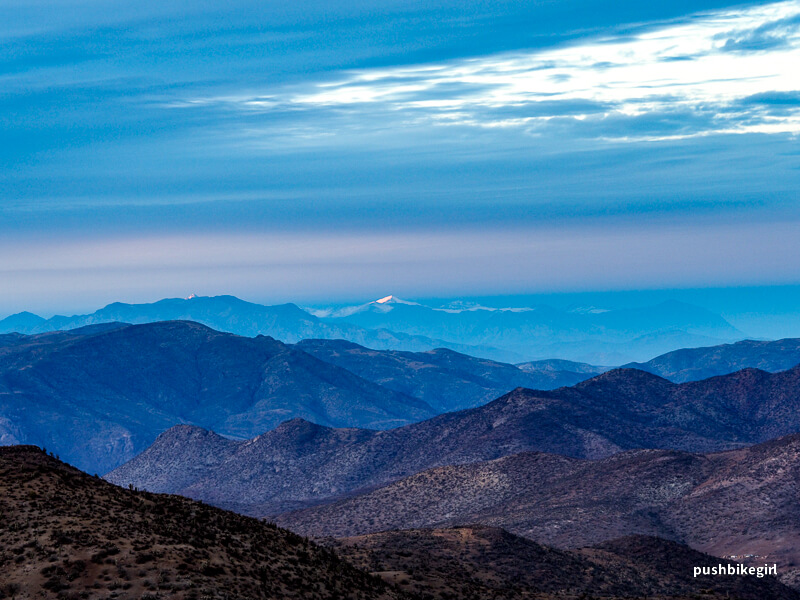
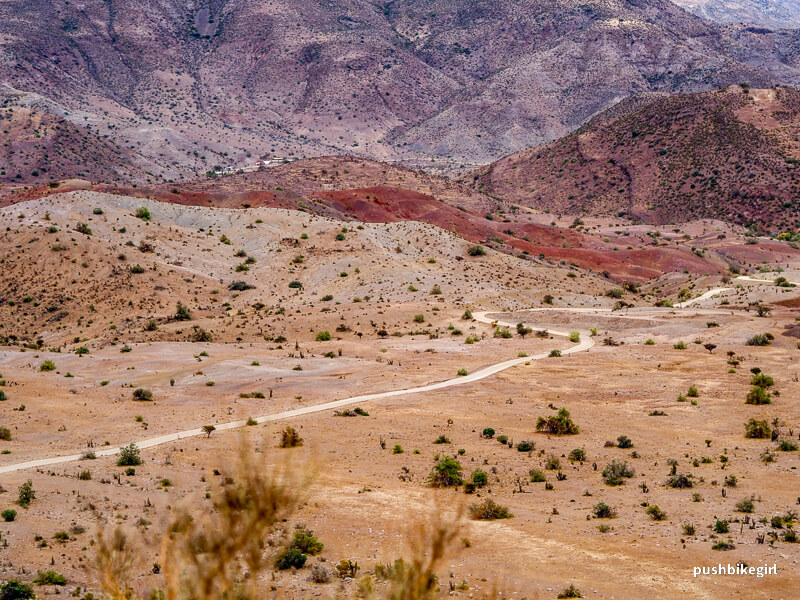
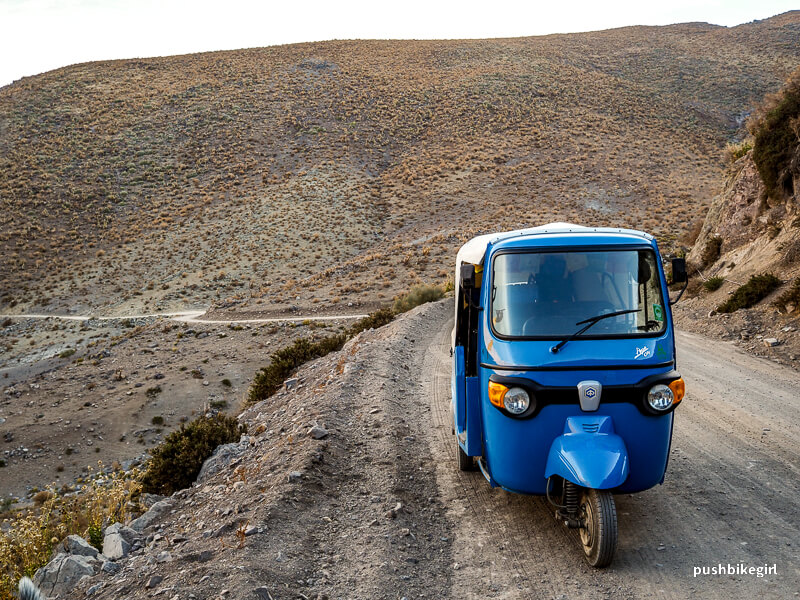
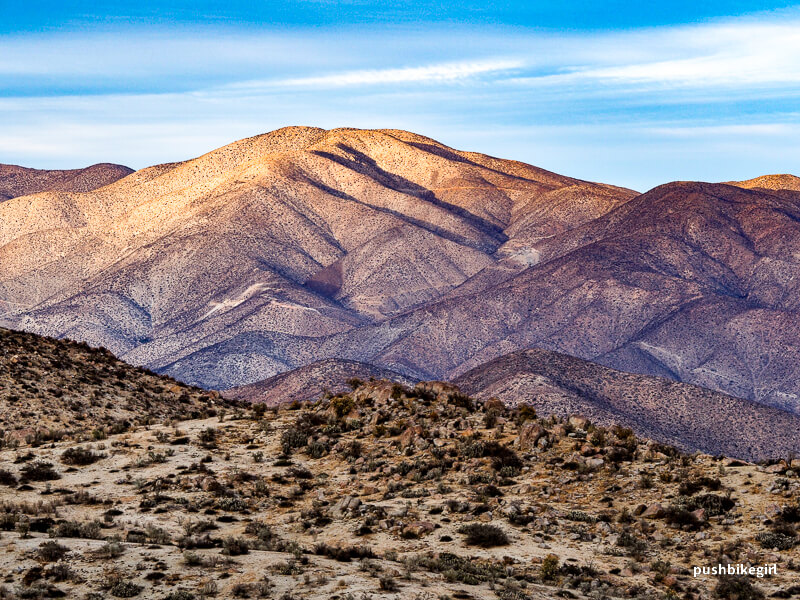
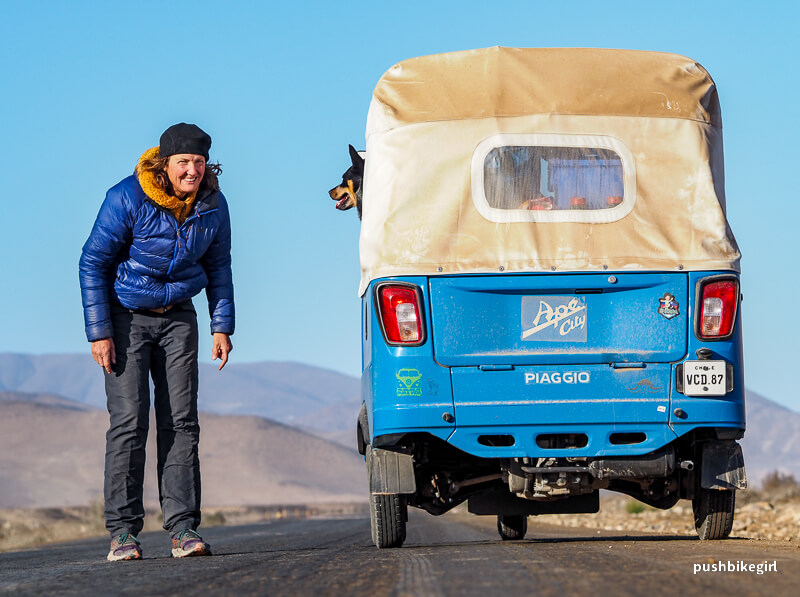

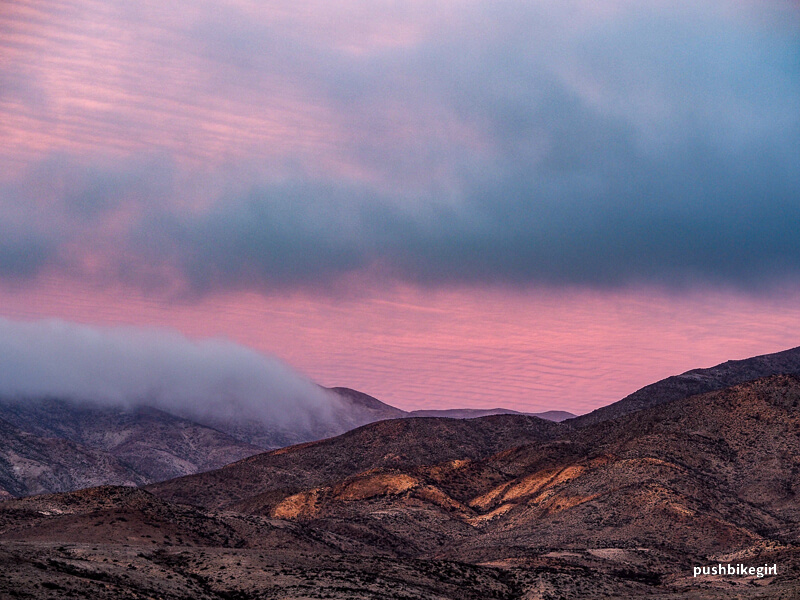
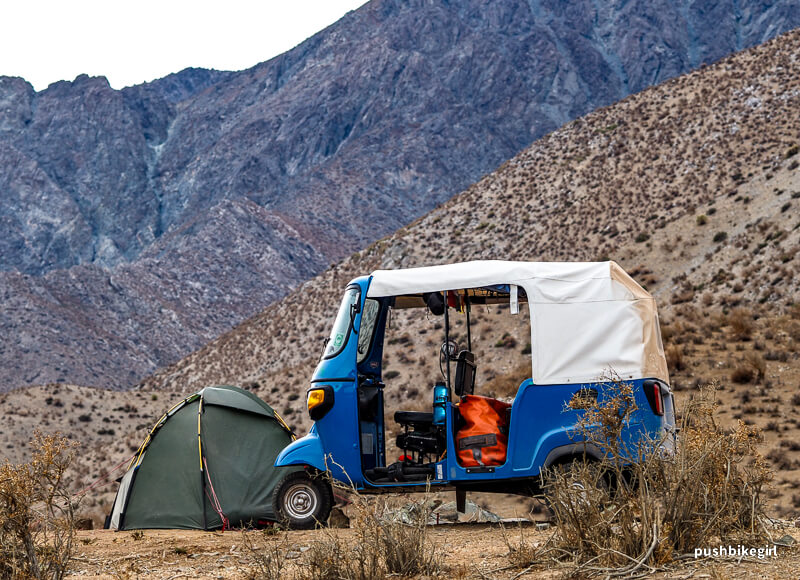
We had sensational tent sites and great views. I was thrilled and delighted that the last months’ stress had been worth it.
We often had the areas to ourselves. We could hike as much as we wanted because no one was around.
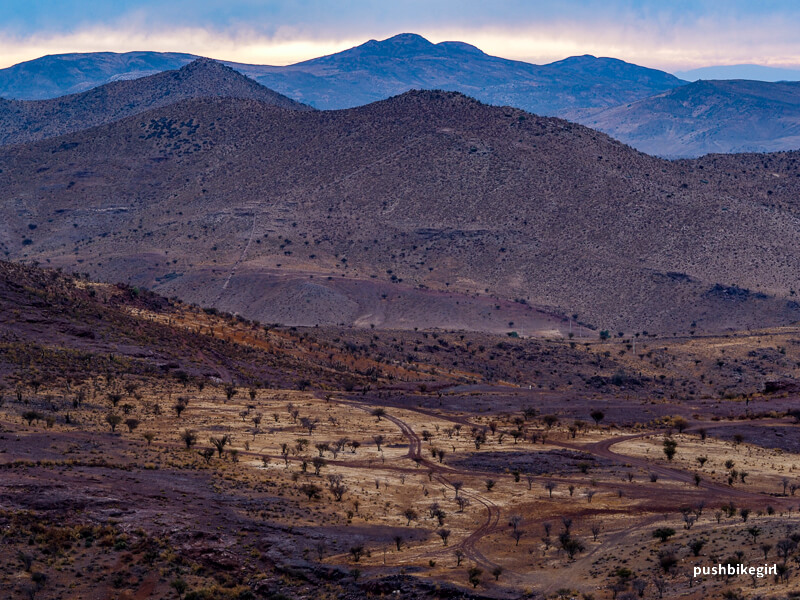
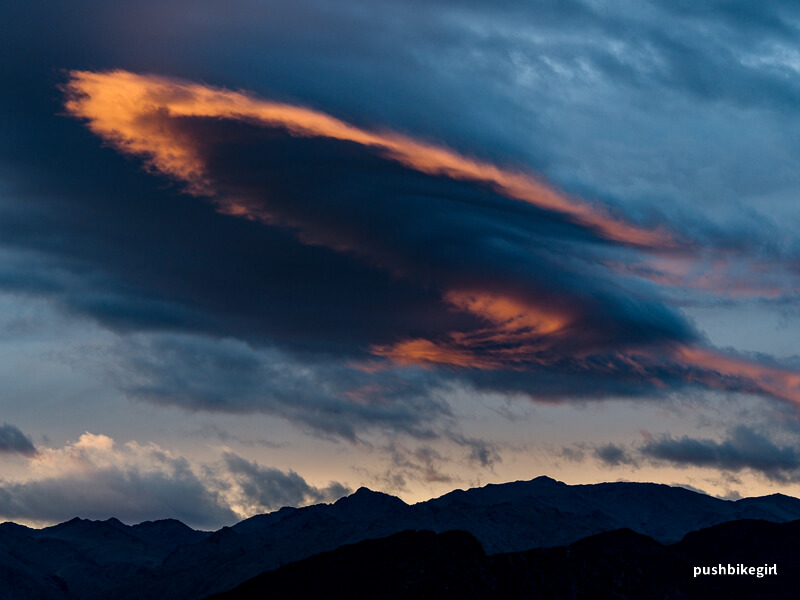
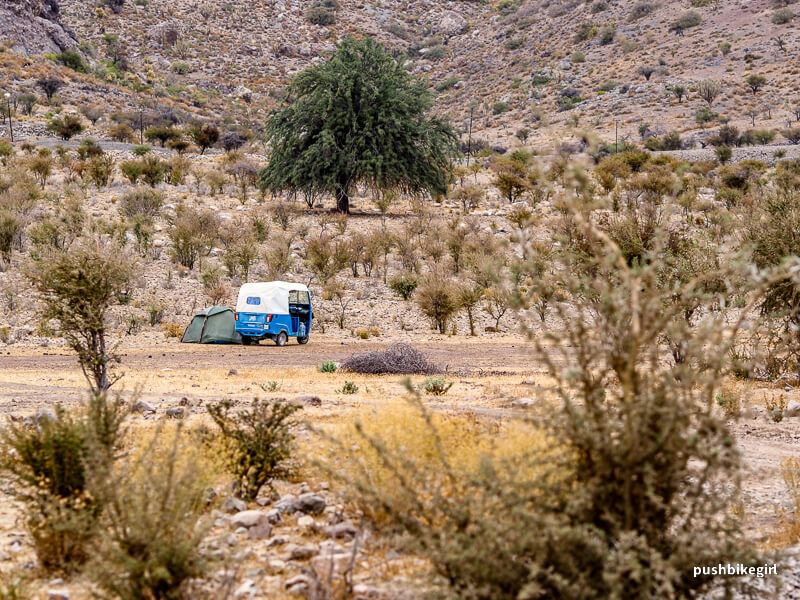
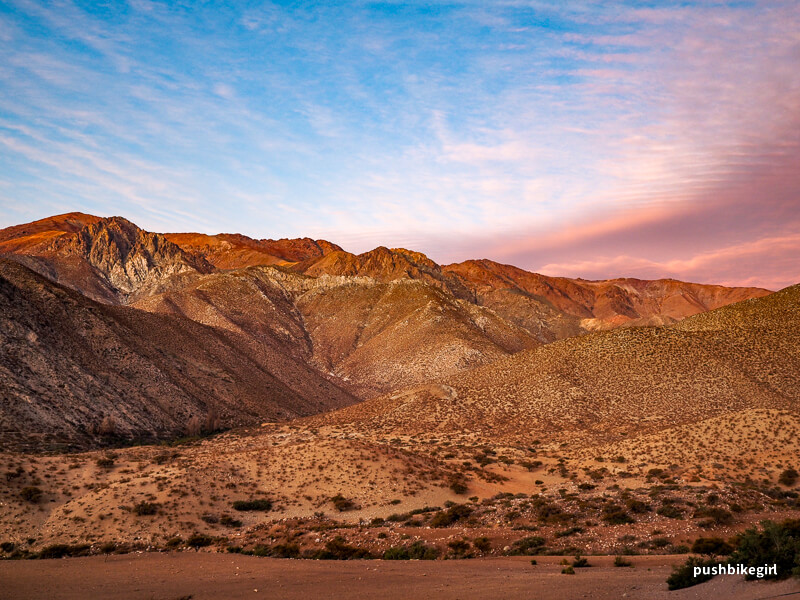
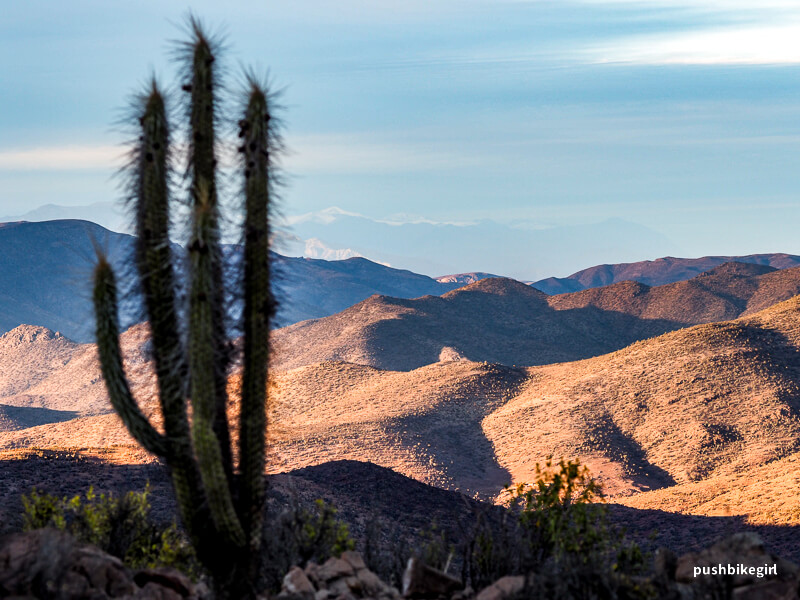
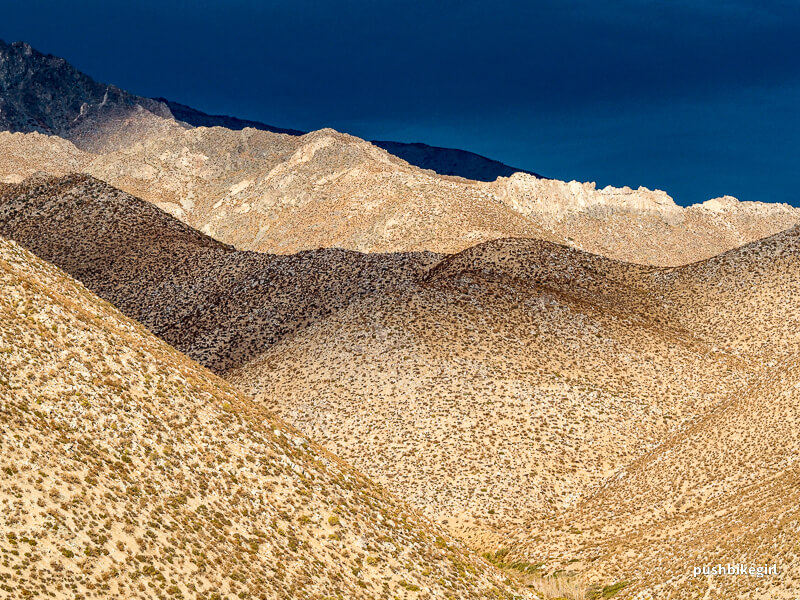
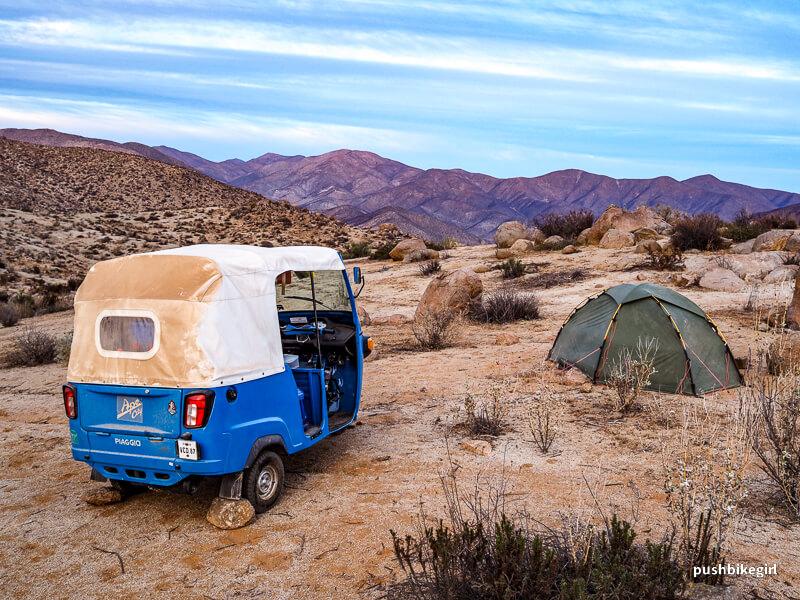
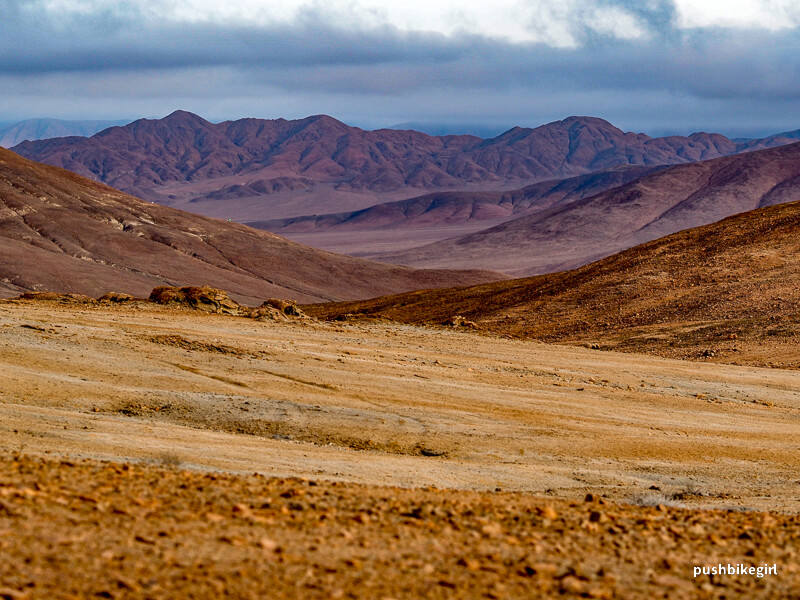
With the Tuk-Tuk, I quickly fell in love with the fact that I could carry healthy food. Not like on a pushbike, where you can’t take much more than lentils and rice.
Life is good: long morning hikes and the chance to cook delicious food.
Chilean food is usually totally salty and lacking in spices. Everything tastes the same, is fried, or consists solely of meat. The vegetables have been transported a long way and often taste like nothing. I haven’t eaten tomatoes as disgusting as in Chile since West Africa.
Chile seems to rely heavily on imports from China. Chinese stores in every small village. Plastic, as far as the eye can see. Cheap goods and crap. On the other hand, high import duties are imposed on imported goods from the USA or Europe. Ordering something from the West becomes unaffordable.
I saw car brands that I had never seen before. Everything from China copy-cat 4x4s that look like Toyotas. China is everywhere, anyone who hasn’t understood this yet, has slept through the last few years.

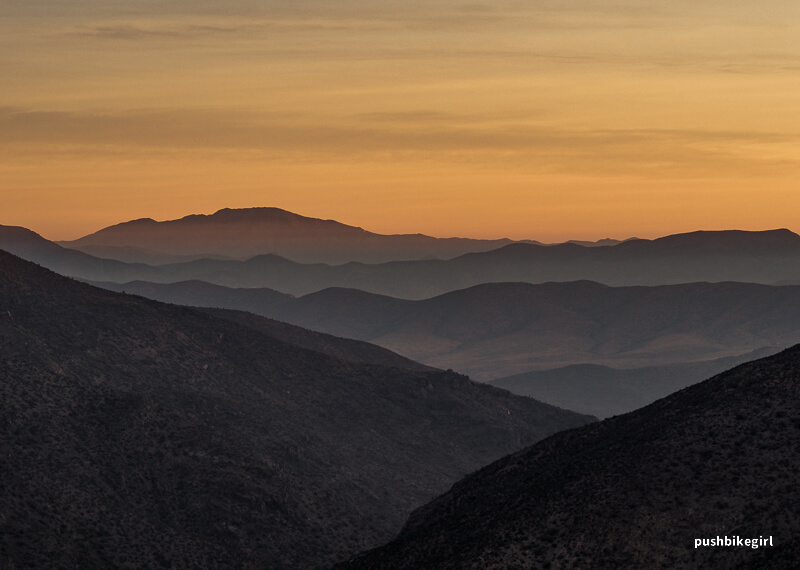
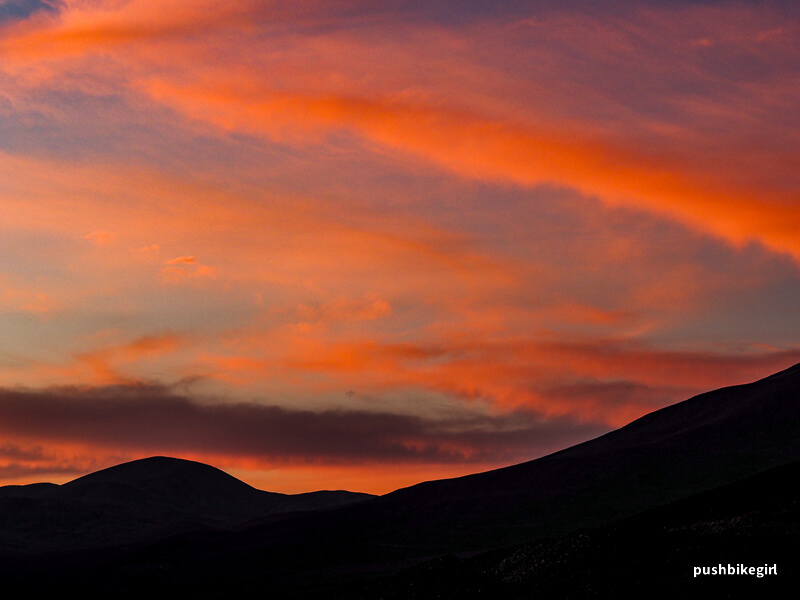
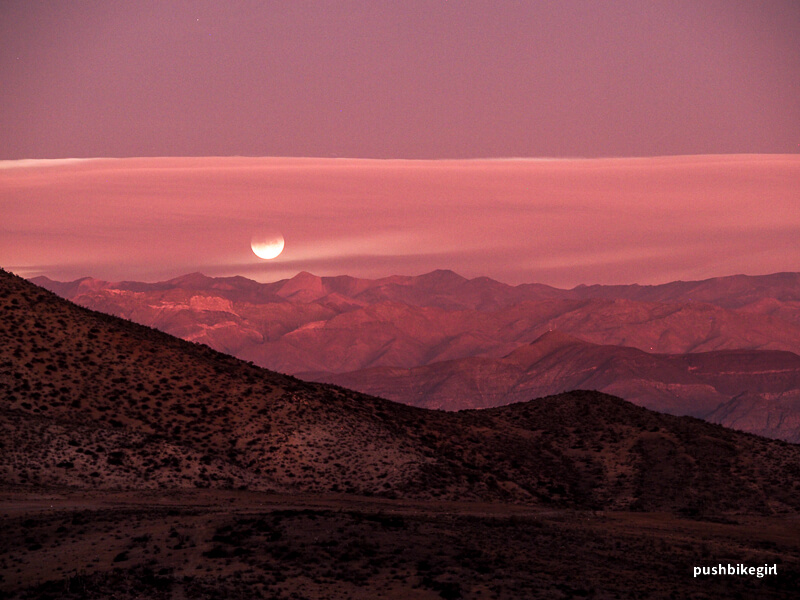
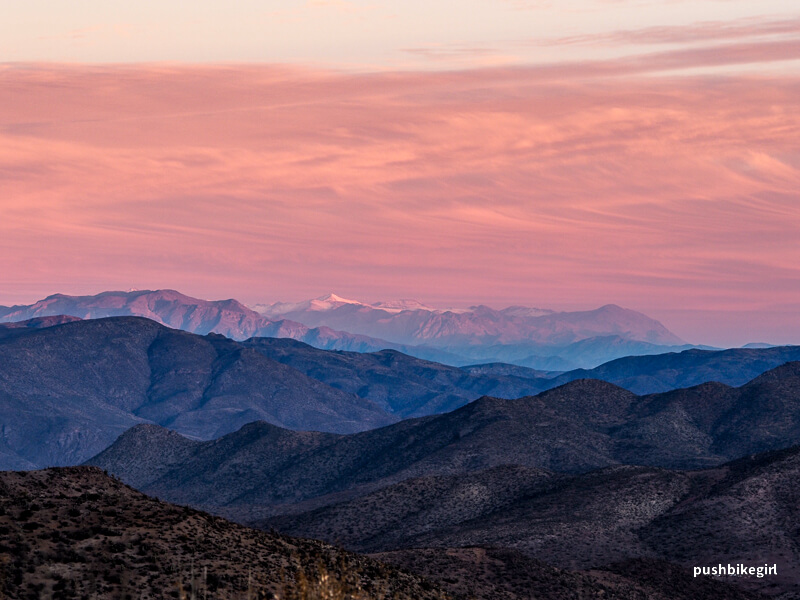
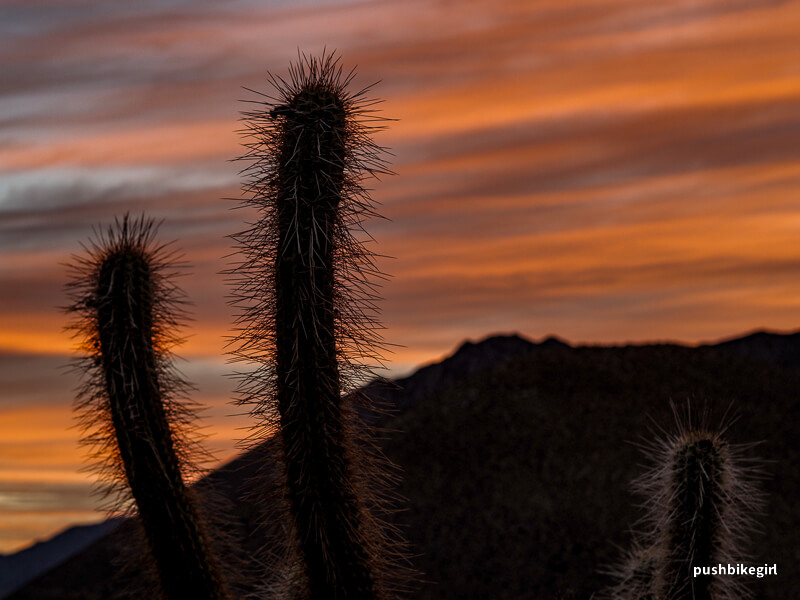
After so much time in the smog-laden and noisy city of Santiago, I enjoyed every breath, and the calming effect of the lack of noise was more incredible than ever in the countryside. I always wonder how people can stand it in such huge cities.
It quickly became apparent that hiding in the evening is much more complicated than when riding a pushbike. So I always had to look to what extent we were visible from the road, often using cacti or rocks to shield us from view. I was also careful with lights.
Of course, I can’t just push a Tuk-Tuk somewhere like I can with a bicycle. I am, therefore, much more limited, but I always find something suitable because there is enough space here.
After some time on the road, I became more comfortable because we had not had any bad experiences. No one was interested in us, although the Tuk-Tuk often even conjured up a smile in the faces of the Chileans, which I was pleased about. Sometimes, I didn’t bother to hide as no one came by anyway.
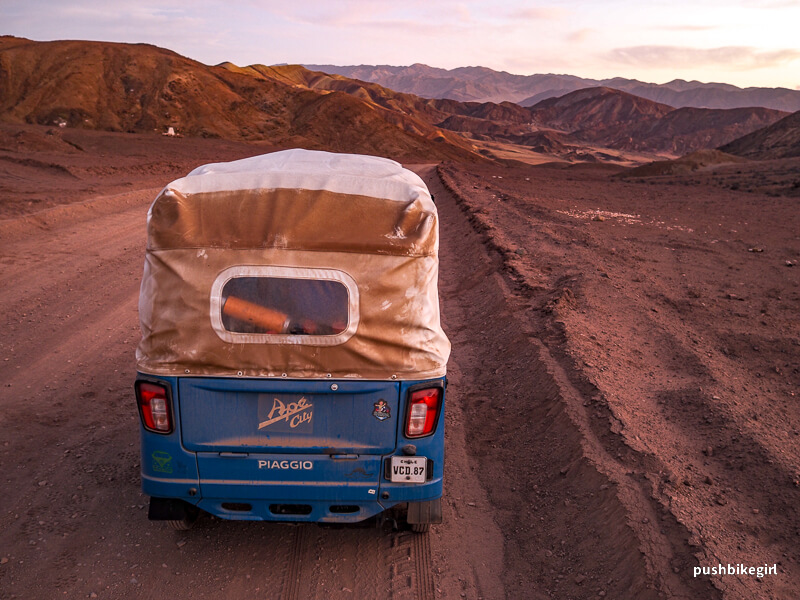
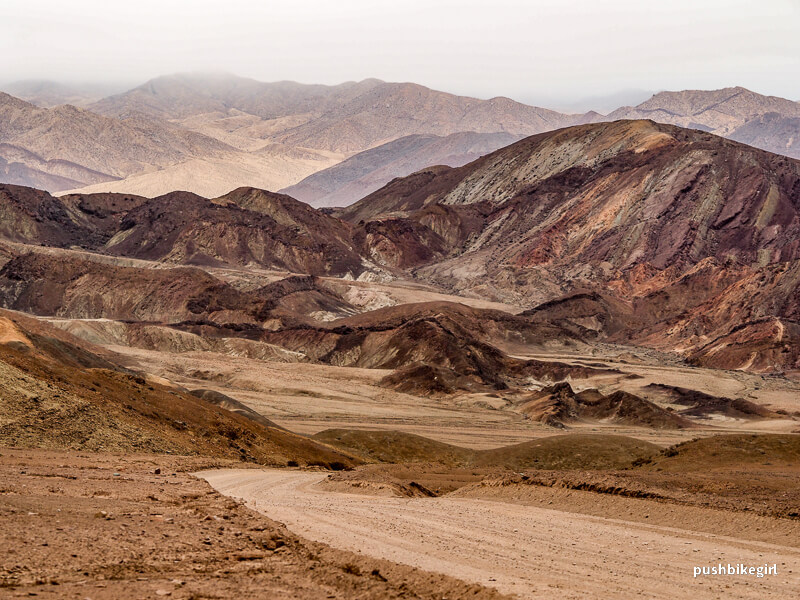
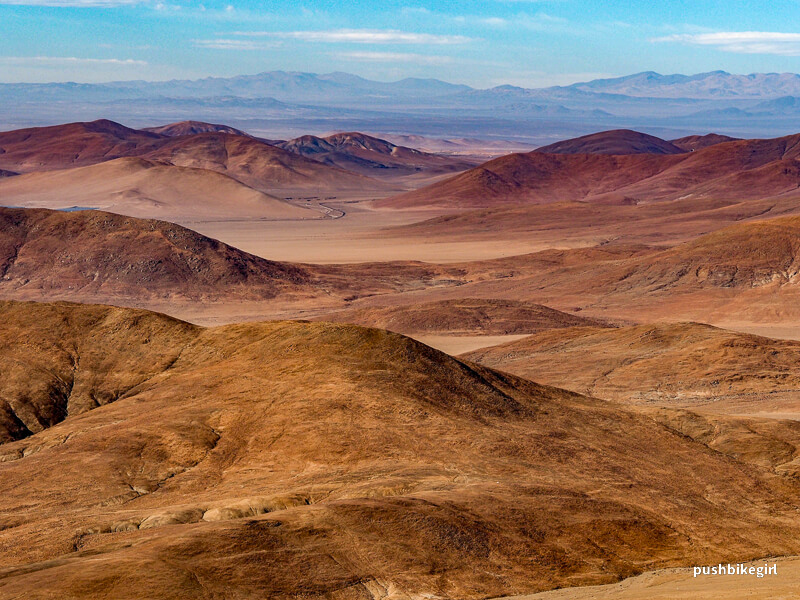
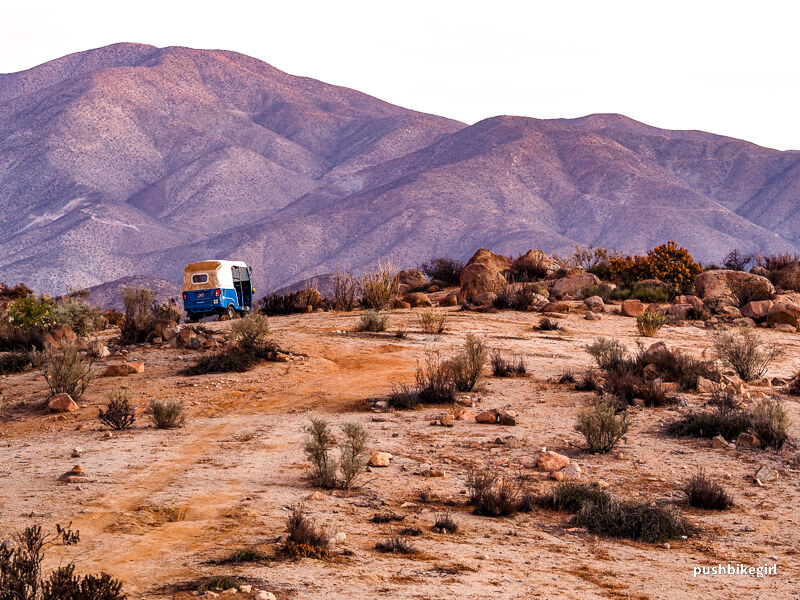
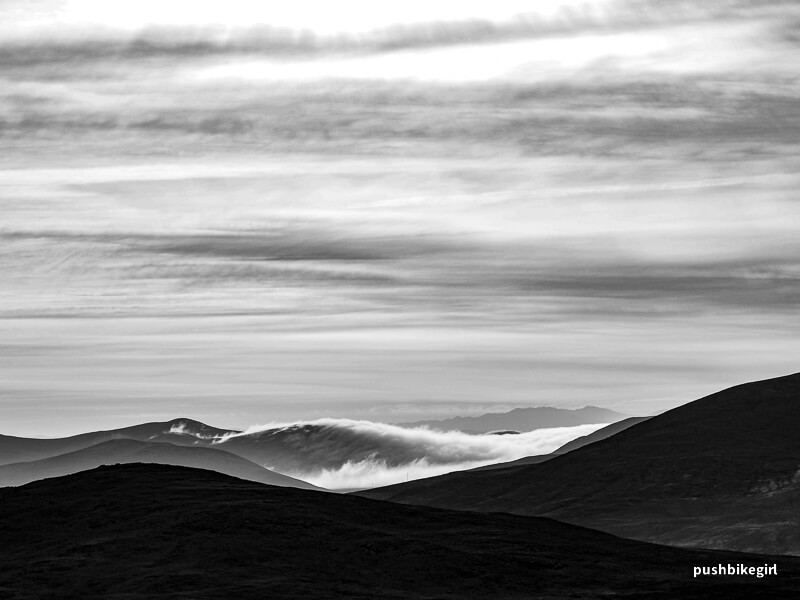
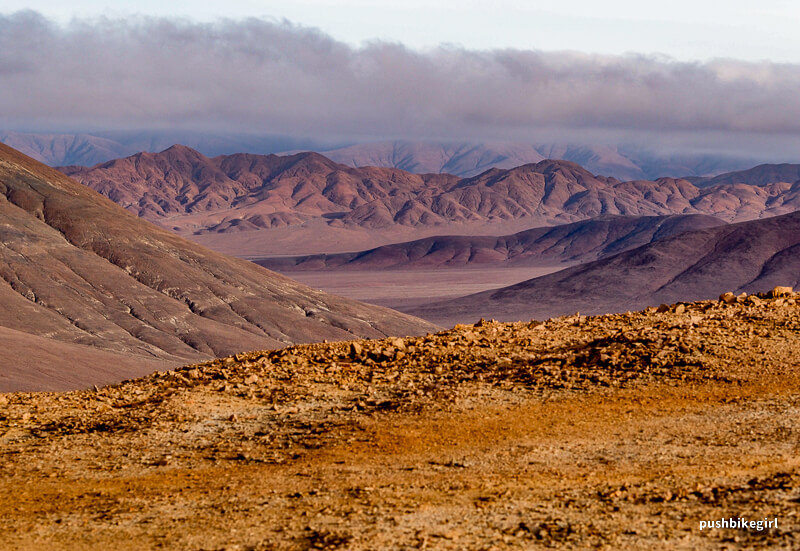
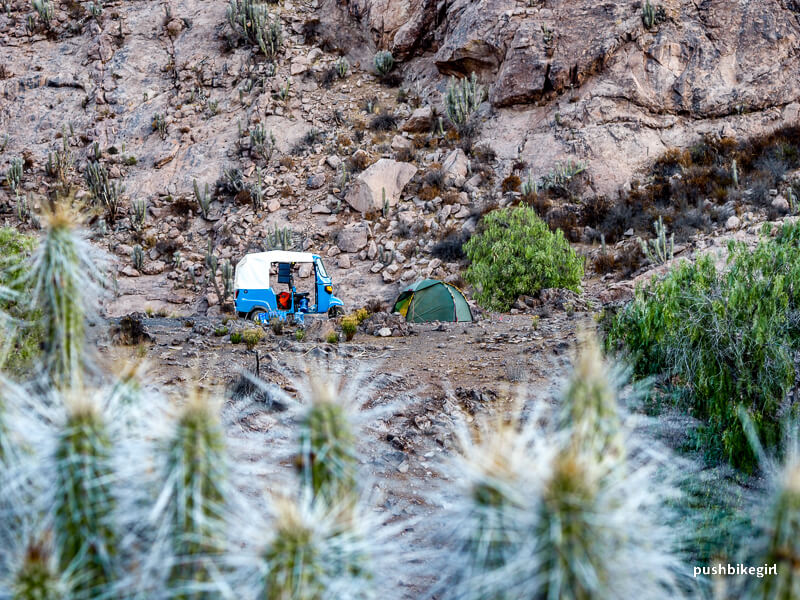
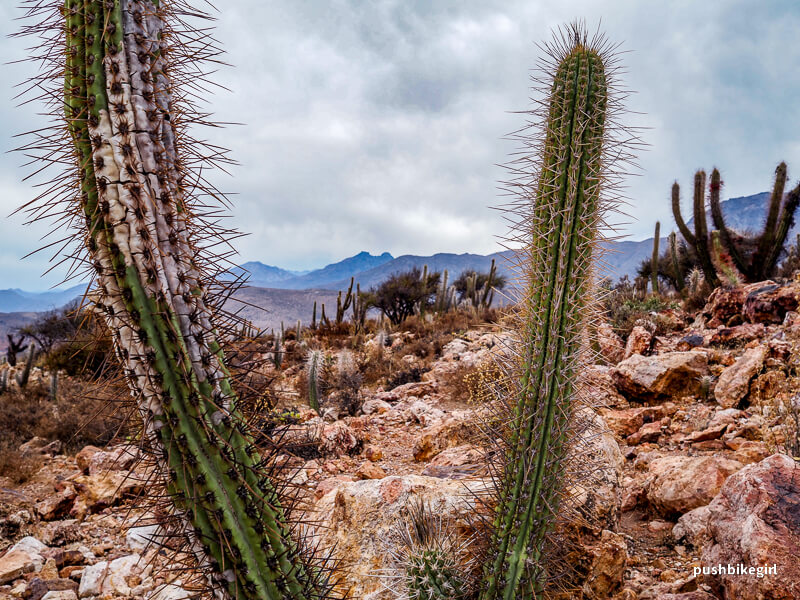
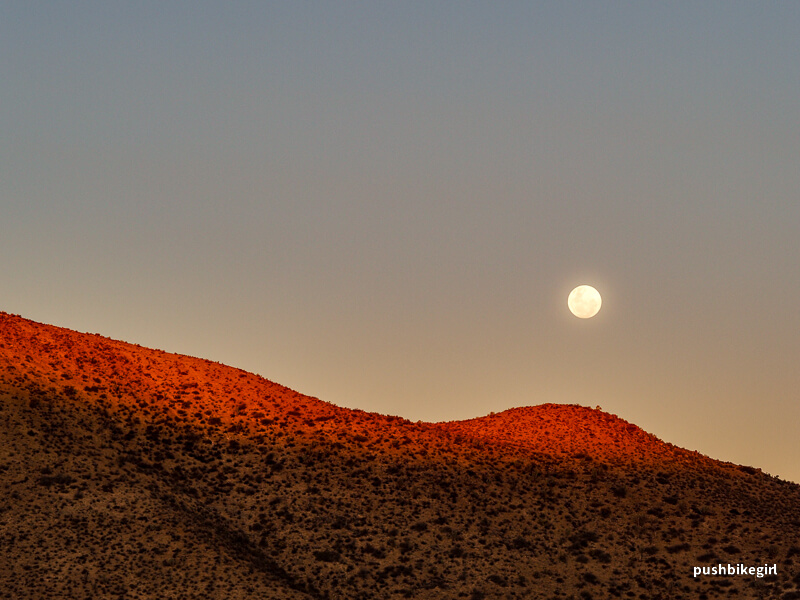
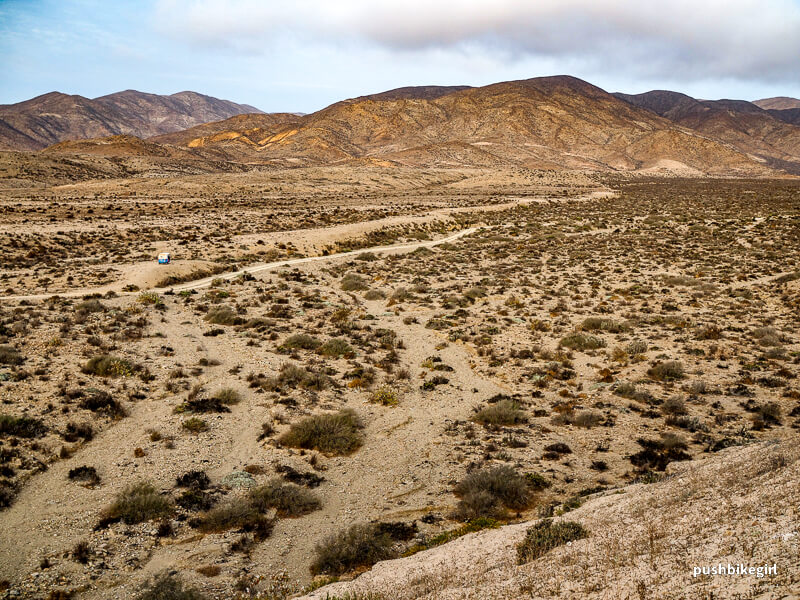
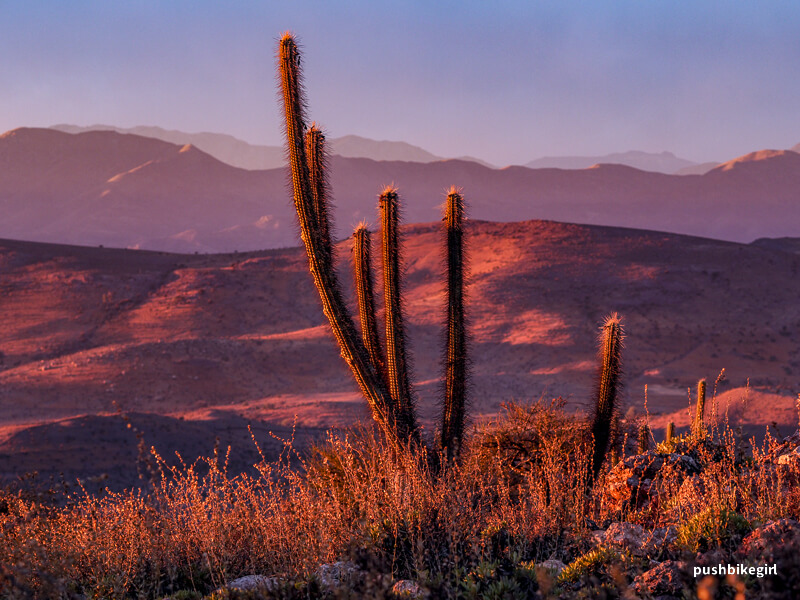
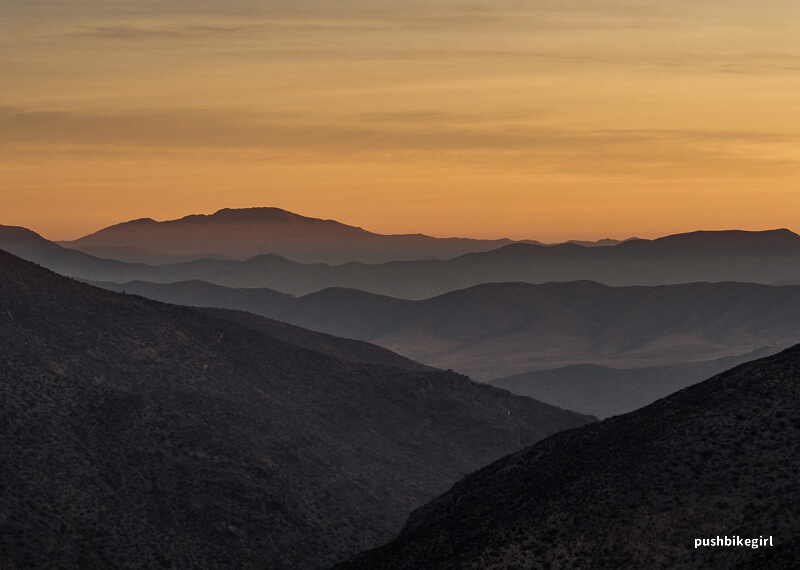
It is impressive how ingenious the Tuk-Tuk is on the Andean slopes. Deep sand is, of course, a real problem. So far, we’ve gotten everywhere we wanted to go, sometimes at a walking pace when the roads are heavily corrugated, or the slopes are pretty steep.
In a pinch, I get out my shovel and prepare the track so we can get through. Often the roads have been graded, with the graders leaving piles of sand at the edge of the road, so out comes the shovel again so I can clear a path to pass through to camp.
I am glad to have made the right decision to purchase the Tuk-Tuk. It’s great.
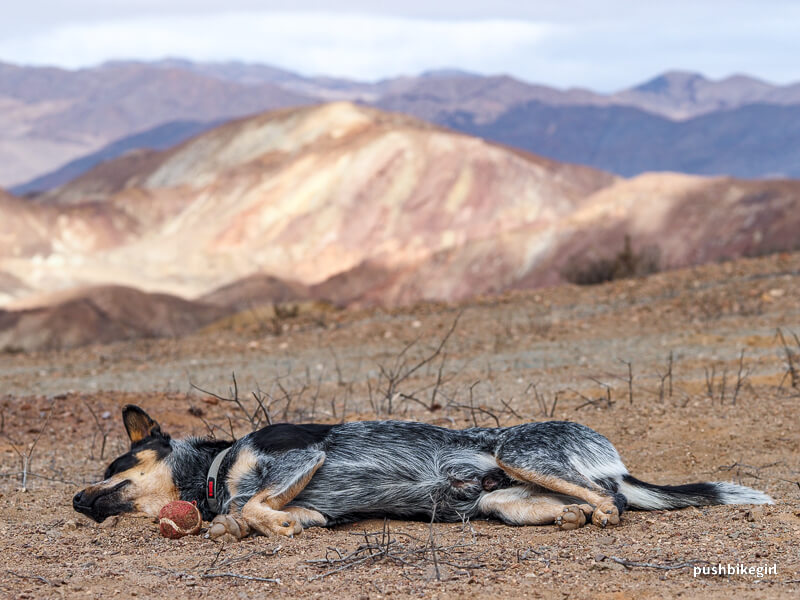
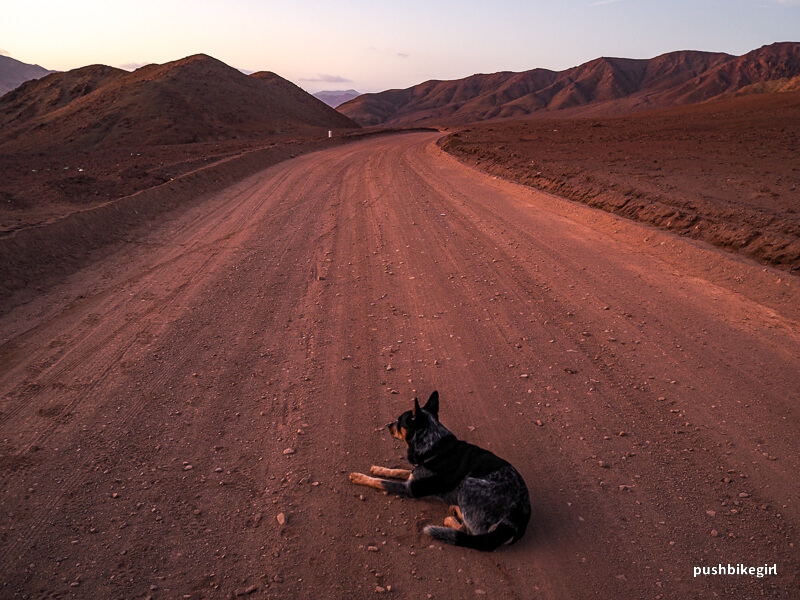
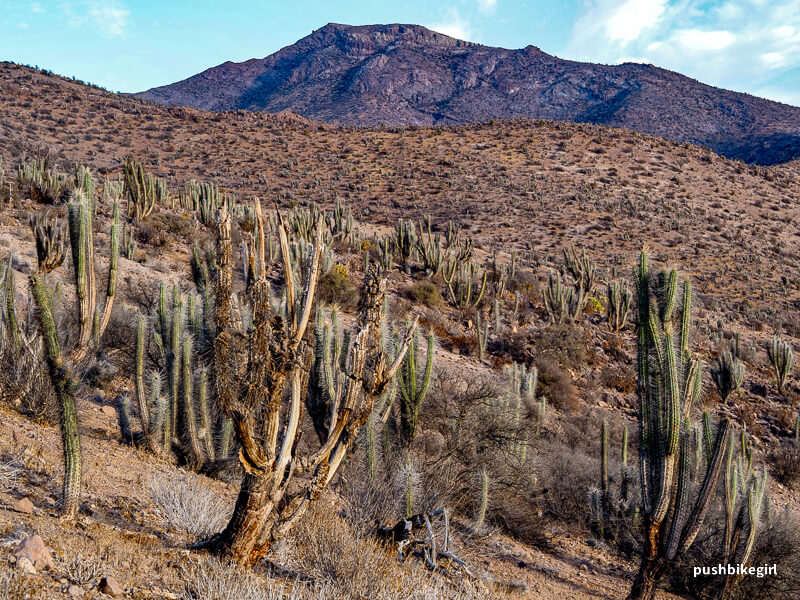

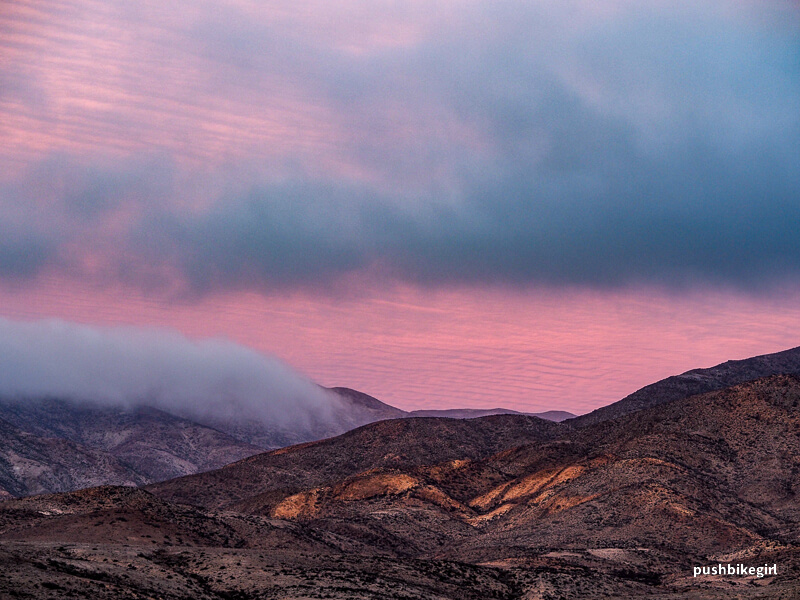
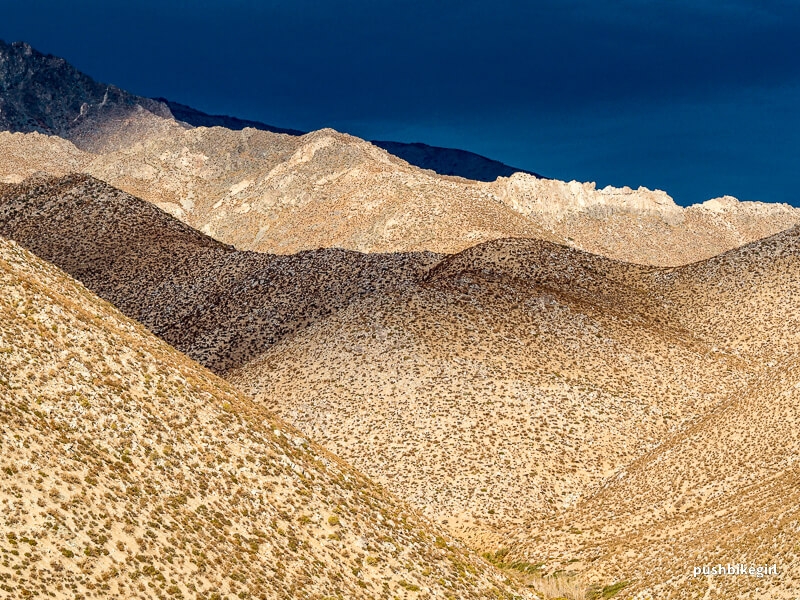
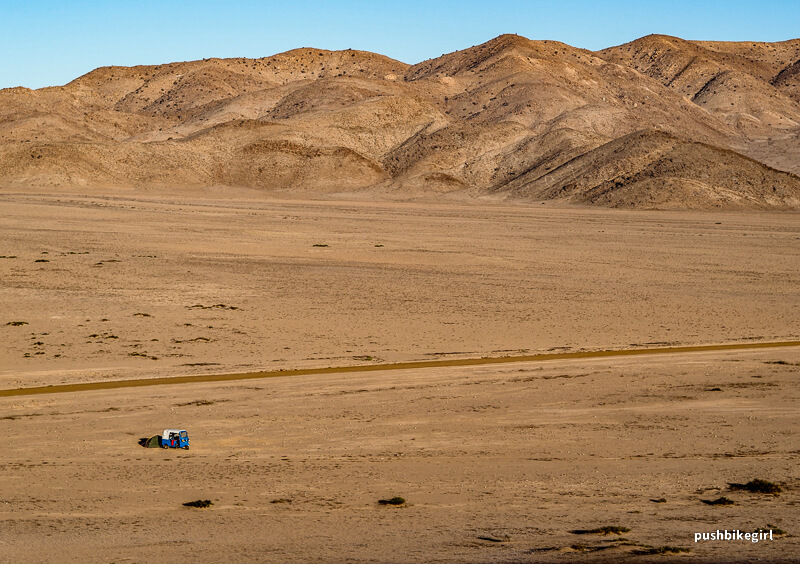
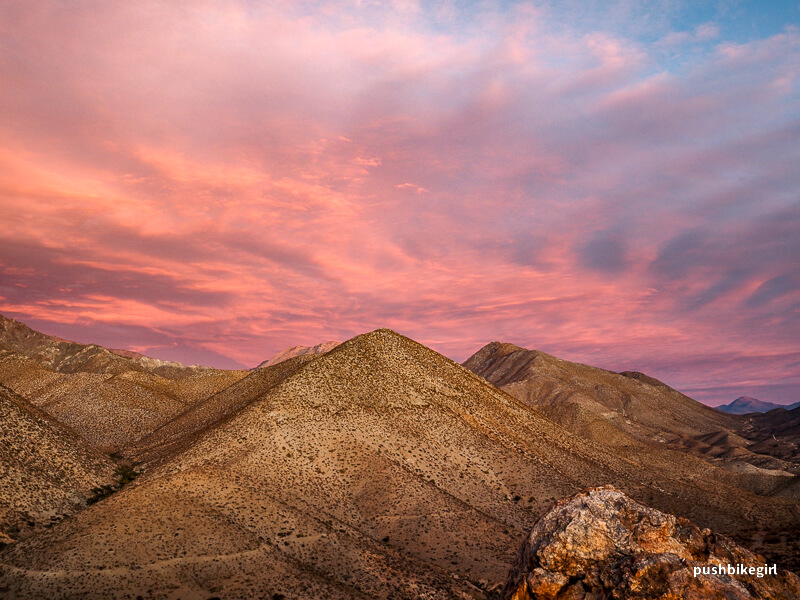
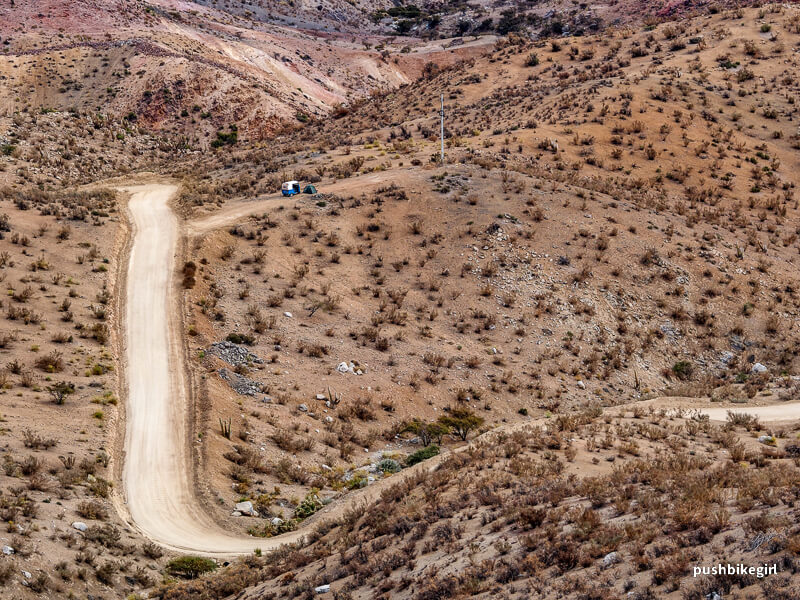
It’s also great for Butch because he can keep his nose out and more intensively experience everything. He can also shift on the back seat from one side to the other to get out of the sun to stay comfortable.
Of course, we need much longer for everything. Sometimes we are slower than a bicycle, but I don’t care. After all, we have time.
With the Tuk-Tuk, we are reasonably protected from the wind, and I don’t have to wear any special gear like I did on a motorcycle.
It also has disadvantages because everything is open. On the one hand, super, on the other hand, I always have to take care when I go shopping that my Tuk-Tuk is parked so that no one can help themselves to our gear stacked in it. I also don’t want someone walking away with Mister Friendly (Butch} if he has to wait behind.
We are getting 200 km with a full tank of fuel, and we have two extra gas canisters on board, so we can drive a total of 1000 km without having to rely on a gas station. In addition, I can carry 40 l of water.
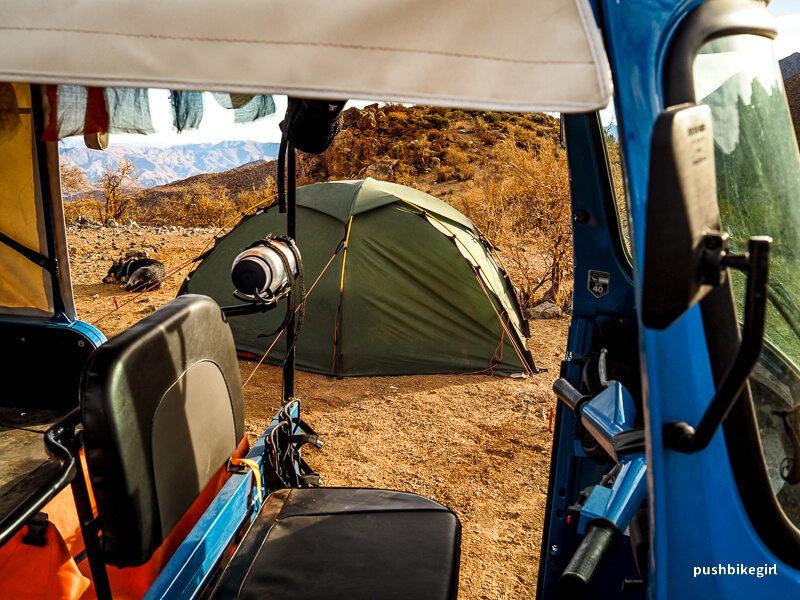
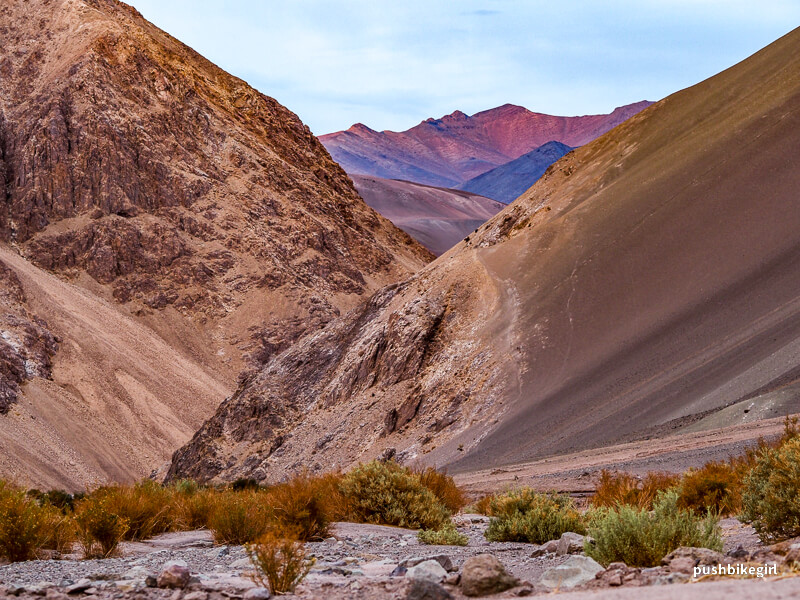
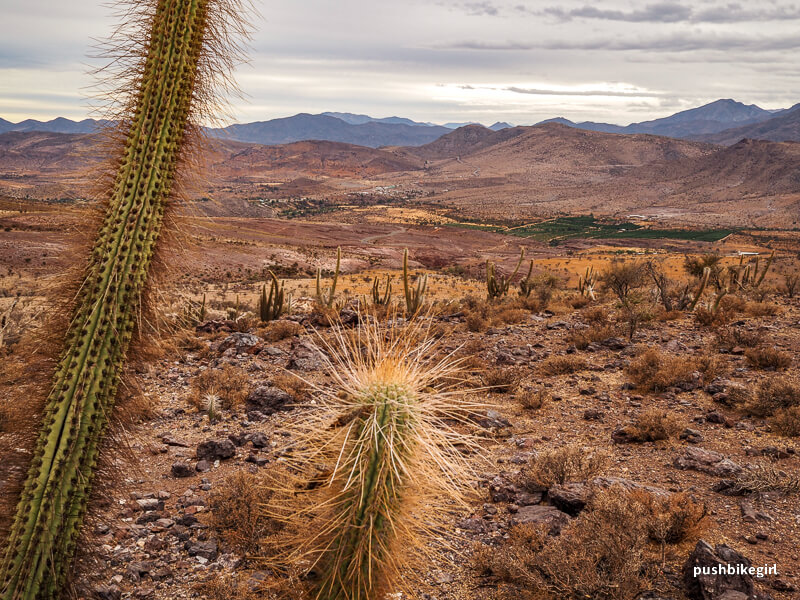
Once we are in cheaper areas, I would like to install a bed that I can fold away during the day. Doors would be excellent also if it rains at some point, which it hasn’t for months.
Sherpa, the hostel owner, gave me more tips on where to go. Among them was an ancient, disused mine tunnel. We straddled the railroad-style tracks for the oar carts that were still in place, and I wondered if we would ever get out of there—an exciting thriller with the Tuk-Tuk easy peasy with a bicycle.
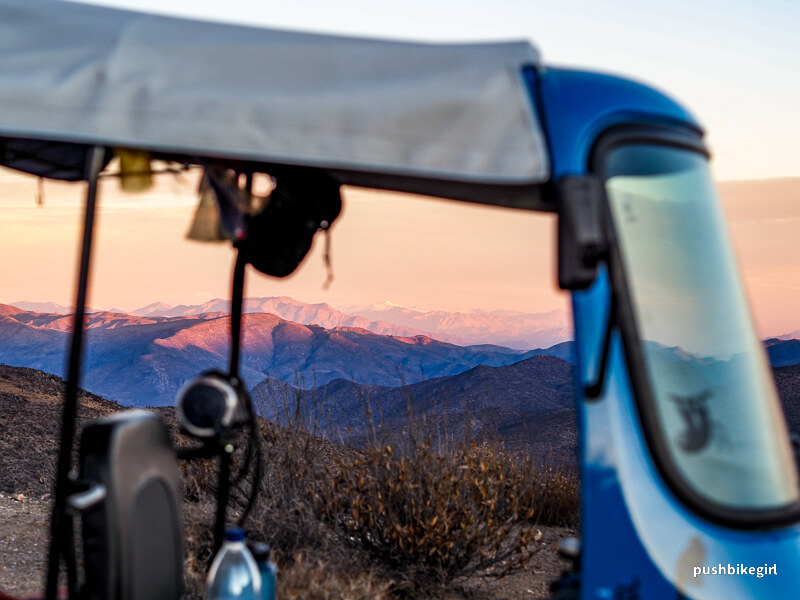
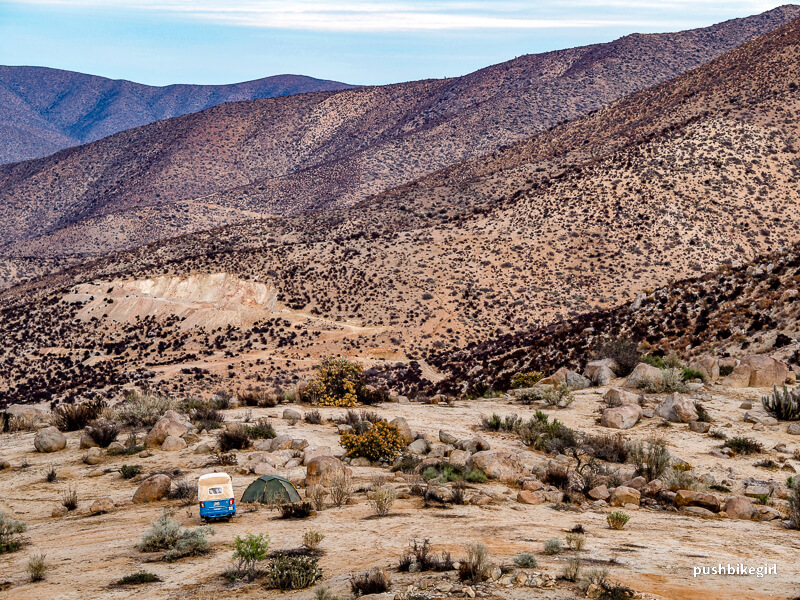
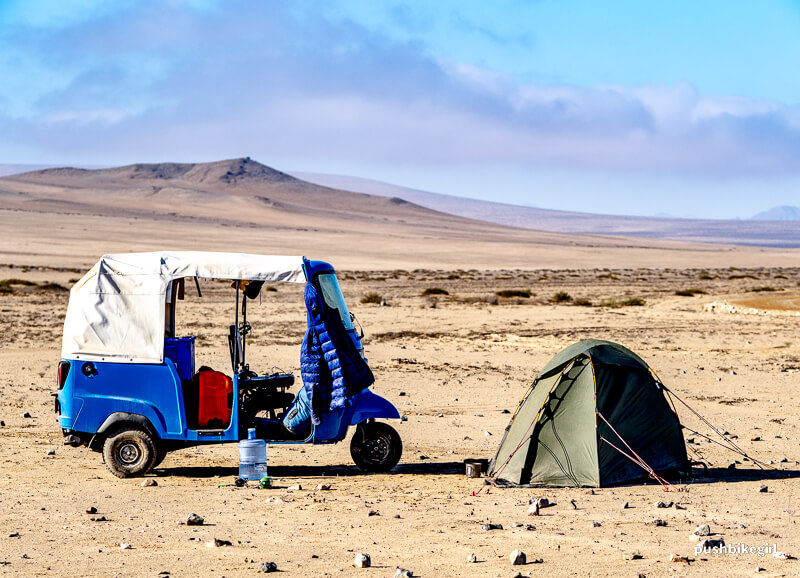
A pre-inspection of the route is always advisable so I know what’s coming up and which way to go so we don’t get stuck somewhere.
We overcame many small passes and eventually reached the Ruta Antakari—a pass between Rio Hurtado and the small town of Vicuña.
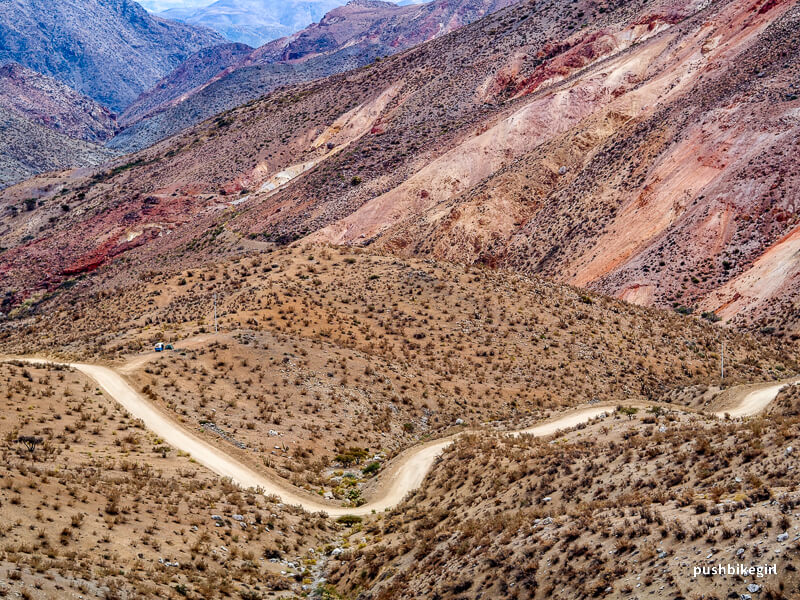
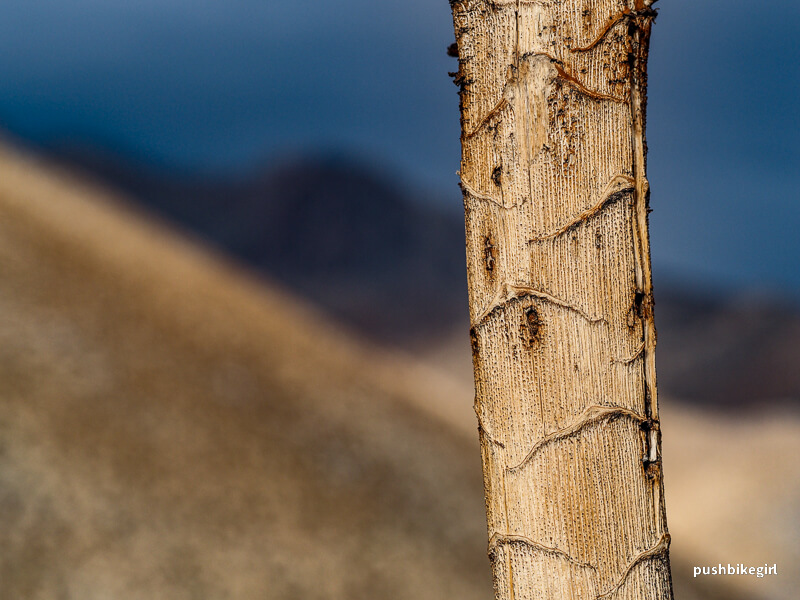
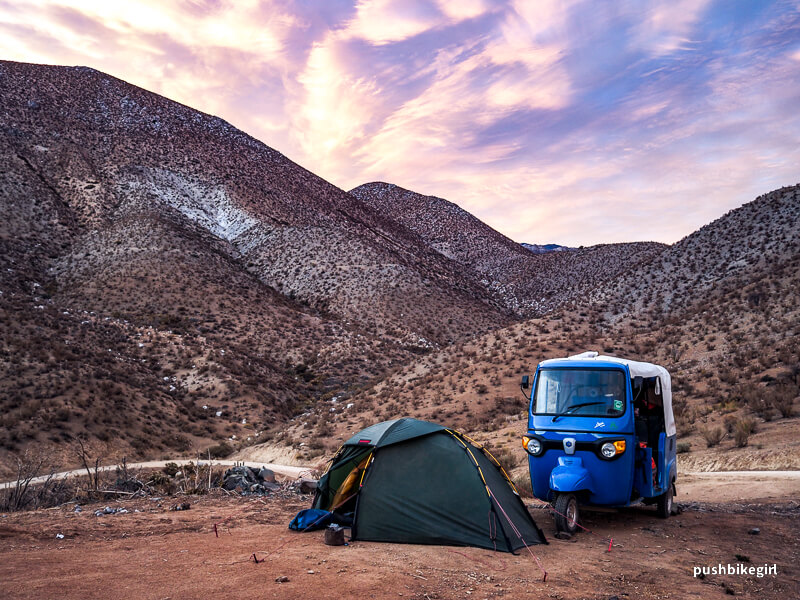
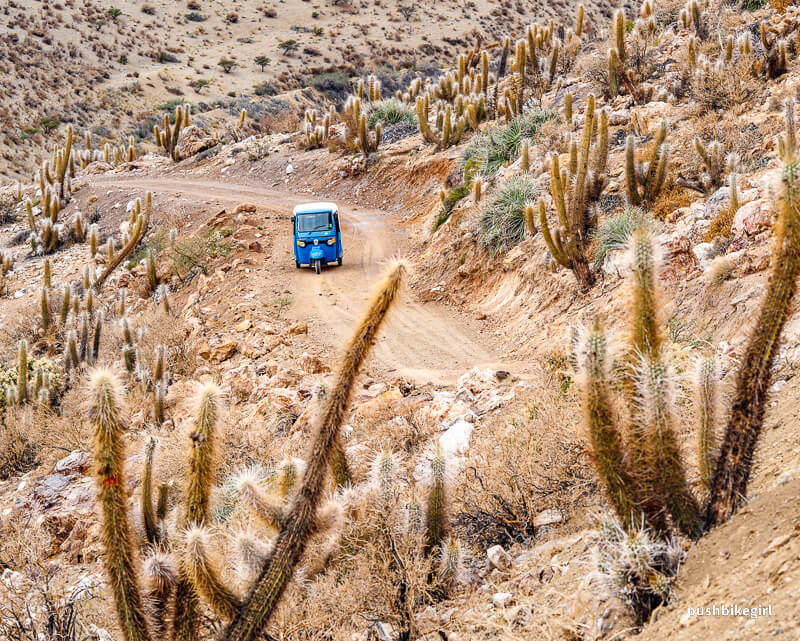
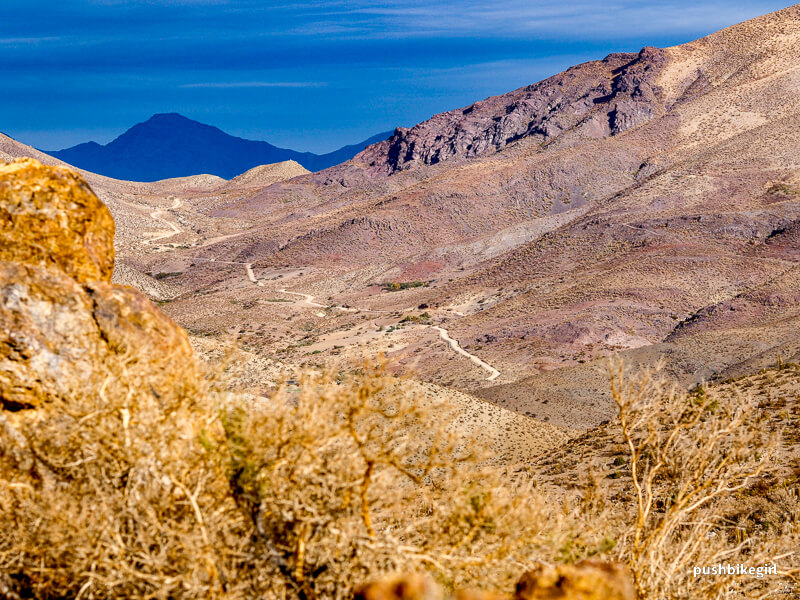
Oh, that was fantastic. The pass was already sensational, and I found one of my life’s most brilliant tent sites. A 360-degree view, and no matter in which direction I looked, there were either mountains or cacti. A splendid valley and lots of space. A dream, and as always, no one but us there.
My photographer’s heart beat especially fast at this pass.
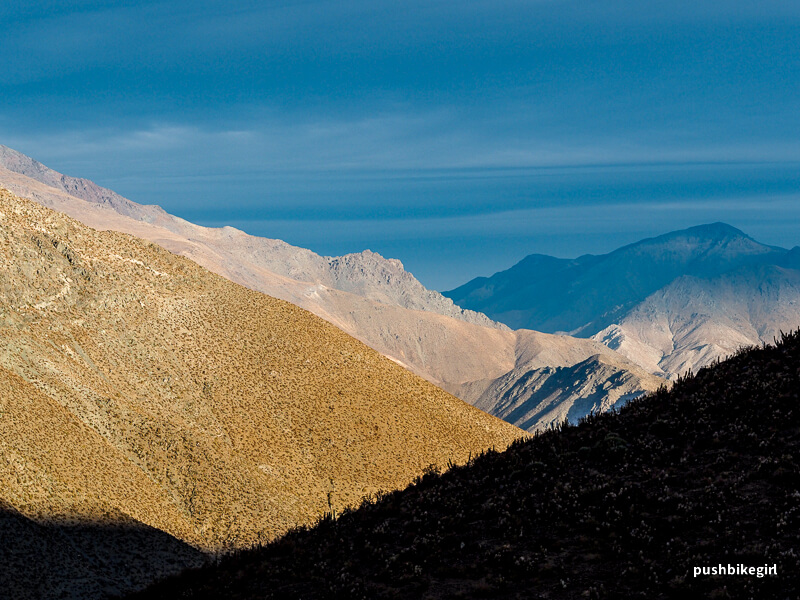
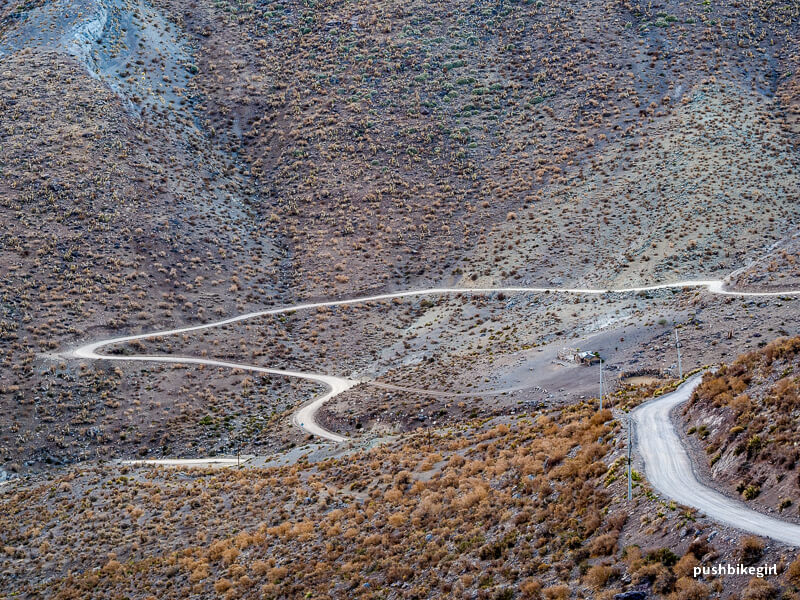
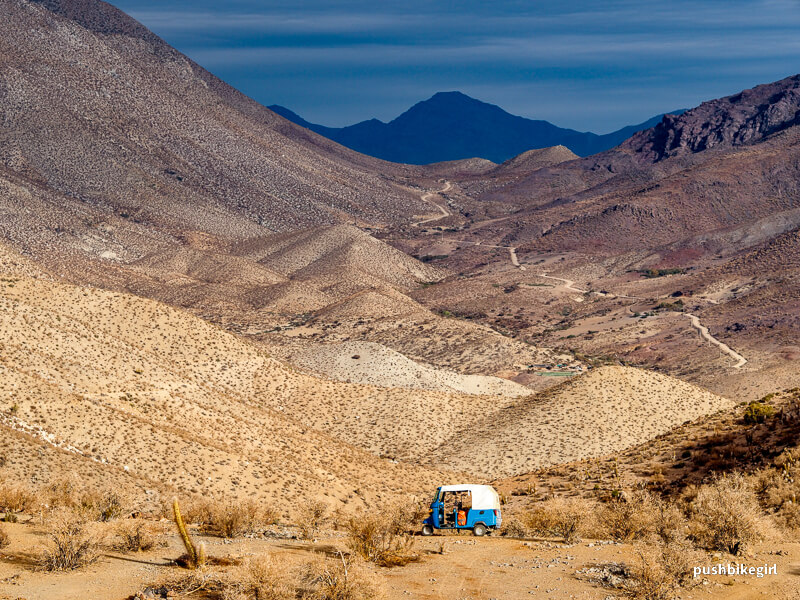
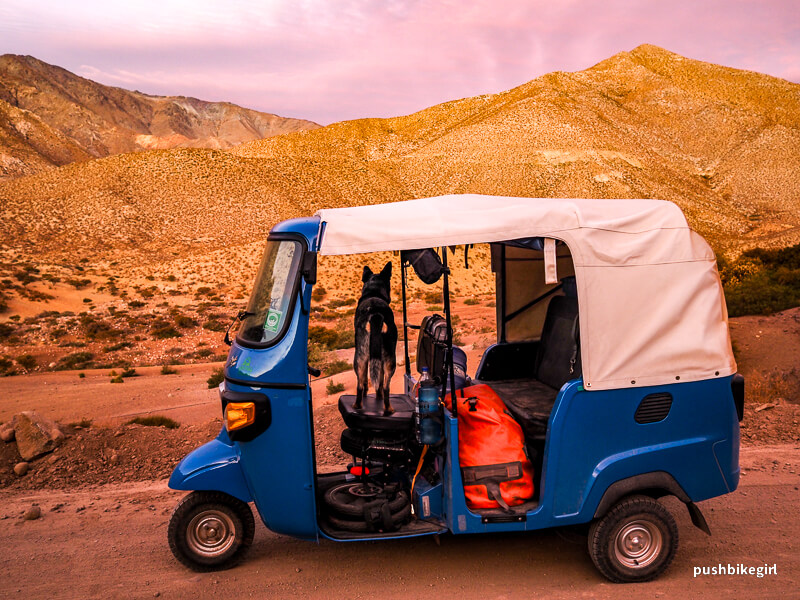
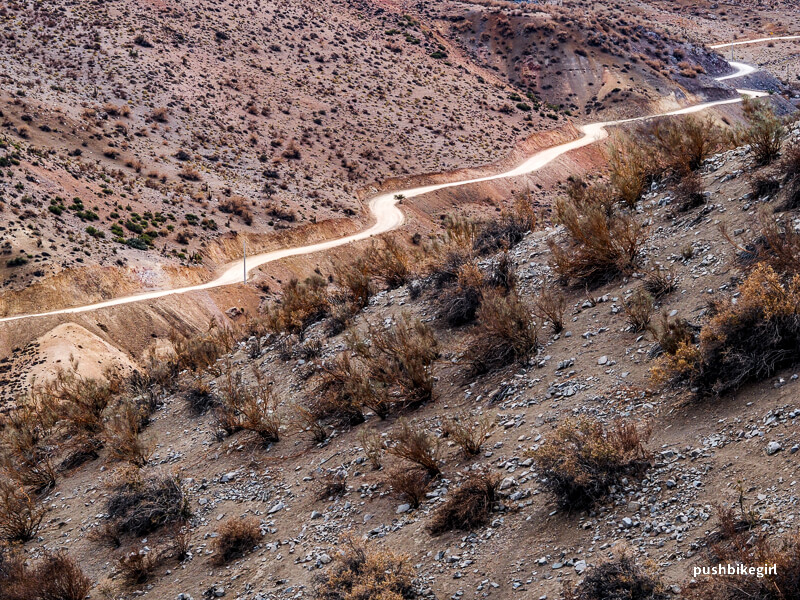
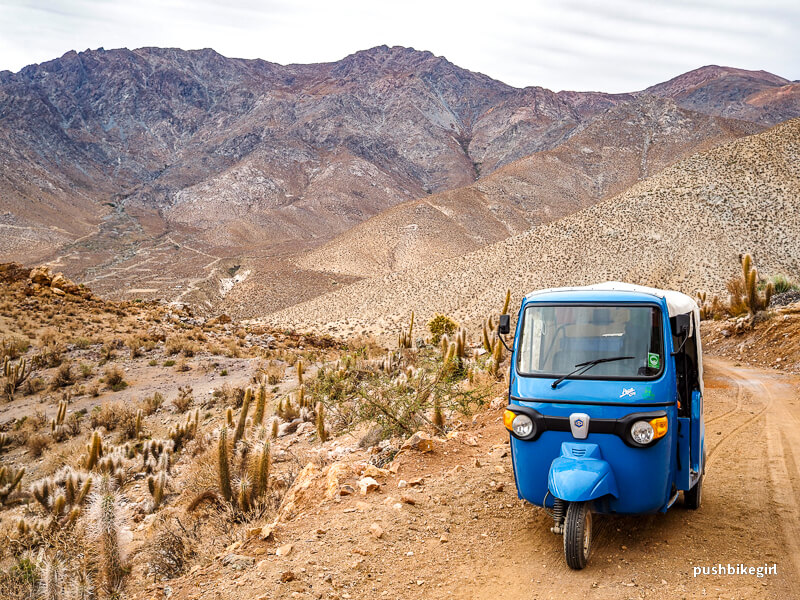
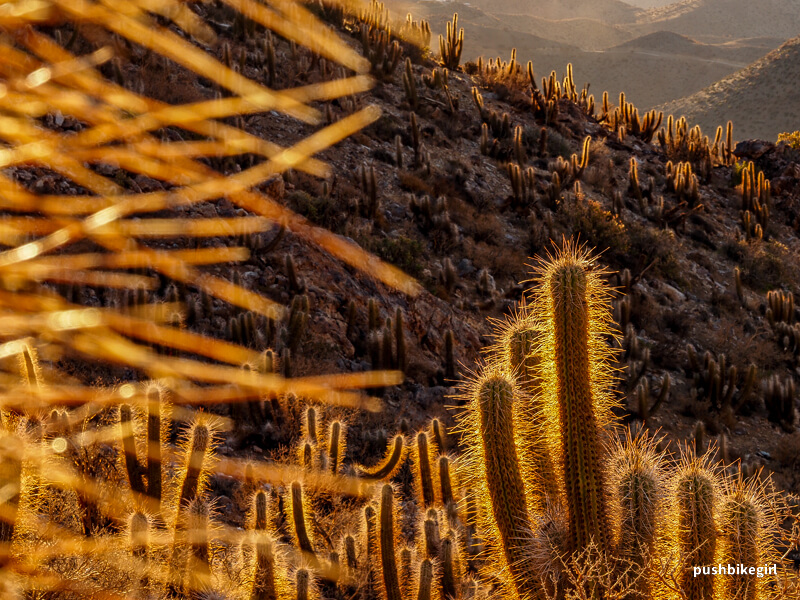
To my surprise, I came across several parrots in this absolute no man’s land—beautiful singing in the middle of the desert.
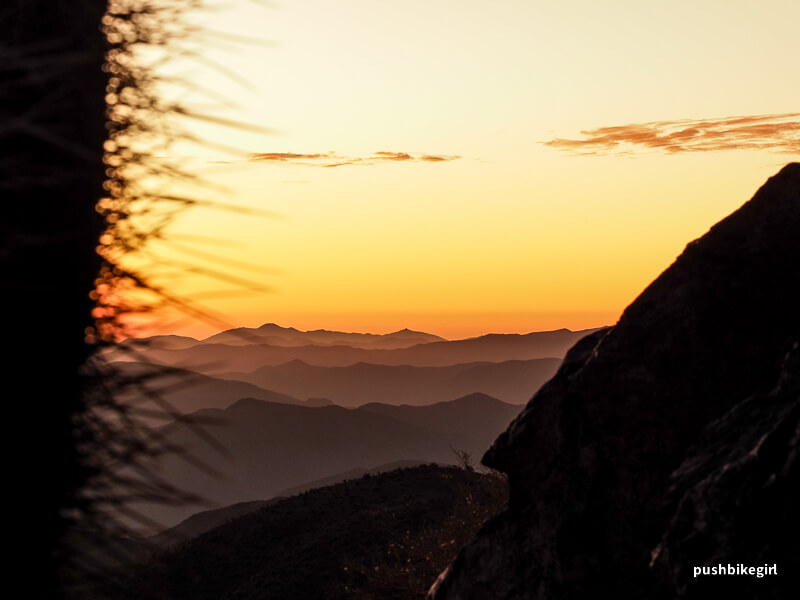
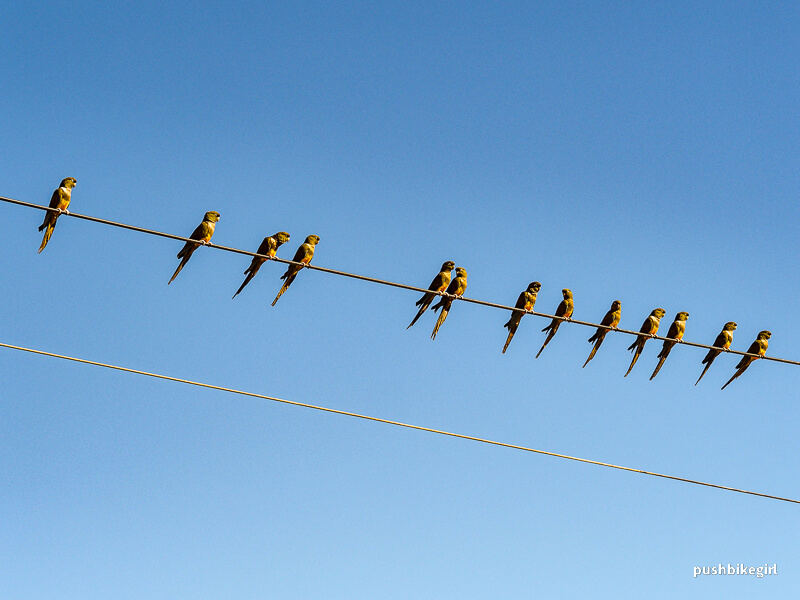
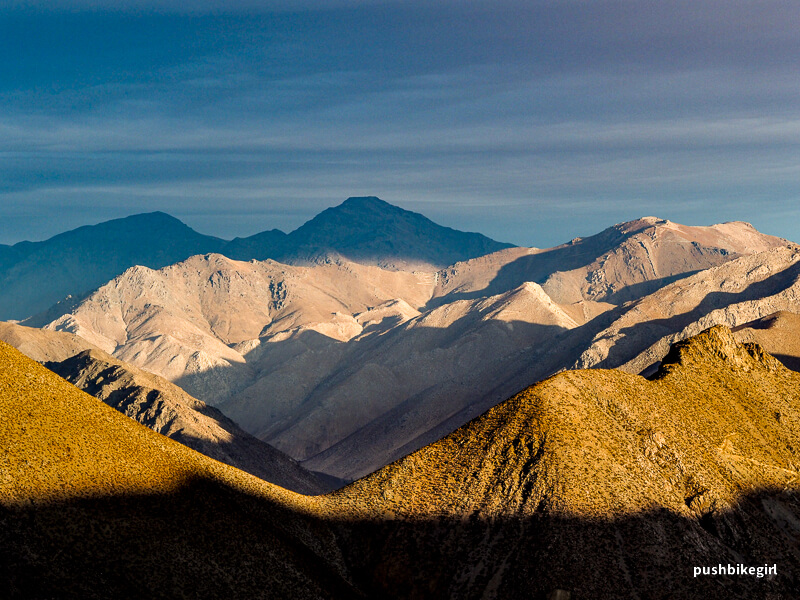
In Vicuña, we stayed in a hostel owned by a super nice Lebanese man who had emigrated to Chile. His employees were also all from outside Chile.
We chatted all evening, and his knowledge of world politics was impressive. His English was excellent because he had worked for the Yanks in Iraq for a while. Probably the most interesting evening I had in all of Chile.
I am always interested in world politics. Coming from the Middle East, I was very interested in his viewpoint. He also cooked Baba Ganoush and Hummus one evening, and I enjoyed two full plates. Super delicious.
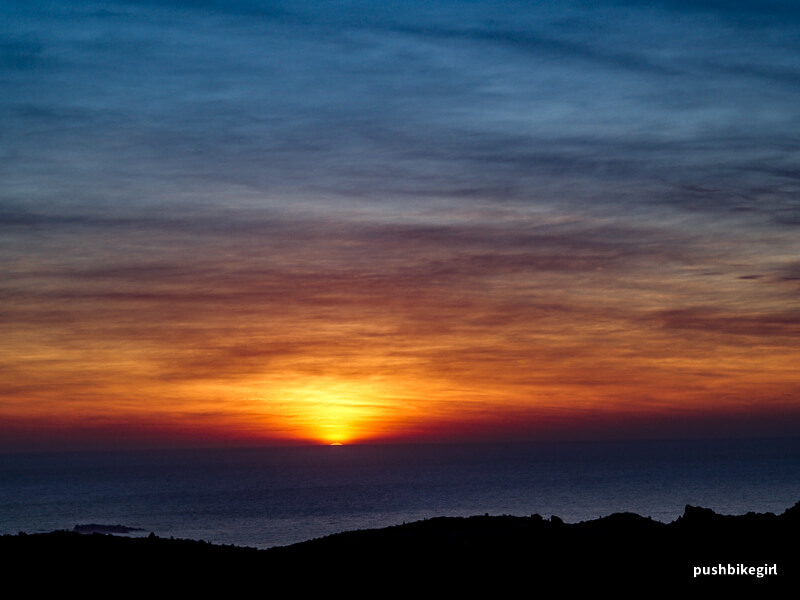
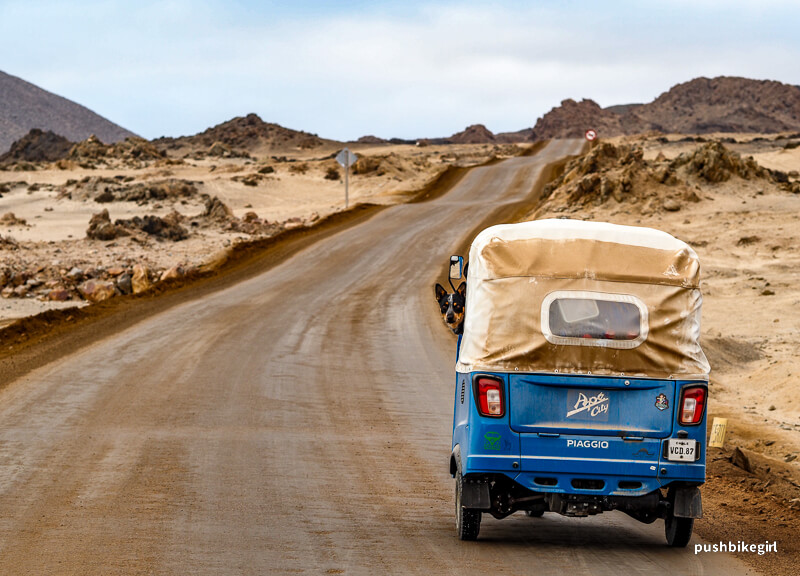
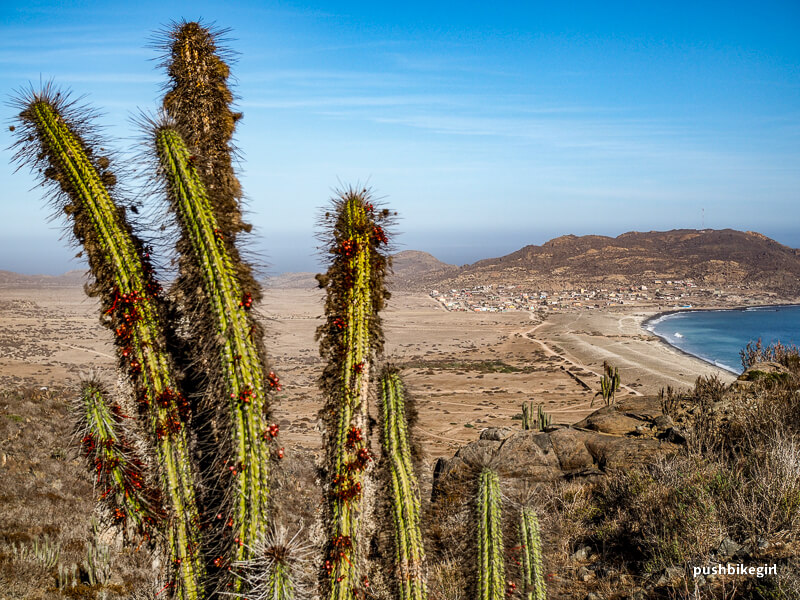
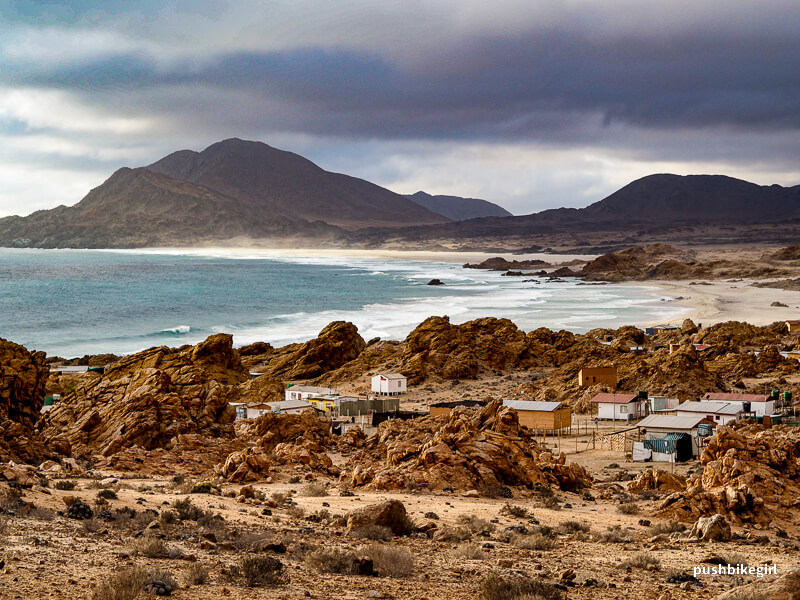
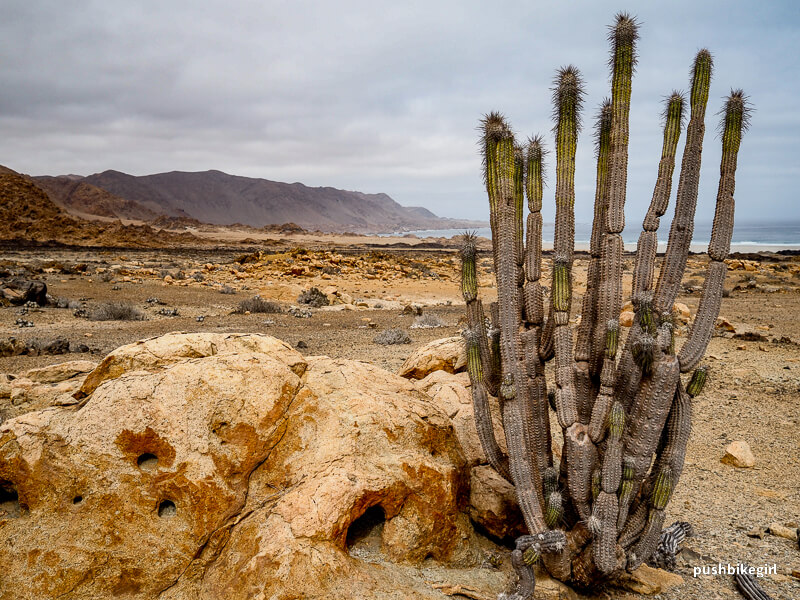
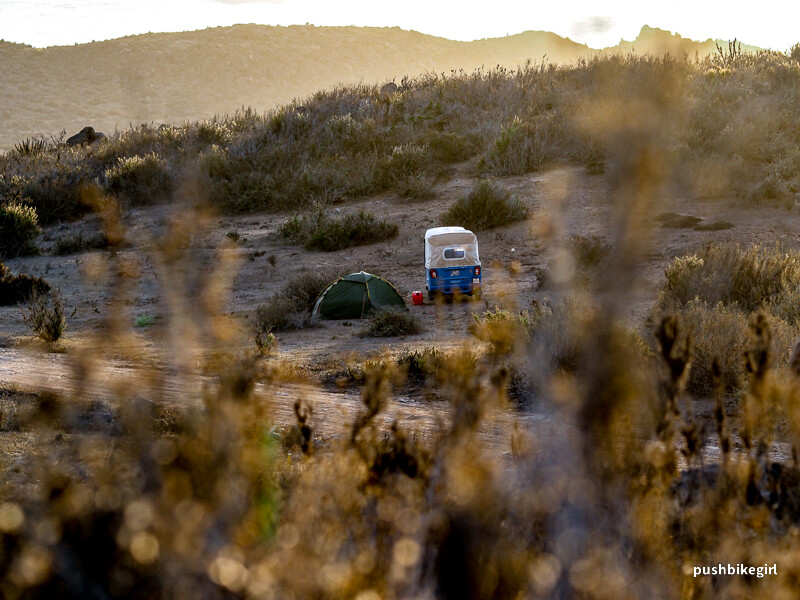

I switched from the beautiful mountains to the sea. Unfortunately, it was brutally windy, but the wind mostly disappeared shortly after sunset, and we could sleep peacefully.
Chile is vast and beautiful, with an impressive landscape that is constantly changing.
We were alone. Being alone for months on the road is something you have to like. However, I liked it much better than the months I spent stuck in Santiago, so I was still satisfied and happy.
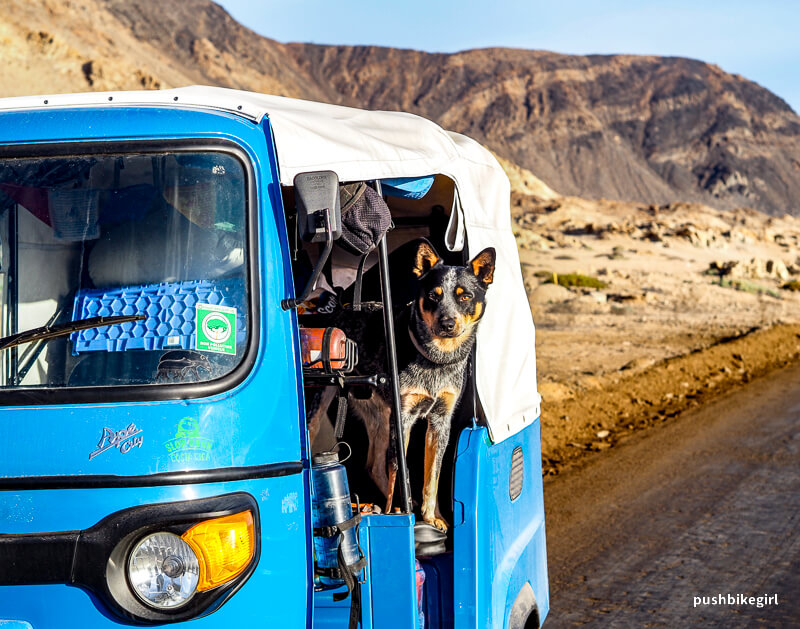
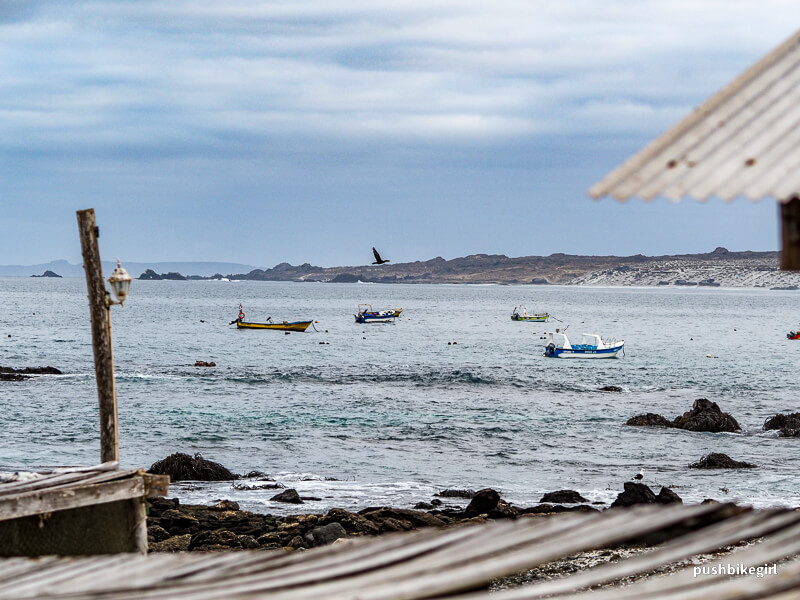
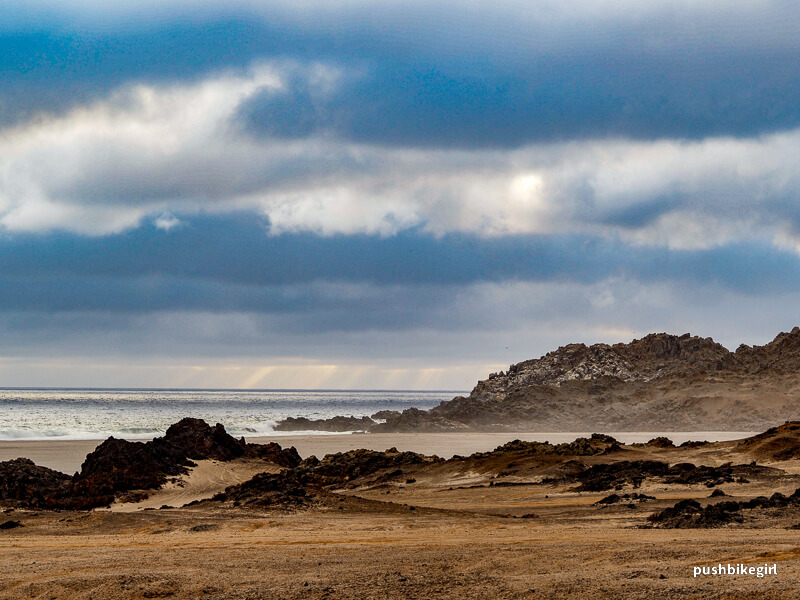
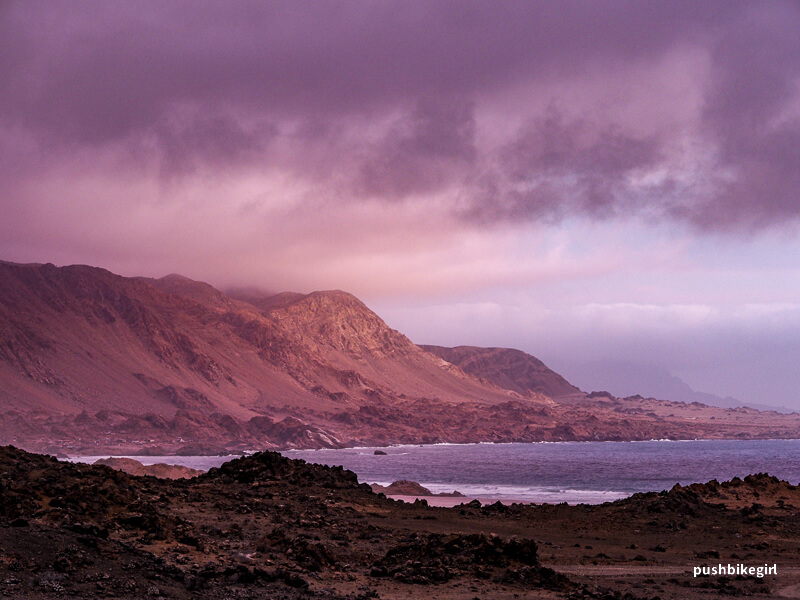
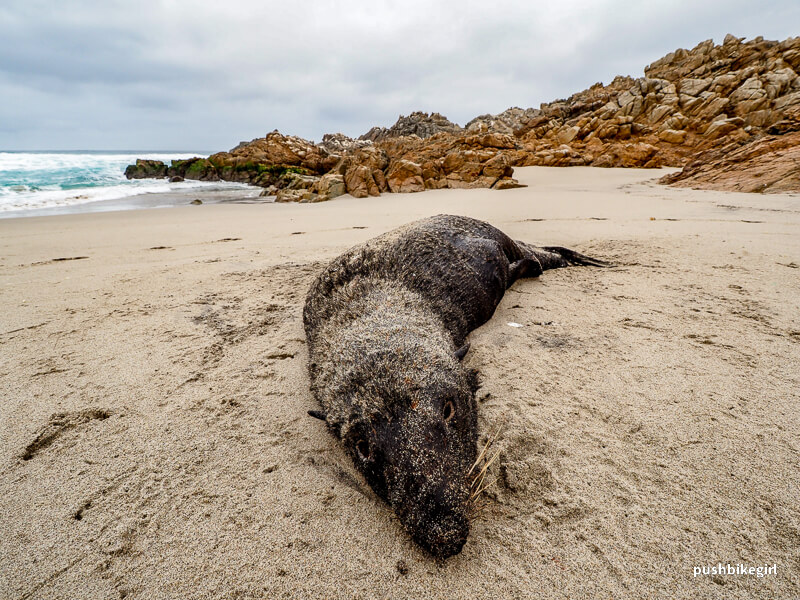
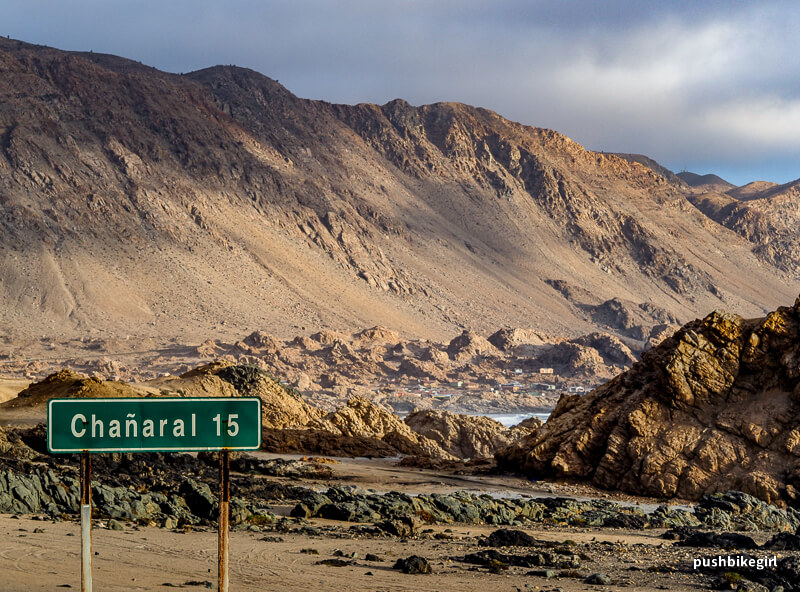
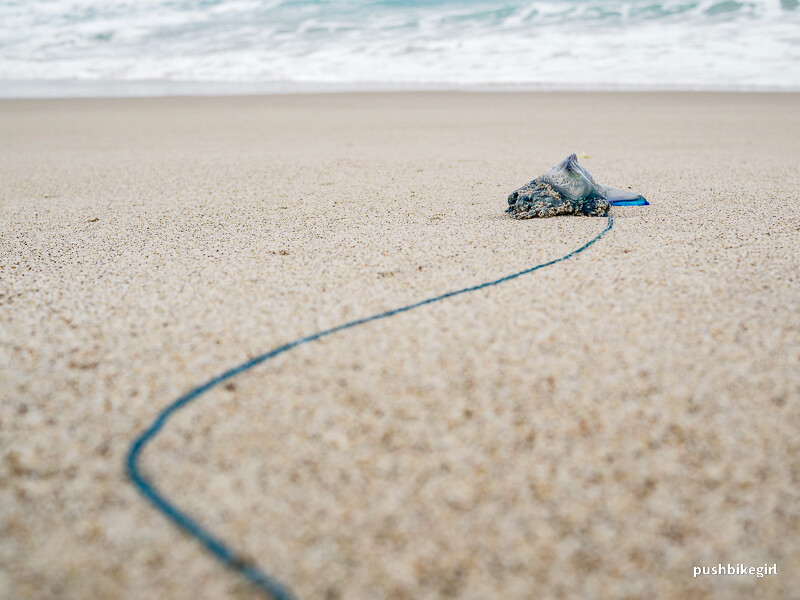
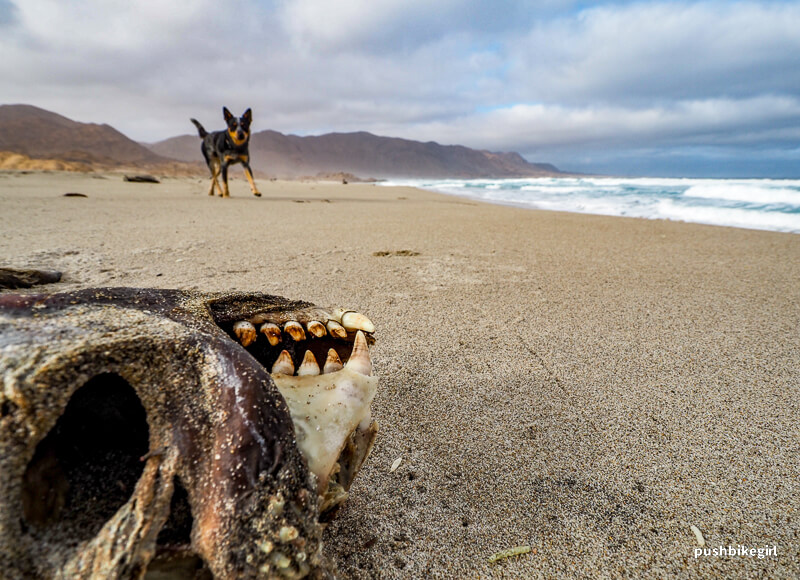
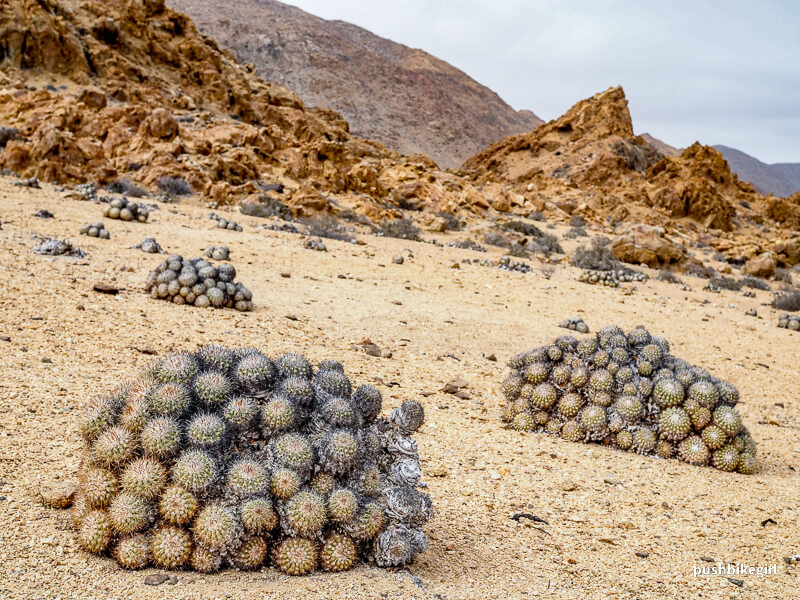
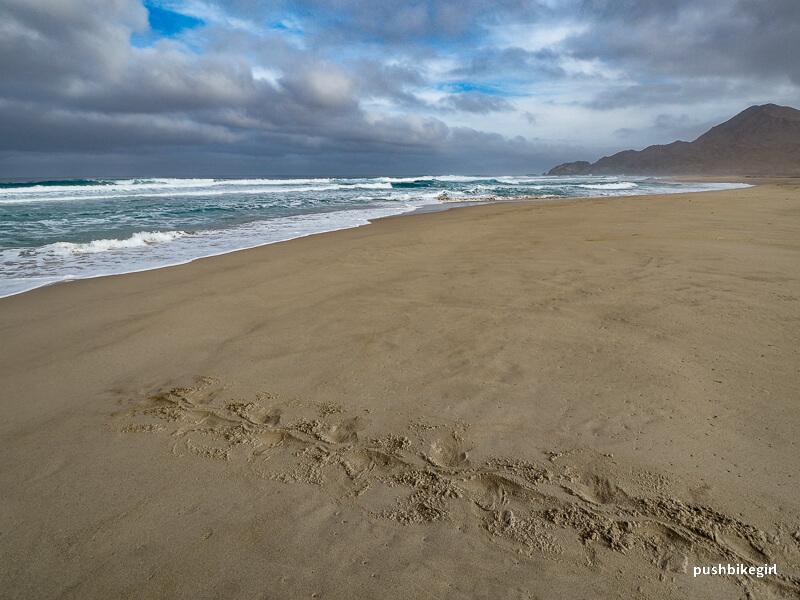
A man approached me on the street in Copiapo, a small town where I had to buy shoes. Completely surprised that someone wanted to talk to me, I looked at him, totally irritated, wondering what he wanted from me. “Are you from Australia,” he asked. We had a short chat on the street, and I was thrilled that someone was asking me something. Copiapo almost had a magical edge to it because people were so much more friendly after that.
They would suddenly say hello back when I was shopping in a store. Even a goodbye was no longer a rarity. So things were looking up, and these social exchanges did me a lot of good.
I like people and am always interested in them. Unfortunately, culturally there was little going on here. The houses all look the same fences, walls, and too many parked cars in front of them everywhere. Nothing pleasing to the eye.
When you shop, no matter how small the store, you have to pay at the cash register first before you get your products handed out from behind the counter. The cashier is never the one handing things out.
Every Chilean has a RUT – a number you must provide for almost any kind of transaction. I, too, had to get one from a notary, of course, to be able to buy the Tuk-Tuk. Having to provide my RUT number everywhere for so many different things made me feel exposed, watched, and even a little under the government’s control. I was asked to give it at the post office trying to send postcards.
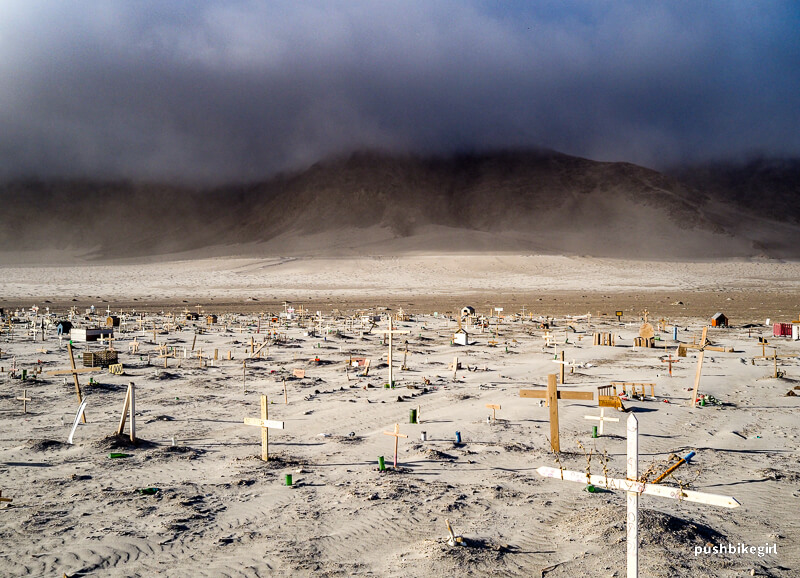
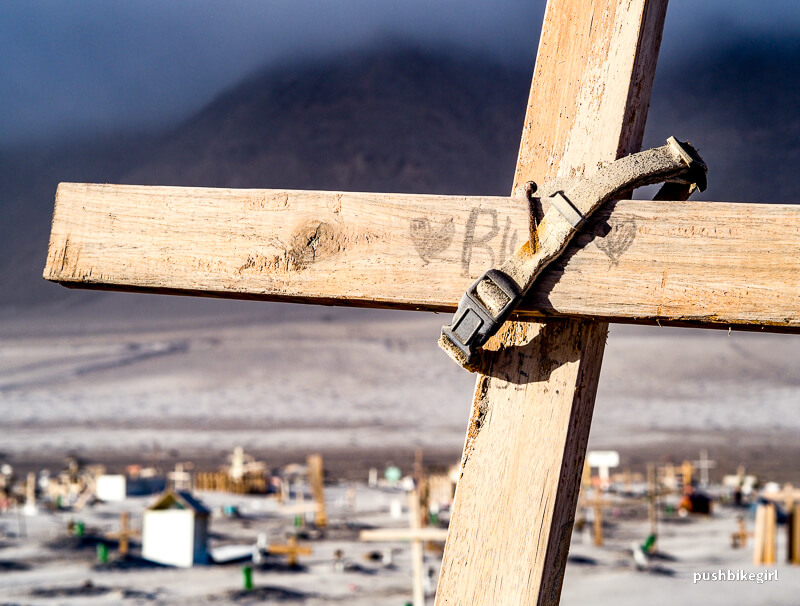
I passed several pet cemeteries. I must say I was very surprised. I don’t see dogs mistreated here often. On the contrary, people put food and water in front of their houses for the street dogs and sometimes even dog houses.
My surprise stems from not seeing anyone taking their dog for walks or playing with them; they seem only kept as guard dogs, not companions. Nevertheless, there are pet cemeteries.
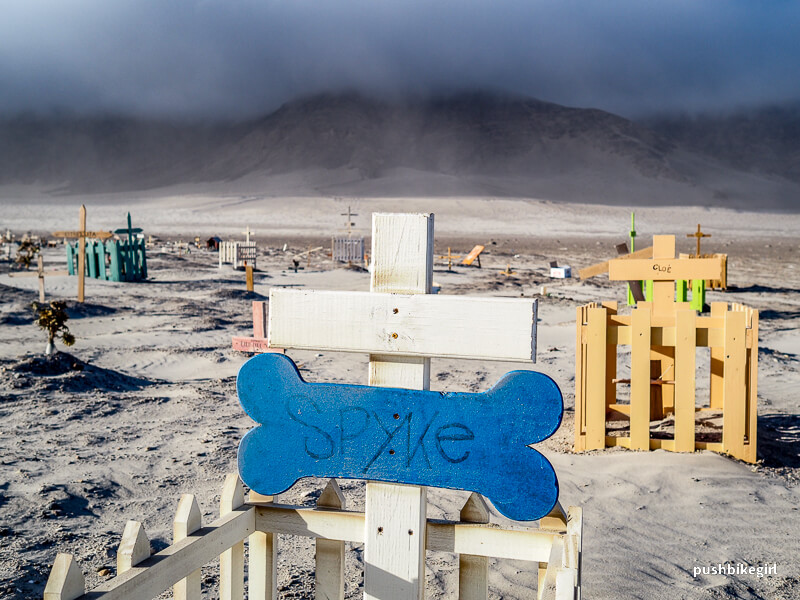
The Pacific Ocean was beautiful. Rocks and birds combined with cacti and lots of winding roads. Hardly any traffic and great camping opportunities.
Gorgeous.
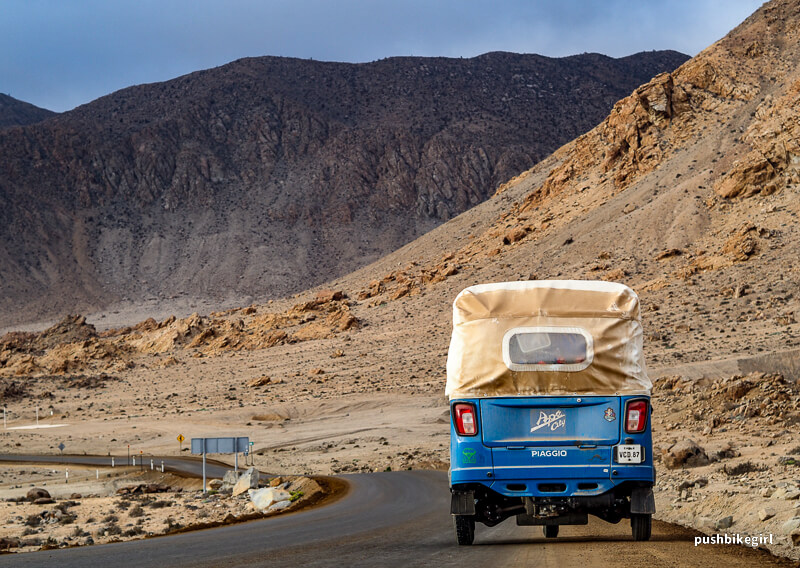
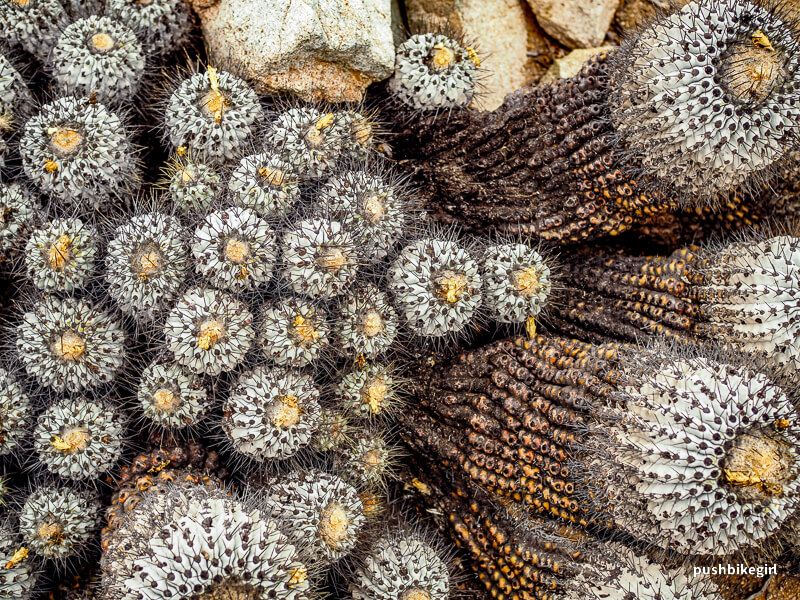
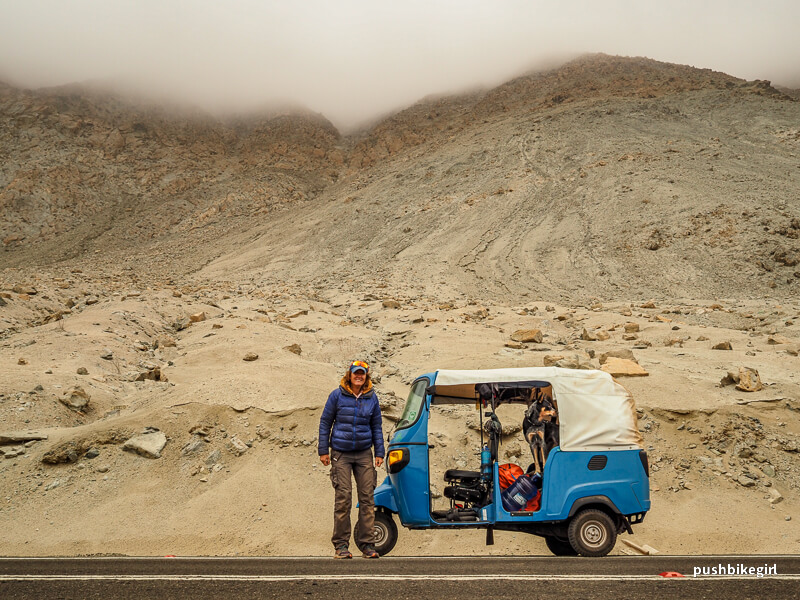
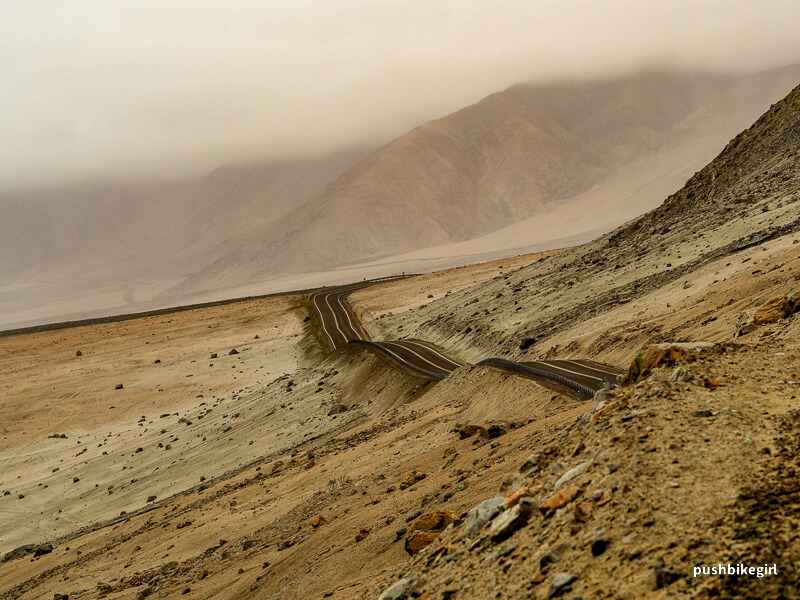
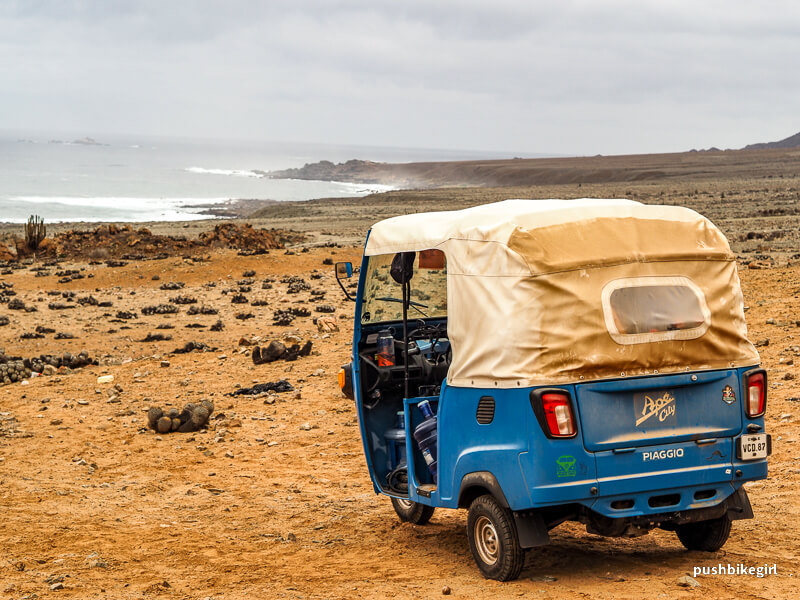
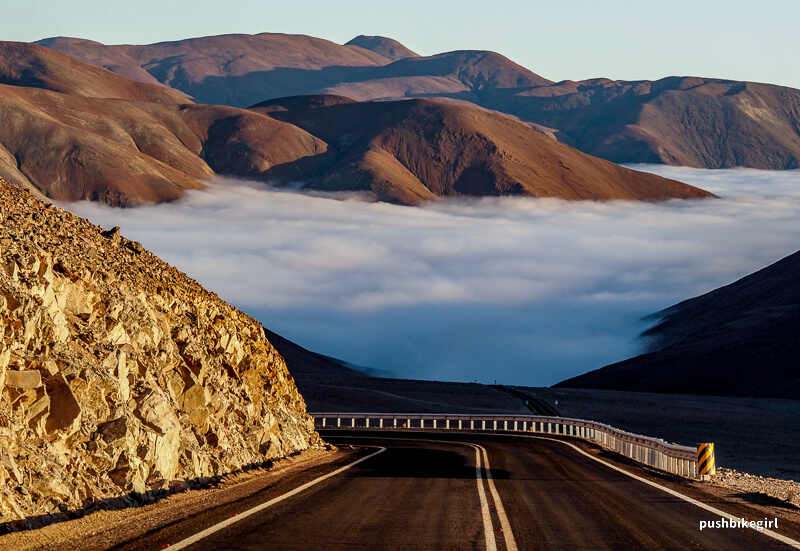
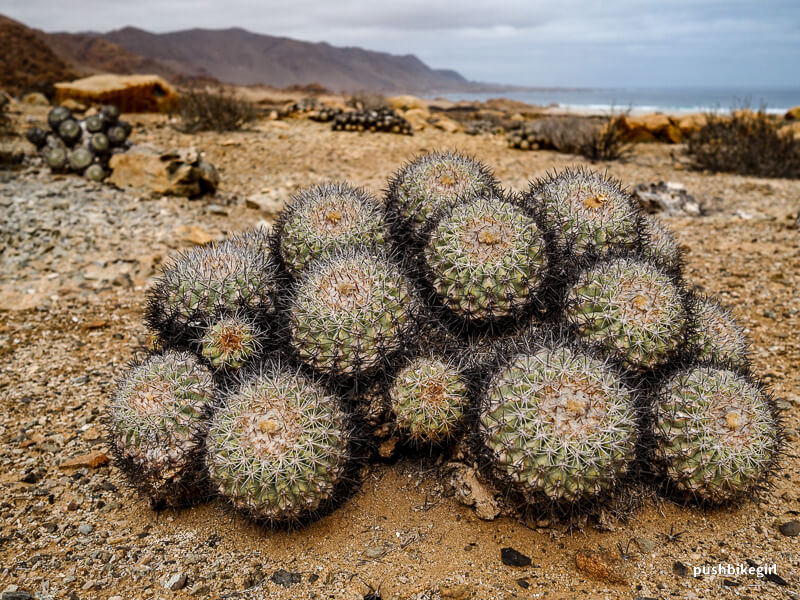
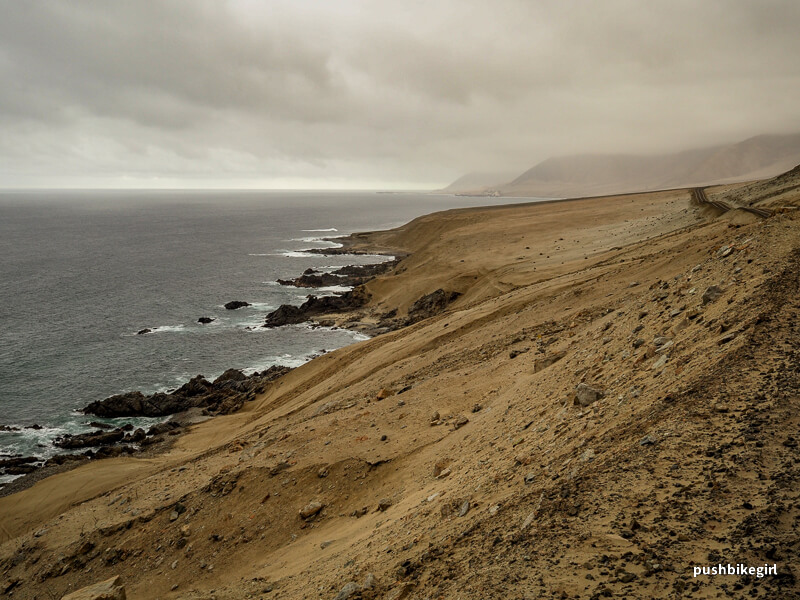
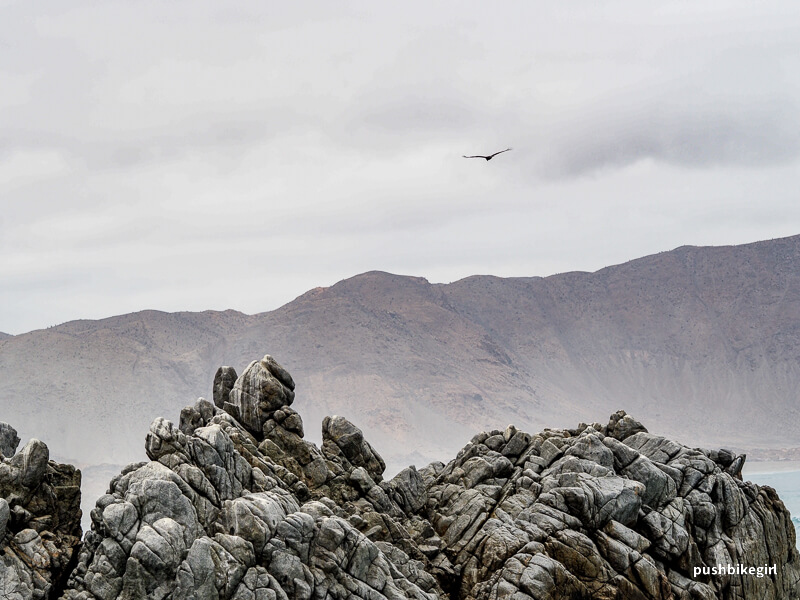
The wind was often cold. Camping anywhere near the beach meant it was often damp, and we woke up in a soaking wet tent with water dripping from the ceiling. The Tuk-Tuk, of course, would also be soaked.
Tourists I met none. Too bad, I wondered where all the cyclists were—the Vanlifer or car tourists. From time to time, it’s nice to have someone to talk with.
So I downloaded one podcast after the other I also listened to audiobooks or called friends. We often spent several nights in one place to enjoy it.
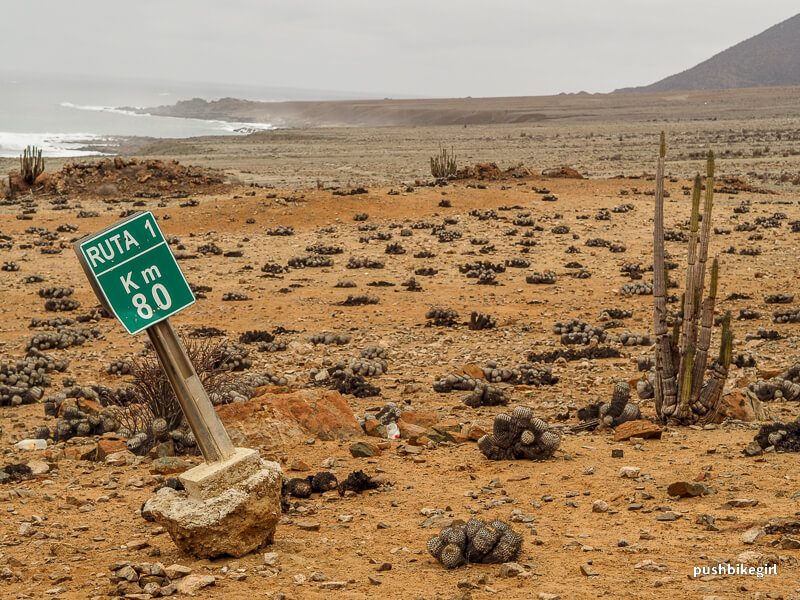
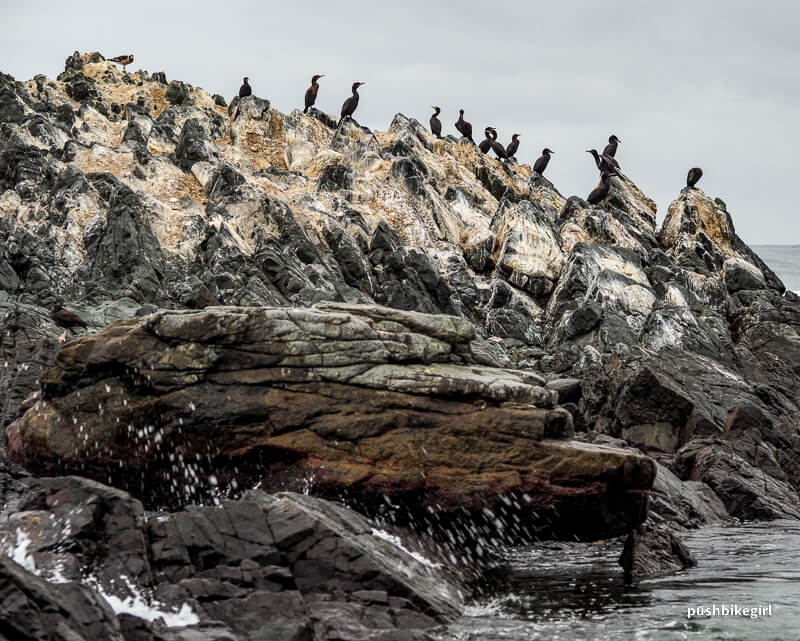
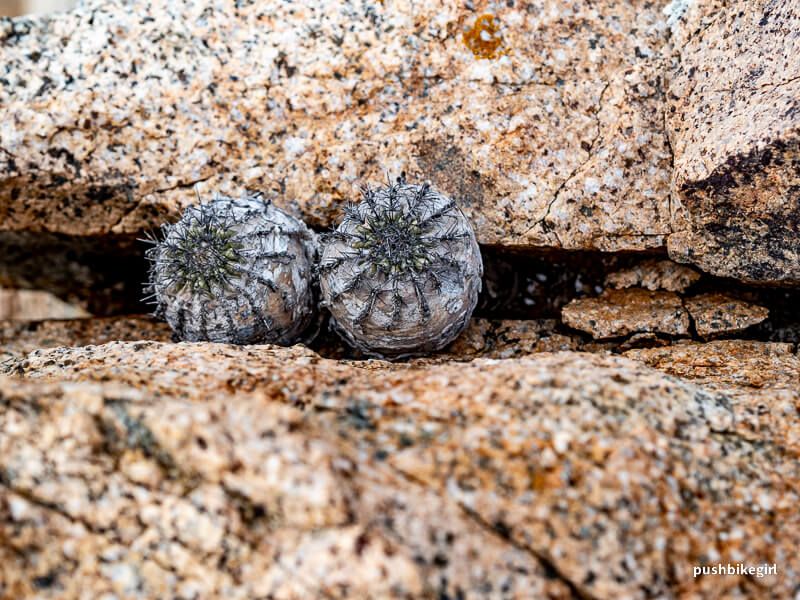
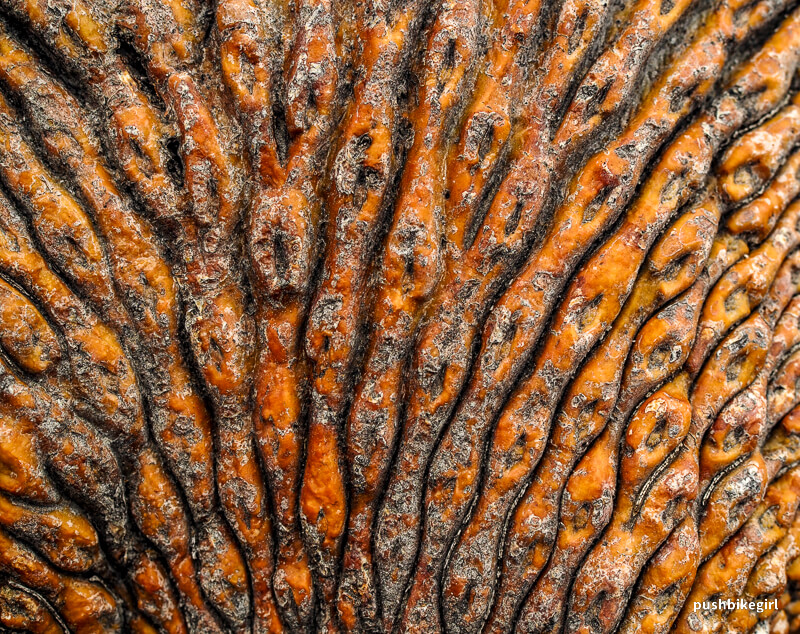
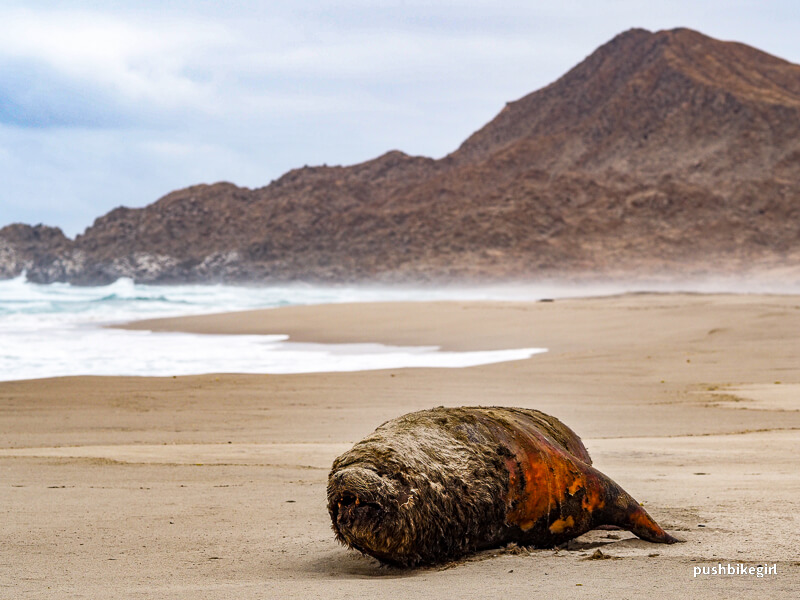
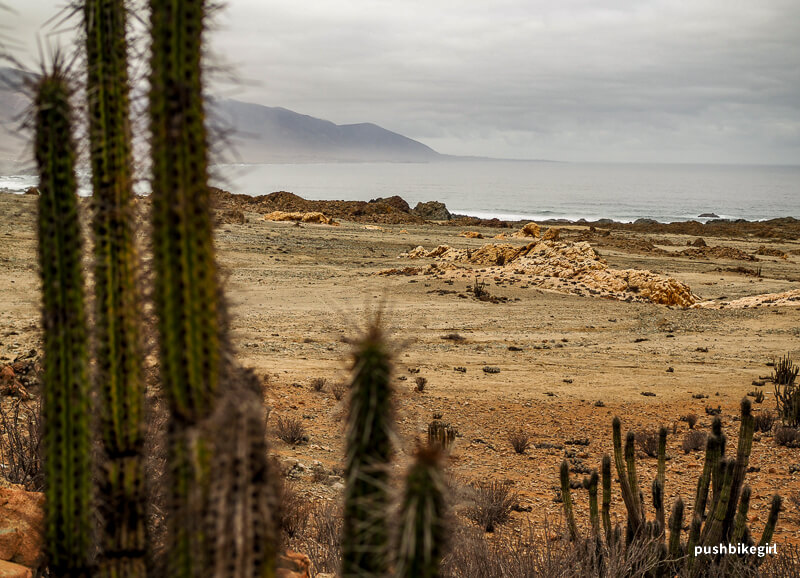
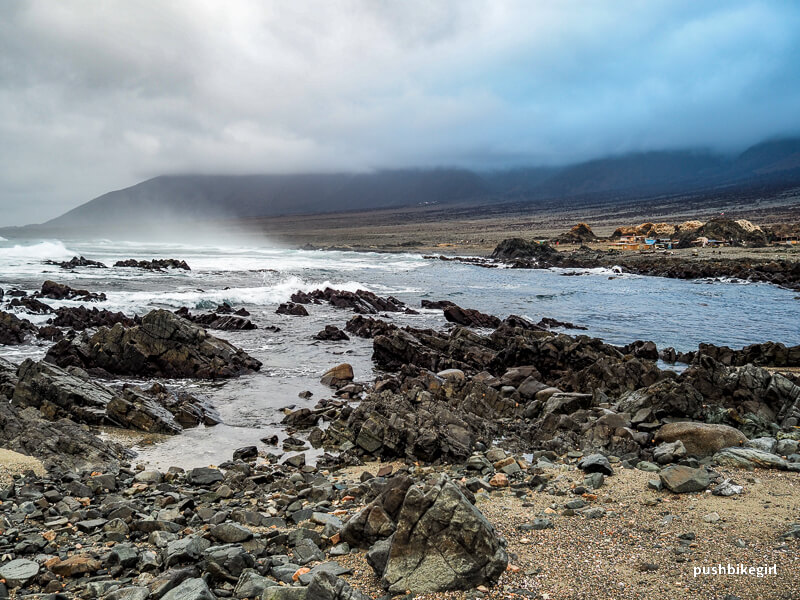
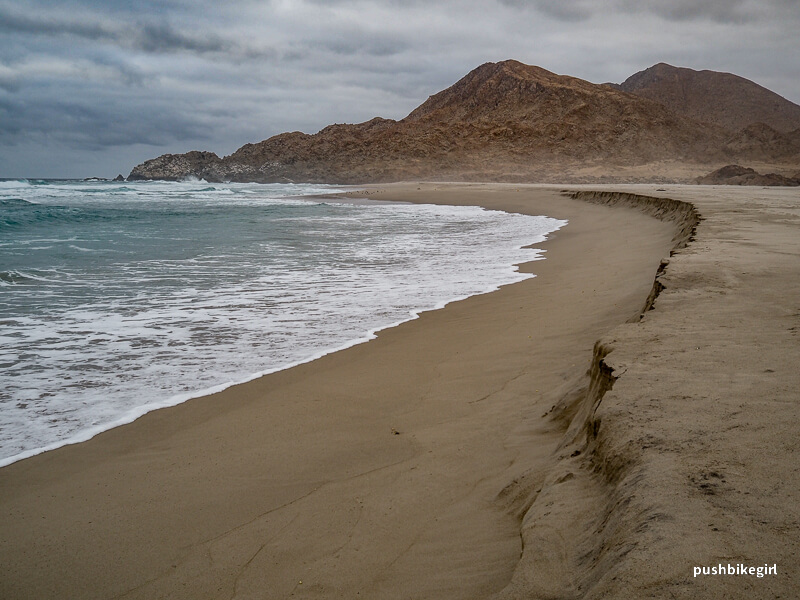
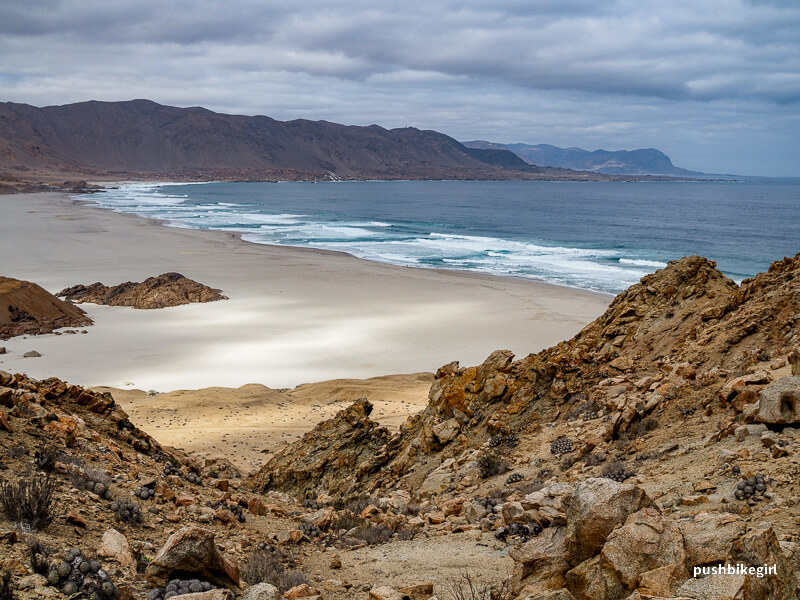
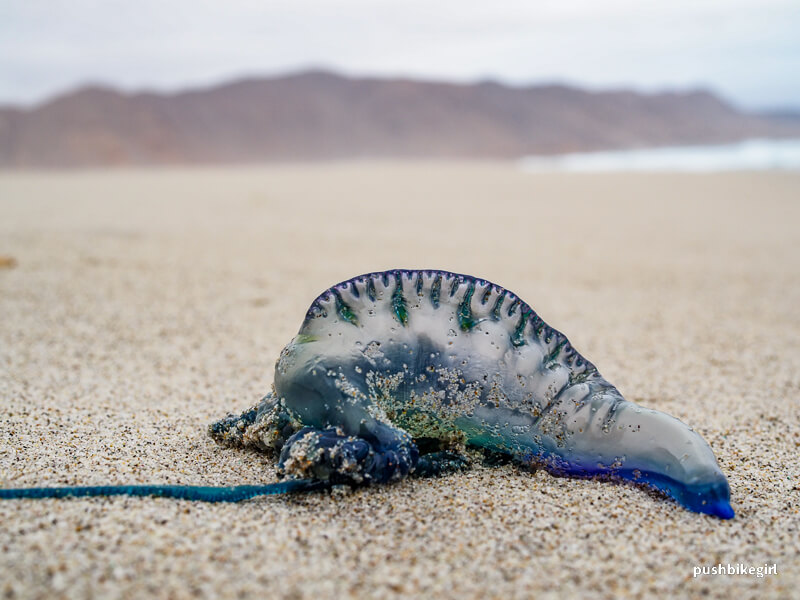
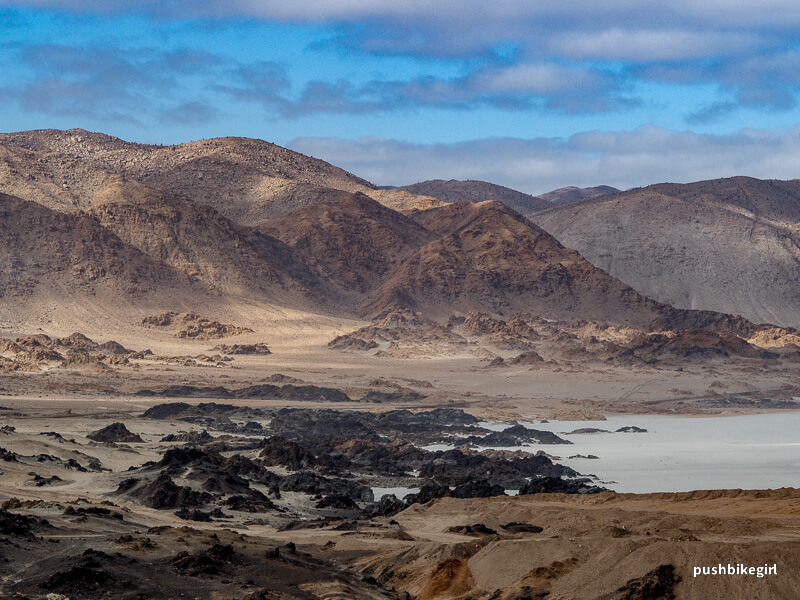
There are mines without end in Chile. The whole country seems to work at the mines. If a road goes towards the mountains, you can almost assume an abandoned or operating mine is at the end of the road. The wealth of the country comes from the ground.
Sadly, trash can be seen too, at scenic lookouts, tent sites, or fluttering in the wind. Sometimes they dispose of the whole household at once and throw it down the cliff.
We reached Antofagasta, and I needed to decide how to continue from there. Do we want to go to Peru? Regrettably, I repeatedly heard you can not cross the border with a vehicle bought as a tourist in Chile.
So I decided on Argentina because I had to leave the country soon. After all, my visa extension was expiring. I had not received confirmation that I had officially extended the visa online almost three months prior.
I also didn’t have the necessary vehicle documents at that point, despite having purchased the Tuk-Tuk two months ago. So I wondered if I might get into trouble at the border. Chileans are slow – very slow. A yes, sure, I’ll do it right away, but the issues drag on for weeks. In the long run, I couldn’t endure this country.
Asking a second question also seems to be one question too many; people react annoyed when I don’t immediately understand what they are saying to me.
No matter; we drove east toward Altiplano, taking us to higher altitudes. I wanted to take it slow because I am always susceptible to high altitudes and can develop problems quickly, and I didn’t know how Butch would react to high altitudes.

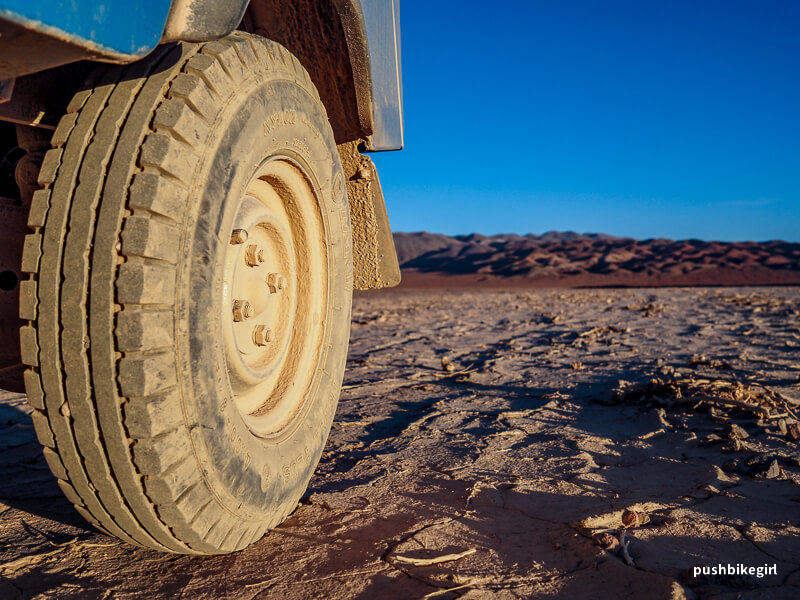
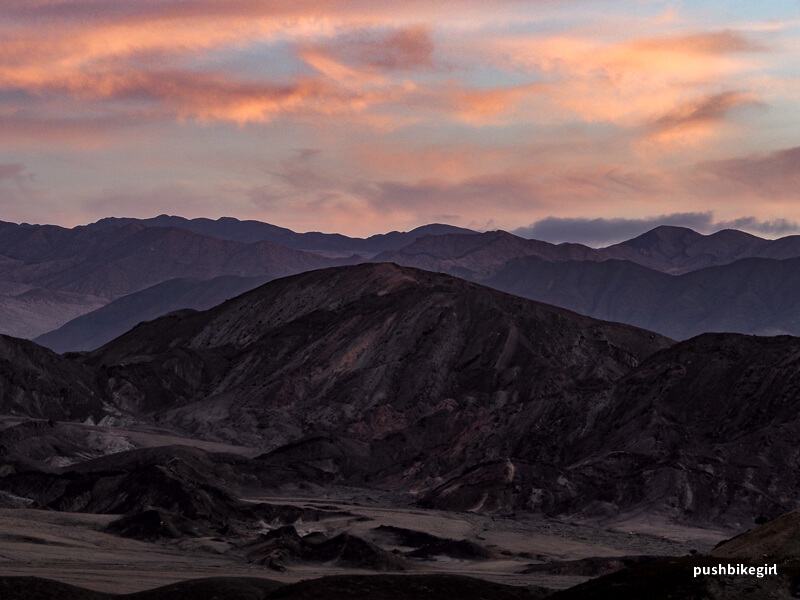
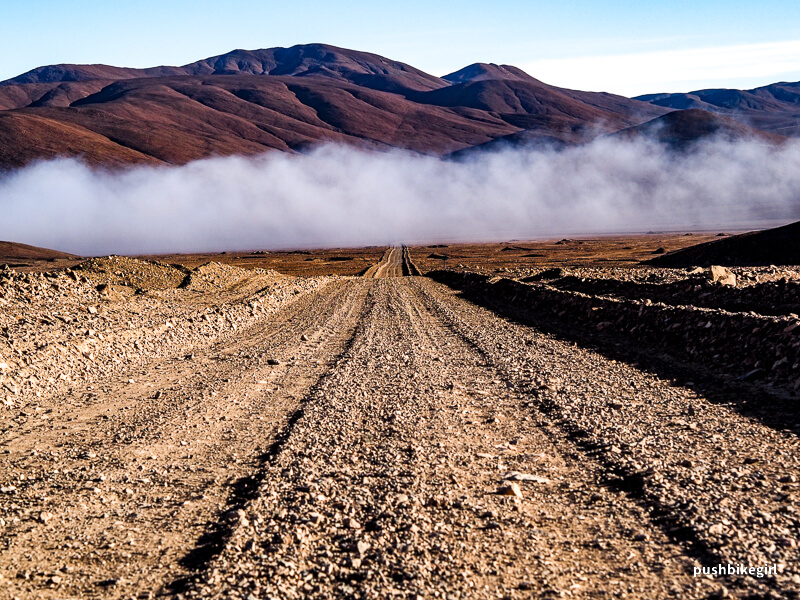
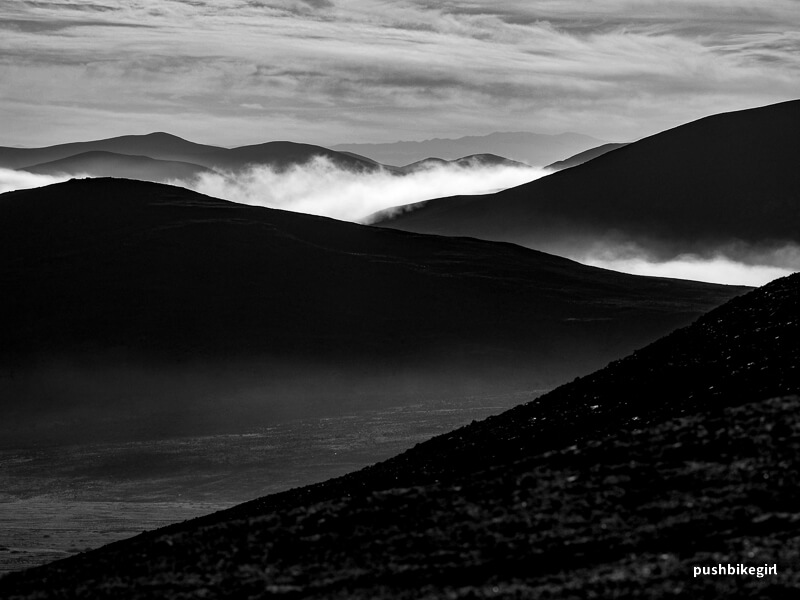
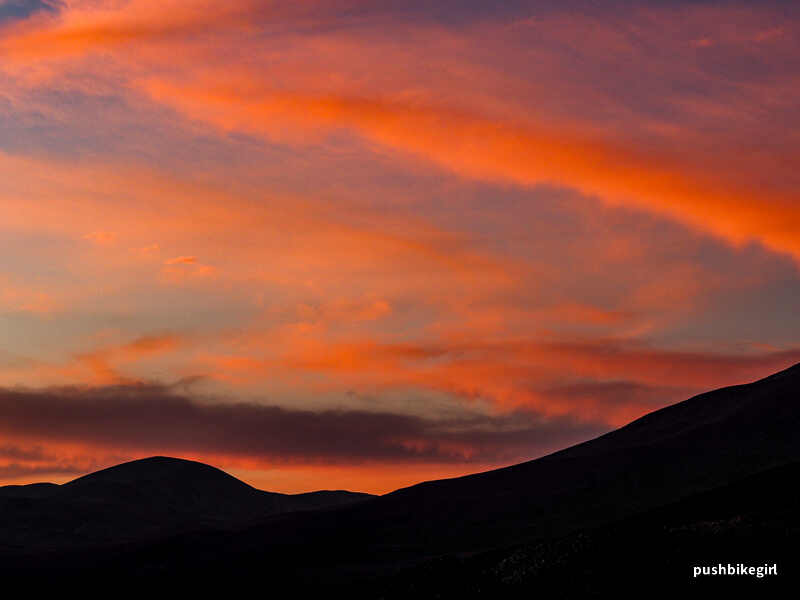
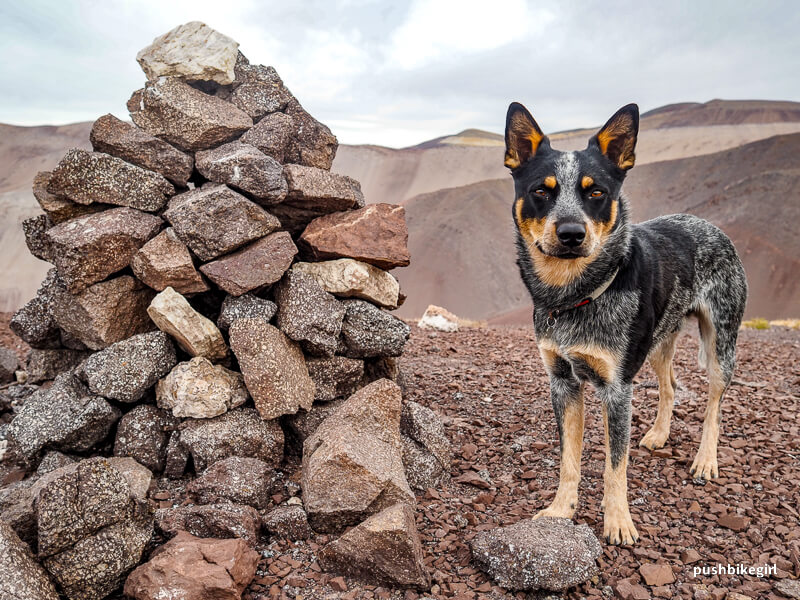
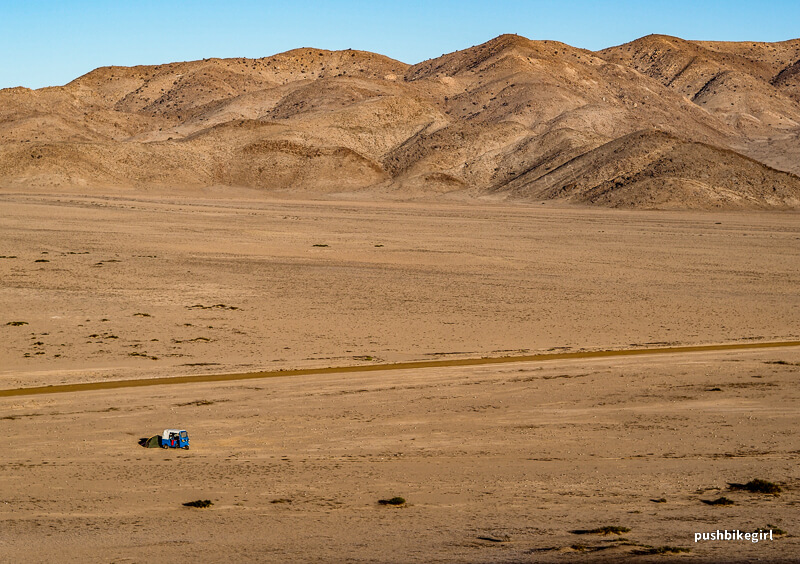
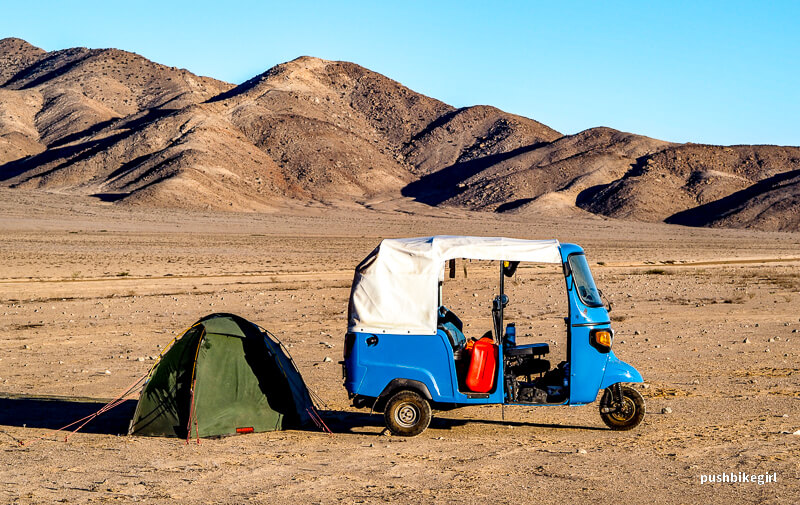
We initially had a lot of truck traffic because the road was approaching an enormous active mining operation. The truckers were all super friendly and waved at us; finally, people were pleasant. But soon, we were alone again, entering the vast empty Atacama desert.
Ultimately, we reached the Salar de Atacama—a great area. The closer we came to the well-known San Pedro de Atacama, the more touristy it became.
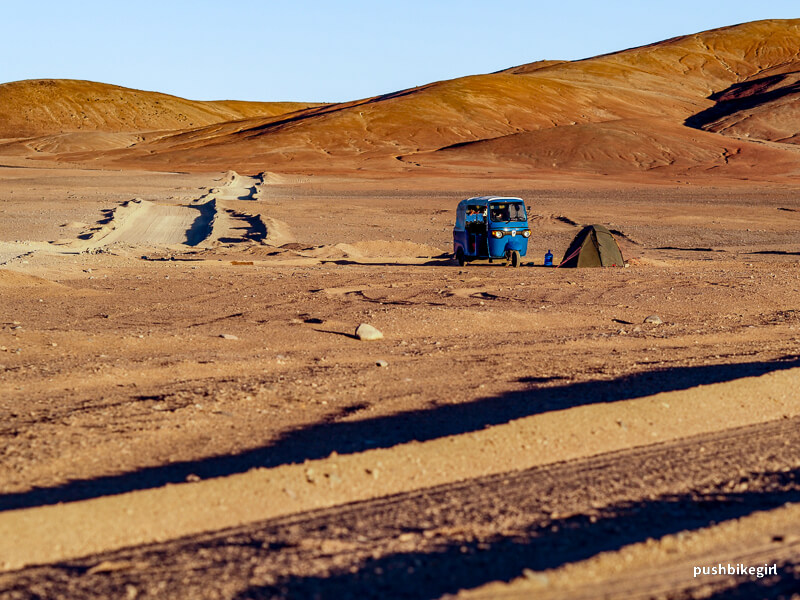
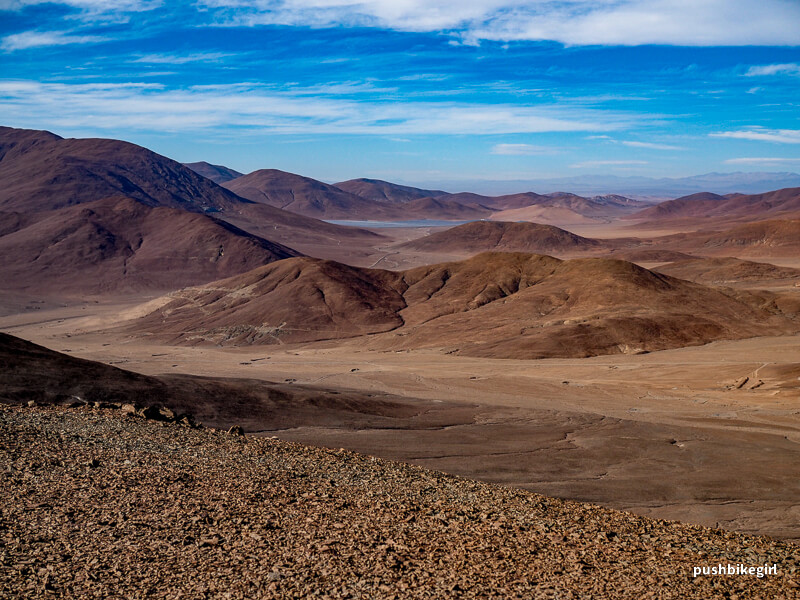
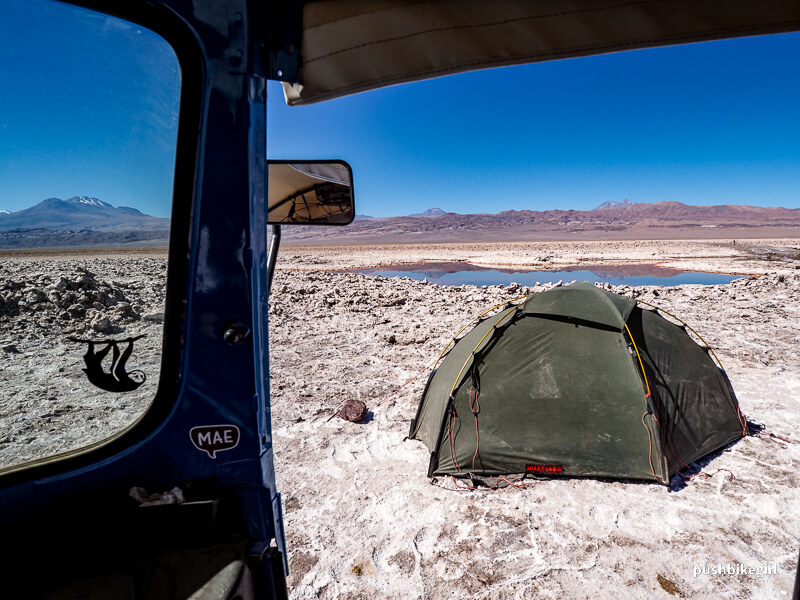
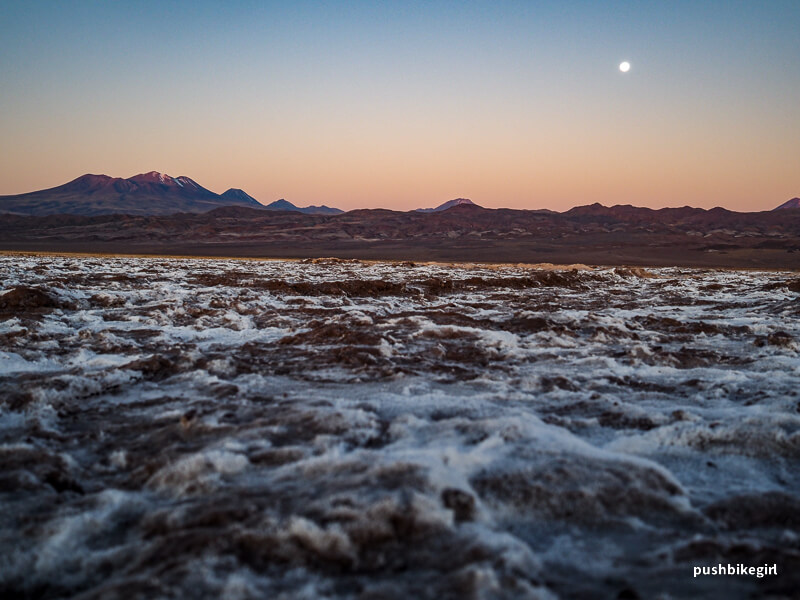
So I hadn’t met a single tourist since Santiago, and now that there are tourists, there are so many that people don’t even say hello to each other. Also always funny this phenomenon. But it happens everywhere in the world. Every tourist thinks they should be the only tourist.
But I looked for contact. There was a Brazilian with a bike who spoke only Portuguese, also Oleg from Russia, who had been on the road for five years with his bicycle.
In addition, another cyclist who just came from Peru said, “What is going on with the Chileans?” I laughed and said why they are quite friendly here in the north.
“Friendly do you think they are? I miss the laughing Peruvians and will be glad when I’m out of here. And wow, is it expensive here!”
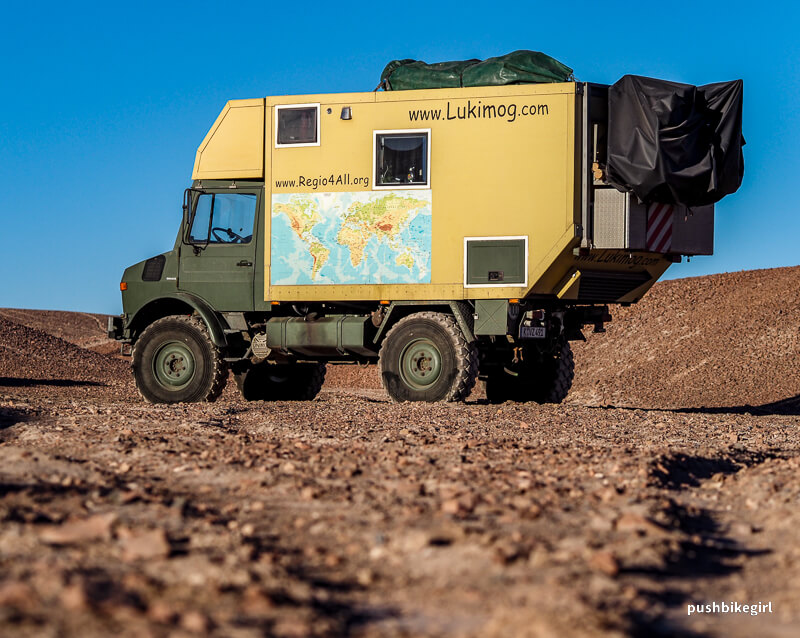
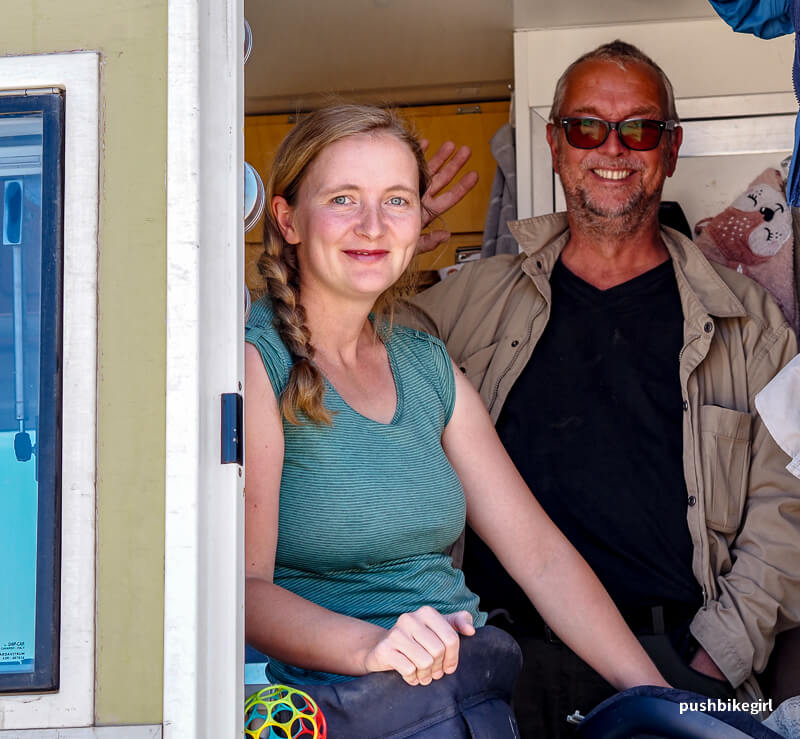
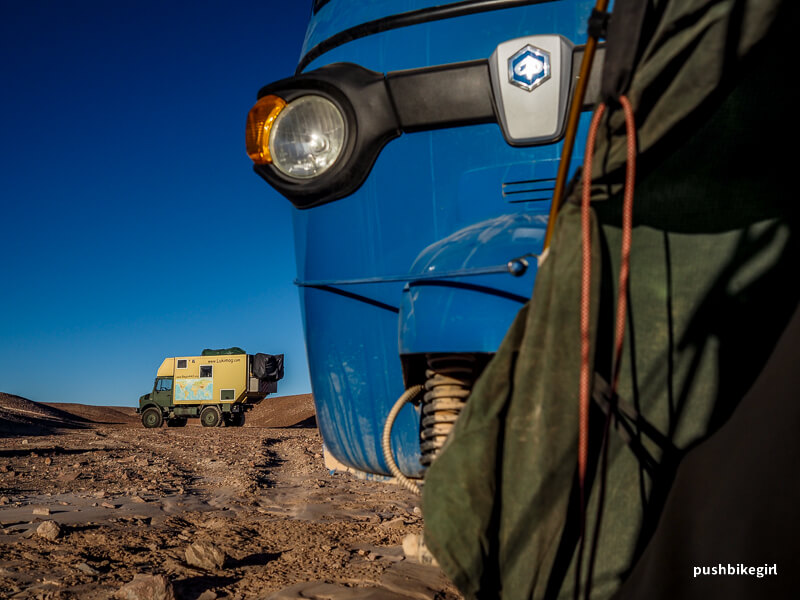
I also met a lovely family from Cologne, who travel South America with their Unimog and with whom I sat at the campfire and enjoyed their self-caught fish dinner.
We were pleased to receive an invitation from Carmen to stay at her hotel. She was exceptionally accommodating, and we talked about God and the world the whole evening.
I had visited San Pedro twenty-five years ago. The place was unrecognizable, and I was sad to see how overdeveloped today.
It has increased tenfold in size and population. There would also be an entrance fee anywhere something resembled an attraction.
As we were getting closer to where we could leave Chile, I had to resolve the issues with missing some paperwork for Butch, or else he might not be able to leave the country.
Calama, the mining town known for con artists and pickpockets, was unfortunately 100 km in the wrong direction. But I had to go to the SAG, the authority that could issue the papers for Butch.
Thankfully I could leave the Tuk Tuk, including Butch, with a couchsurfer host named Katharina so that I could visit the authority in peace—a super help.
Once again an arduous interaction with government authorities. We talked for 15 minutes about the color of Butch’s coat. Because three-colored – Tricolor – as the veterinarian described his coat color was insufficient.
The lady in charge of checking vaccinations also almost did not accept the rabies certificate because the vet in Santiago had accidentally forgotten his phone number on the document.
I went to the copy store three times because something else was always missing. But after five hours, I had the papers, and we drove towards Argentina.
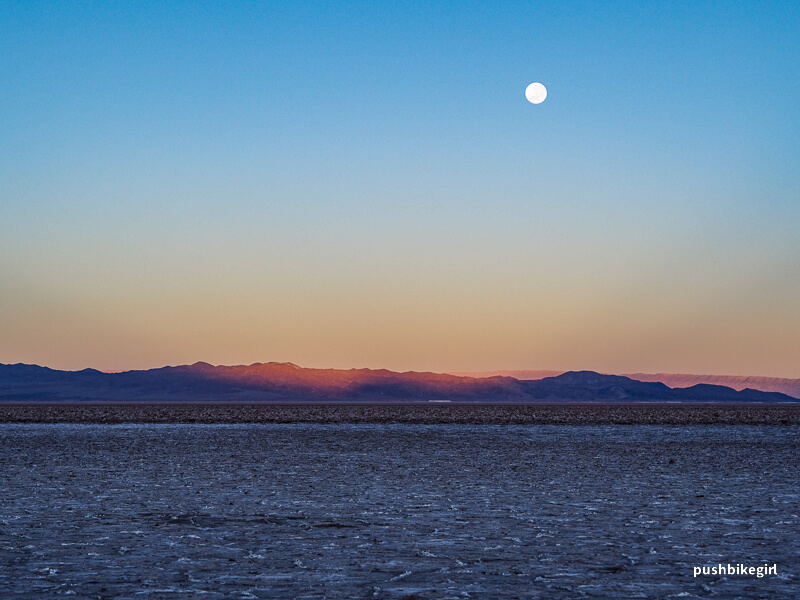
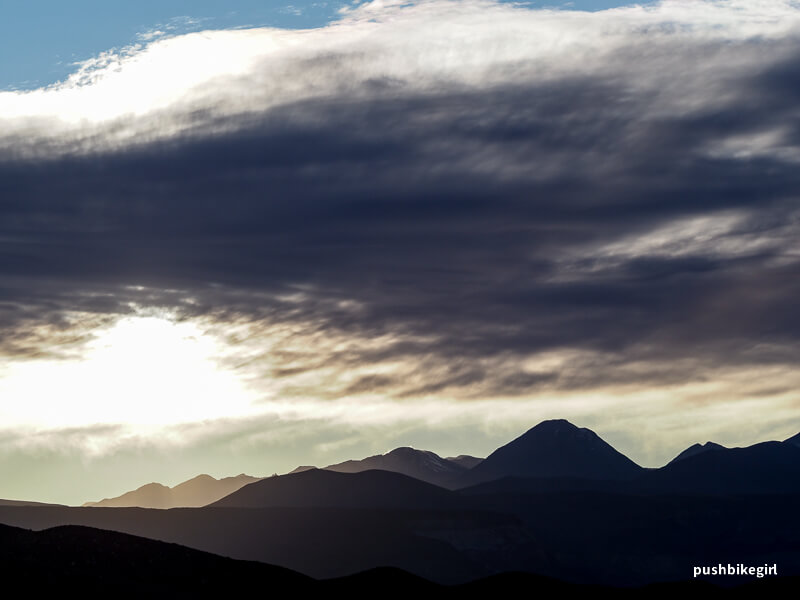
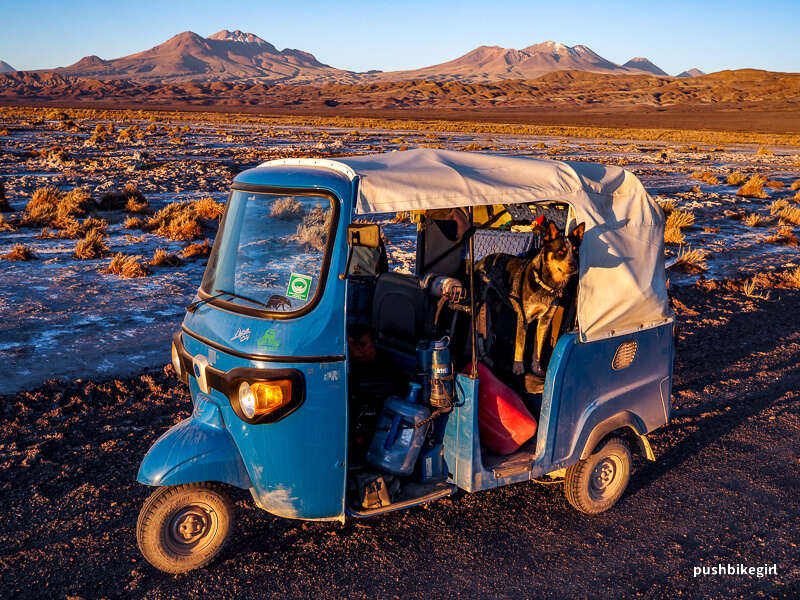
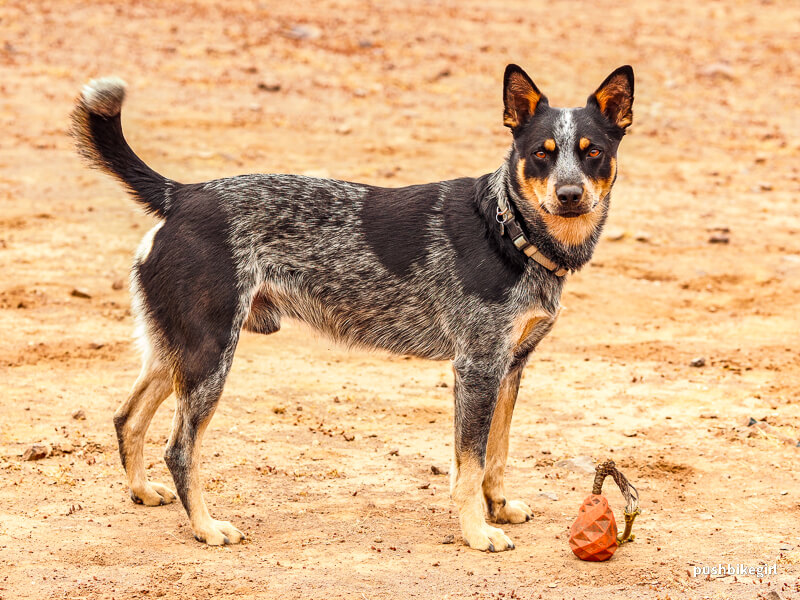
We took our time to acclimate, hoping along the way that the Tuk-Tuk would be able to handle the pass ahead.
It was cold as hell. The wind was brutal, and I pulled on everything I had for clothes to get over the 4800-meter pass, then it went down slowly.
Incredible landscapes, as always. Salare with guanacos and expanse, but much too cold to dwell on the views.
The Tuk-Tuk had difficulty starting in the morning, but as soon as the engine was warm, it drove just fine, not much slower than usual.
The border was at 4200 meters and cold. After five solid hours of nonsense, the Chileans finally allowed me to leave. I did not have the visa extension as a printed copy, and because my vehicle registration document was not yet in my possession, I would have been allowed to leave, but not the Tuk-Tuk.
An Argentine lady tried to help me and even started crying. “We always have trouble at the border here too. Chileans are just difficult.”
Endless excuses for holding me back; it was already dark for a long time, and I was frozen. I rolled out my blanket and sleeping mat on the office floor to demonstrate I wouldn’t easily be defeated.
Suddenly I was free to go. All those hours, no one spoke English, and then one of the officers spoke to me in fluent English. Men in uniforms playing games because they can, showing their true characters.
The entry into Argentina, on the other hand, took just three minutes.
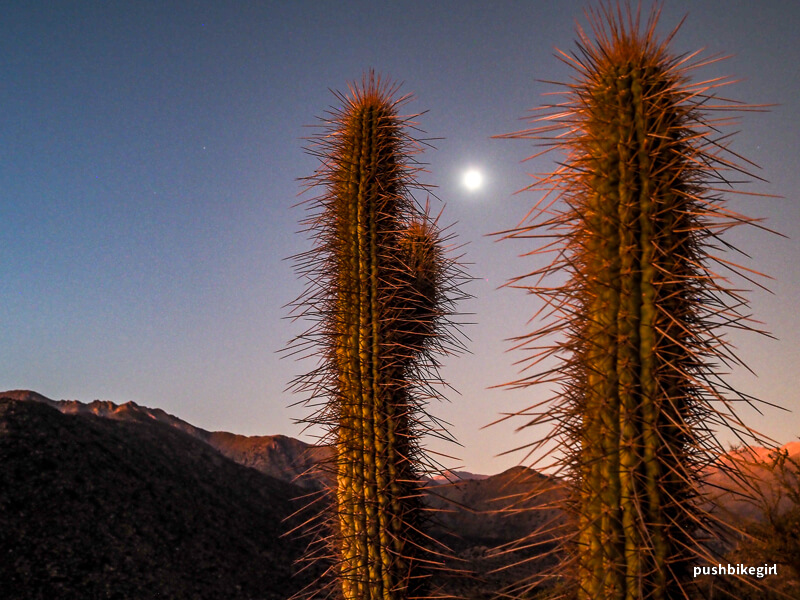
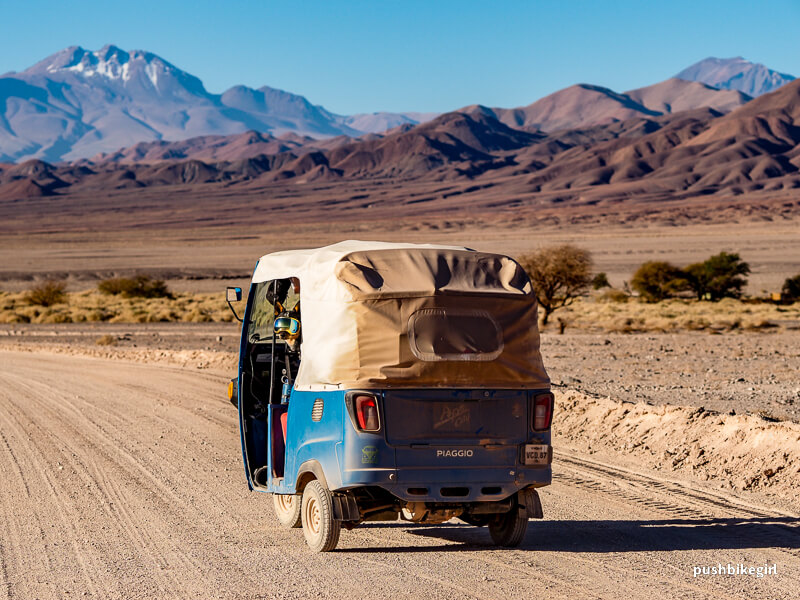
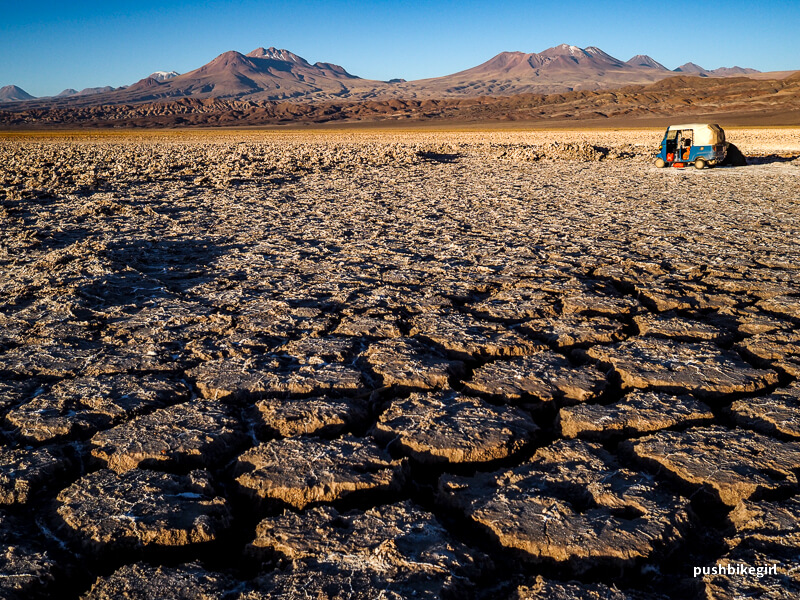
In conclusion, I must say: Chile is beautiful. The landscapes and the vast open spaces are incredible. It is a dream country for someone like me, who loves her freedom and can enjoy endless expanses.
On the other hand, the people and the lack of culture do not make the country very exciting. And Chile is expensive in almost every, especially for the poor quality of things. Chile will not appear on the list of my favorite countries.
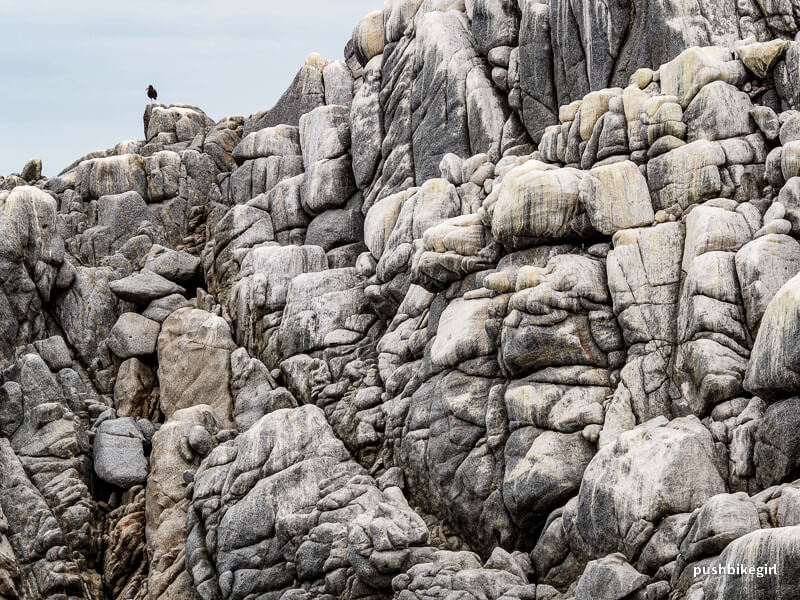
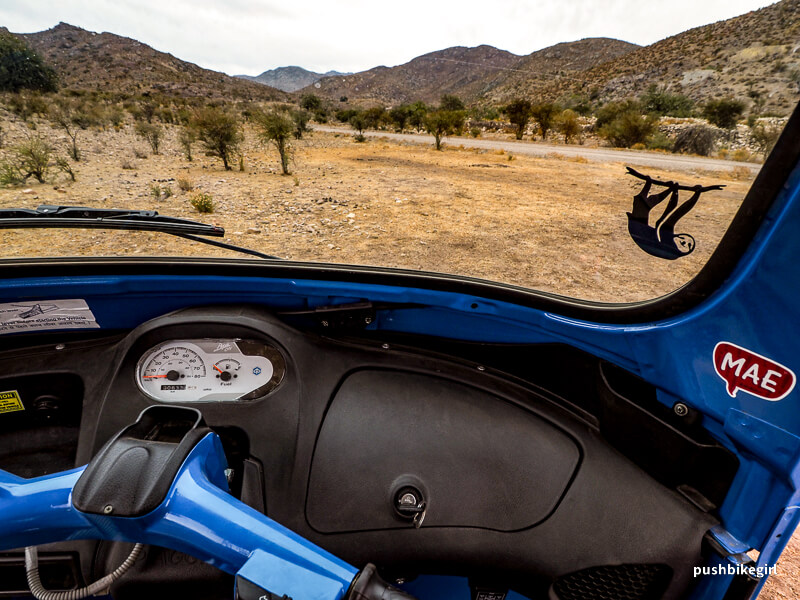
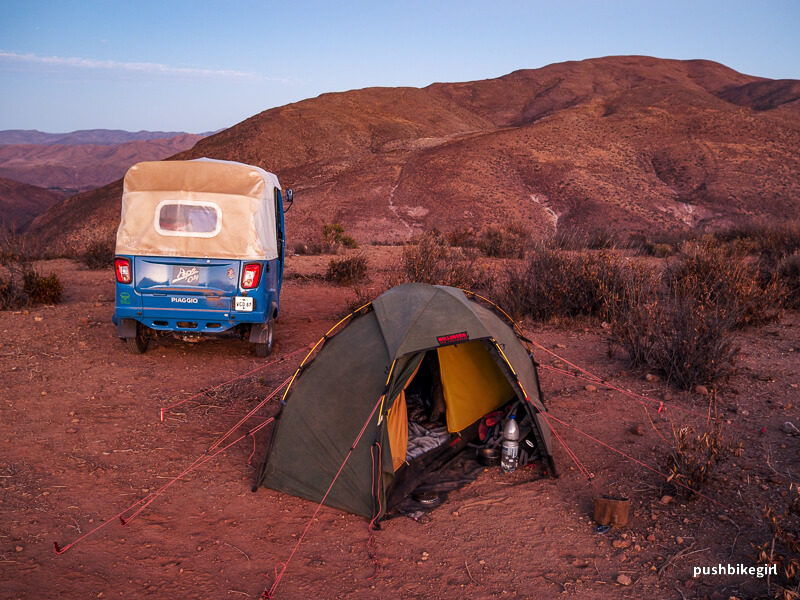
I am now looking forward to a new country and am curious how different Argentina will be from Chile. Still in Santiago, all the tourists I met there agreed. Argentina is worlds more interesting, friendlier and cheaper than Chile.
We will see.
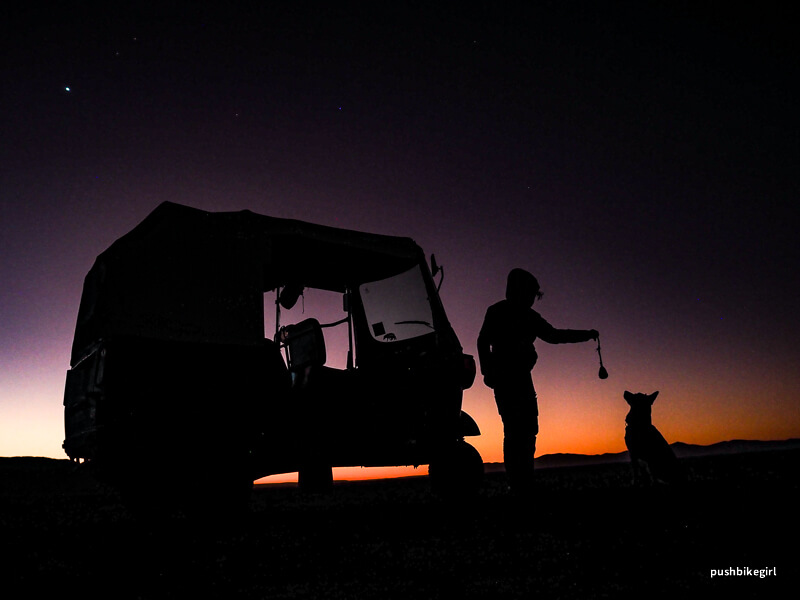
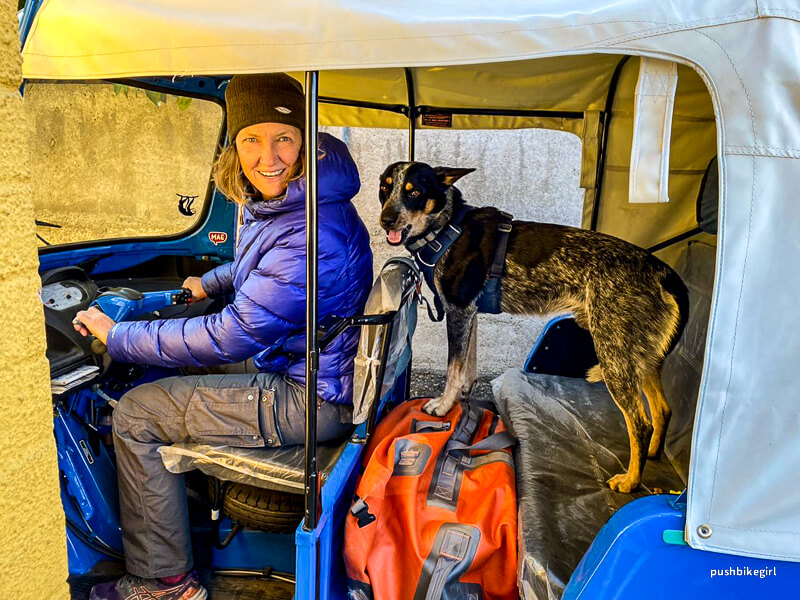
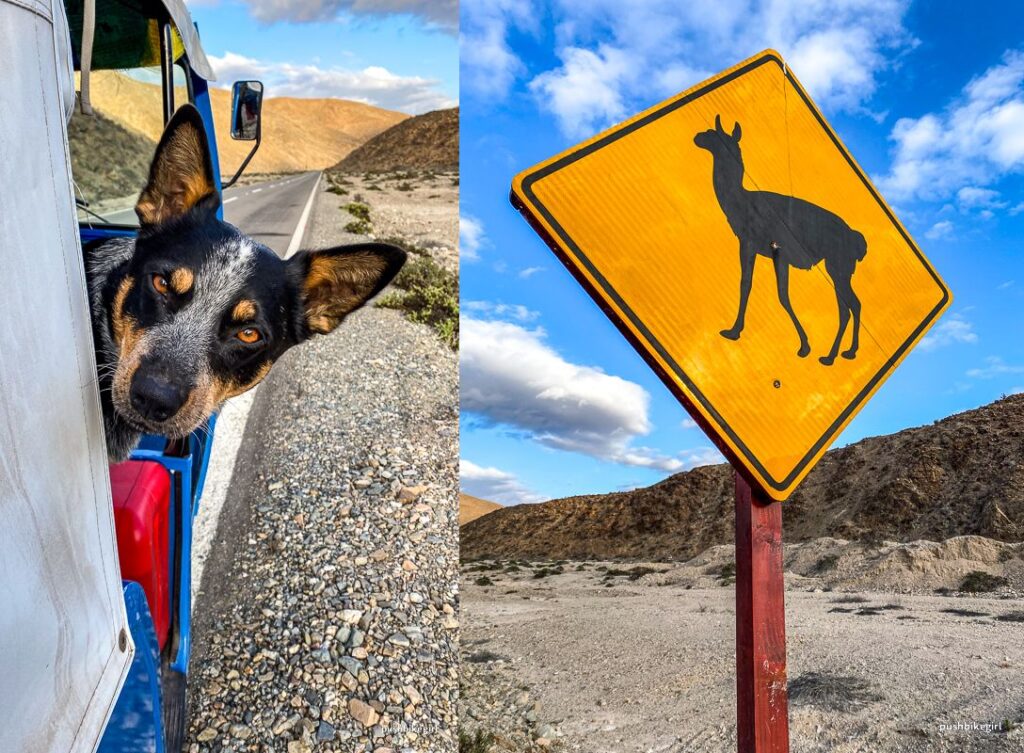
No matter what will come. Butch and I are on the road again, which ultimately counts!
Two months was enough time to determine that the Tuk-Tuk suits us well, and I can see it working for a more extended trip through South America.
Now and then, we will undoubtedly do long hikes, and maybe along the way, we will get a donkey or llama somewhere to bring a little variety into our travels. Surely we will also get in a boat or a canoe.
For now, we are Tuk-Tuk drivers, and so far, I find it brilliant.
See you soon, and thank you for your long patience. Sometimes life is not so positive.
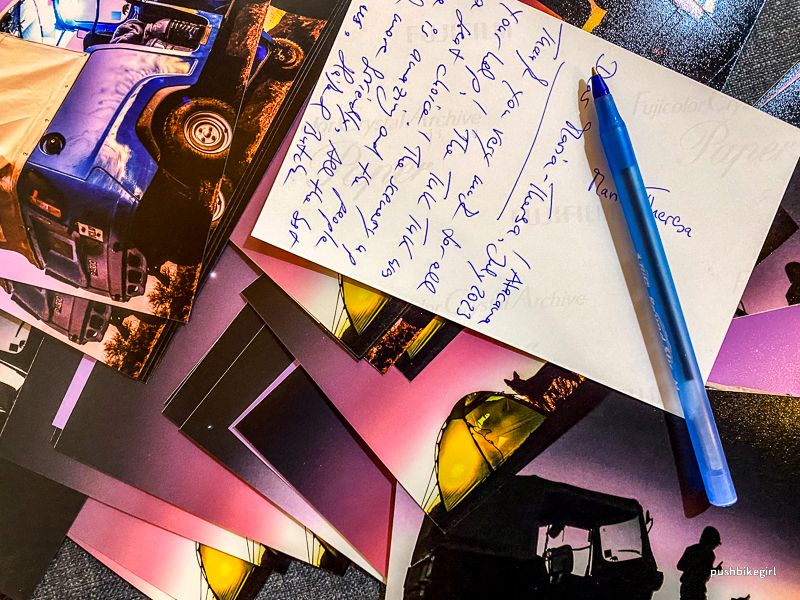
Postcards are all on the way. Unfortunately, that also took a long time. For this a huge apology and I hope they all arrive with you.
All the best from us.
Heike & Butch, with Teddy Lasse and Tuk-Tuk Mr. Nilsson.
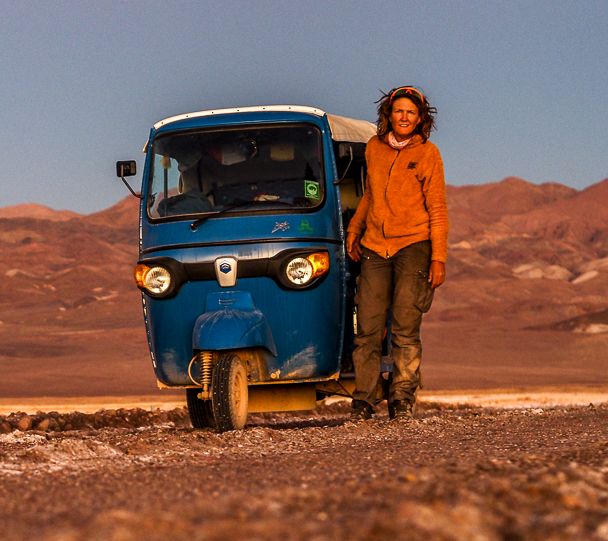
TIP
Butch and I make a living from our blog. Instead of placing a paywall or advertising, we hope for your support.
If you liked the article, we would be very happy about a few bananas or bones.
As always, there is a postcard as a thank you.
It’s this way
NEWSLETTER
Would you like to be part of our Tuk-Tuk journey from now on?
Then sign up for our newsletter.
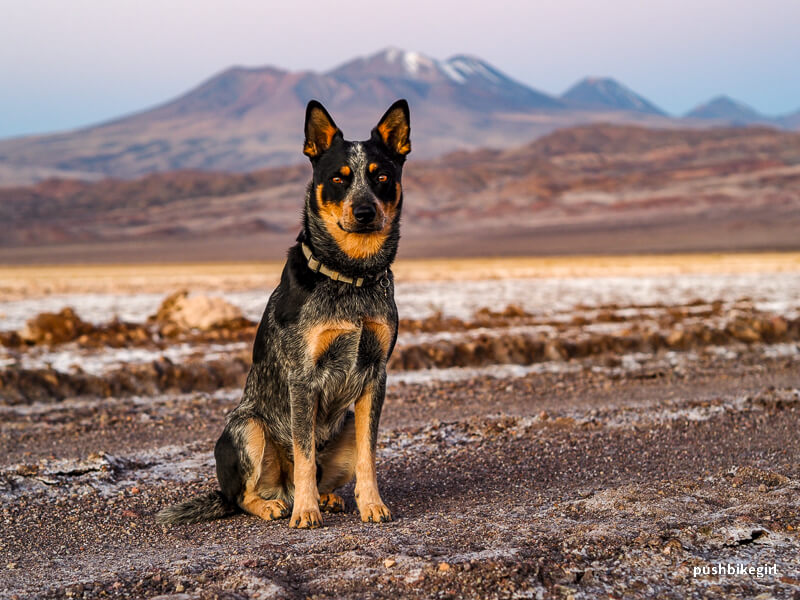
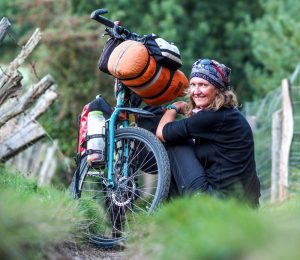
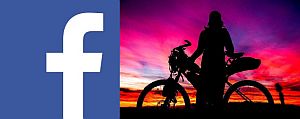
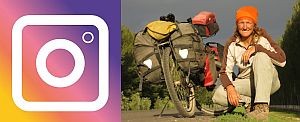
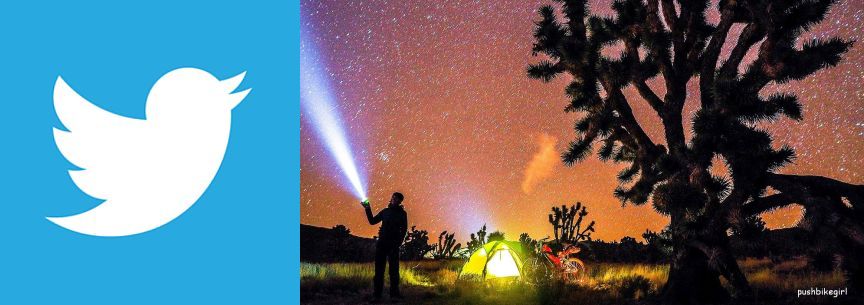

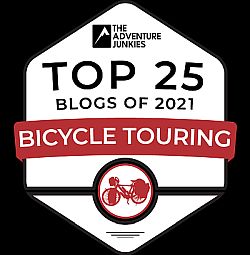
Heike, having followed your journey for many years now; it’s great to see you have finally discovered an enjoyable way to travel with your beautiful boy, Butch!
And, I love it! The Tuk-Tuk is a great fit for you, it looks so cool out in the vast space of South America. It’s a gentle footprint, surely fits into a long time travelers pocket-book, almost as well as a pushbike. Pretty sure it will give you lots of contact with people, as it so cute, and not a bit intimidating. Good luck getting a bed and doors; final touches to your new ride.
Best Wishes.
P.S. Lots of sympathy for your long and not so fun search.
Thank you very much – as usual Ron!
We are happy again! And yes the Tuk-Tuk is a conversation starter – not so much in Chile, but here in Argentina people are taking pictures of us all the time.
It’s fun!
All the best from us to the beautiful desert in Arizona.
Heike & Butch
Really enjoyed this post, Heike, a great read and visual feast! Well done also on persevering through the hard process of finding the right mode of travel. I’m so glad you’re back in the saddle!
Big thank you Catherine!
Hope the fires are far away from your lovely island!
Hugs to you both from us
Our land is parched but we have been spared from wildfire so far. I will really welcome the rain when it finally comes! Take care!
Toi toi toi as we would say in German.
Good to hear you again. What an amazing tour with Butch and tuk tuk. Waiting for your new adventures in Argentina. Good lucks.
Thank you Cemel 🛺
Best greetings
Heike & Butch
Such adventures! Hope Argentina works out for you and Butch. Spring is on its way!
Thank you David!
It already does……we are loving it here.
Best greetings to you from us
Enjoyed your update with brilliant as ever photos. Am glad the Tuktuk suits you and Butch. But best of all is that you are back to being yourself again – no more dark places.
Stay safe and enjoy all that the journey brings.
Big hug for Butch and you,
Inge
Big thank you Inge,
much appreciated!
All the best for you too.
Happy greetings from Argentina from us
Heike – this is a really interesting post, as always with perfect photos. Your comments about Chile surprise me – valuable frank insights. I hope Argentina will be fun for you and Butch.
Best Wishes
Ian
Hi Ian, I was surprised too.
Thanks for your wishes….and compliment!
Best greetings from Argentina,
Heike and Butch
I love the photos and descriptions; I’m completely hooked on your blog. I was in Chile earlier this year (March and April) with my brother and a friend. We were in the Zona Sur & Zona Austral, and I had a somewhat different experience with people there than what you’ve described in the north. I’m curious what you’ll think of ‘southern Chileans’ if you head out to Puerto Montt and south of it in the future.
Driving was very pleasant because other drivers were so patient, which was completely different than the aggressive rush I’m apart of in my daily life here in Michigan.
Many people were kind but somewhat reserved. Plenty of chatty people, though, especially a lot of the camp hosts along the Carretera Austral… Some loved talking so much that my guess is they’ve rooted themselves along the road specifically to indulge their love of talking to travelers. Outside of the Carretera Austral, I really enjoyed the people on Chiloe Island and in Puerto Montt’s immigrant-heavy neighborhoods.
I’m still confused with Chileans’ apparent obsession with fences. Everything is fenced thoroughly, even in places that don’t seem to have any crime. Many times I’d walk by what I can only describe as fortified houses at night, but the gate was left wide open out of a lack of fear… so why such elaborate fences?
Bureaucratic sluggishness delayed our crossing into Argentina by quite a long time. Once we entered Argentina at Trevelin and Esquel, it was a very stark difference. Loud, lively, full of outgoing people. It was also so much less expensive than Chile. I ate a disgusting amount of cheap pastries the first night in Esquel.
It oddly feels like all of Latin America runs on WhatsApp. Once I started using it, communicating with people (and businesses) became much easier.
Looking forward to seeing more of your time in South America.